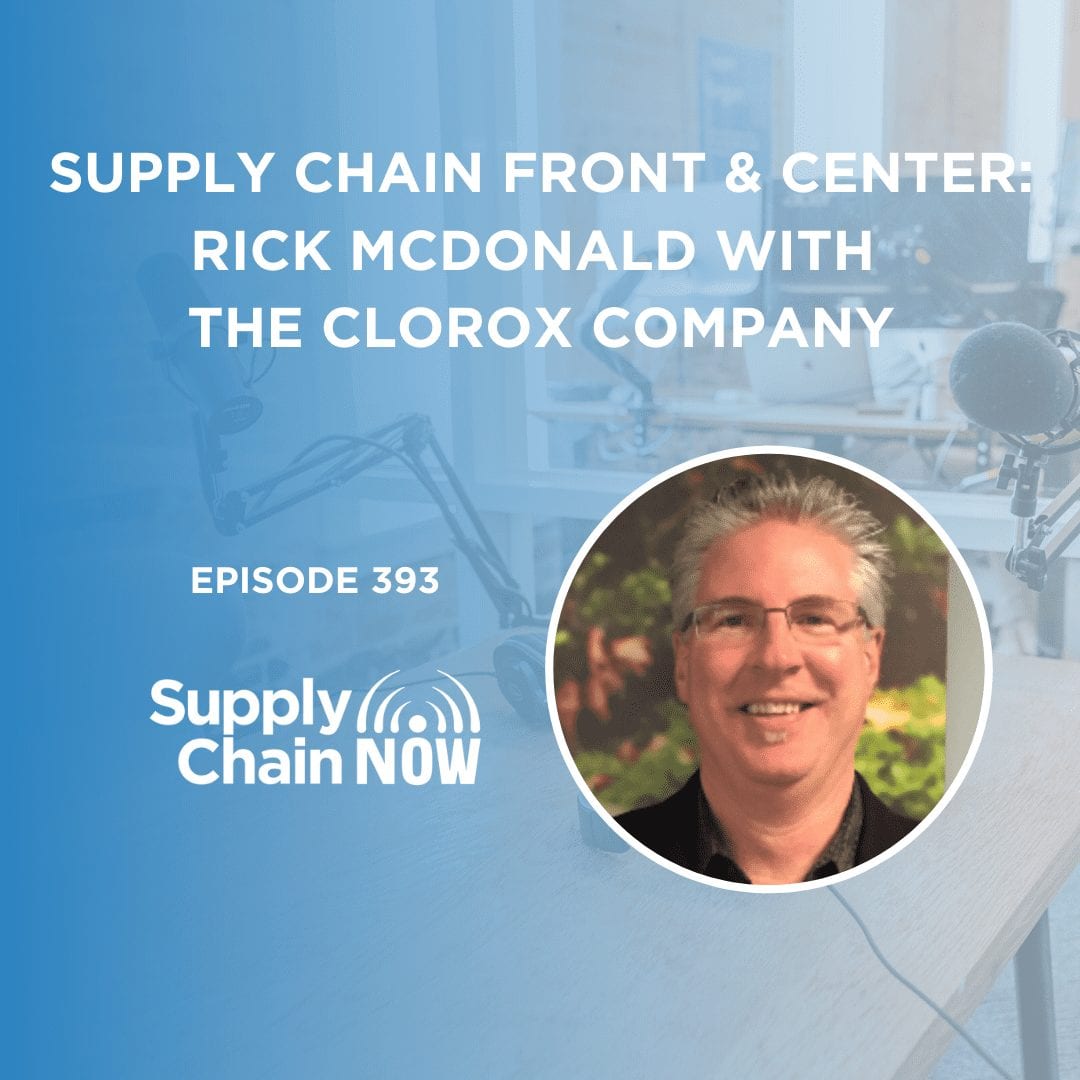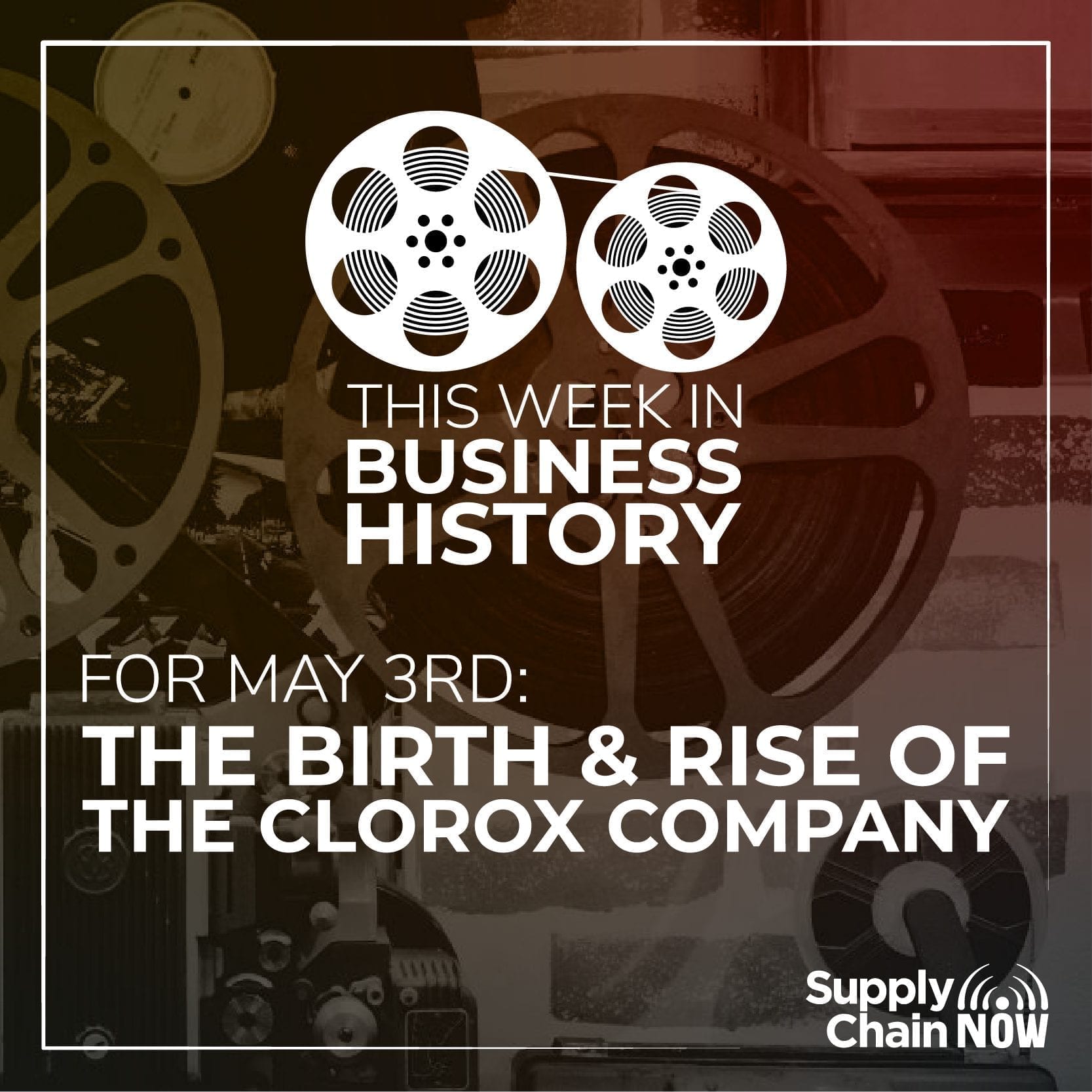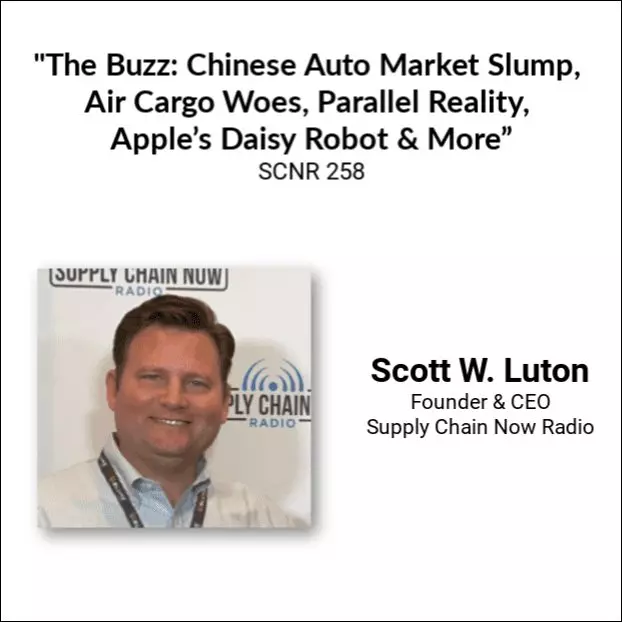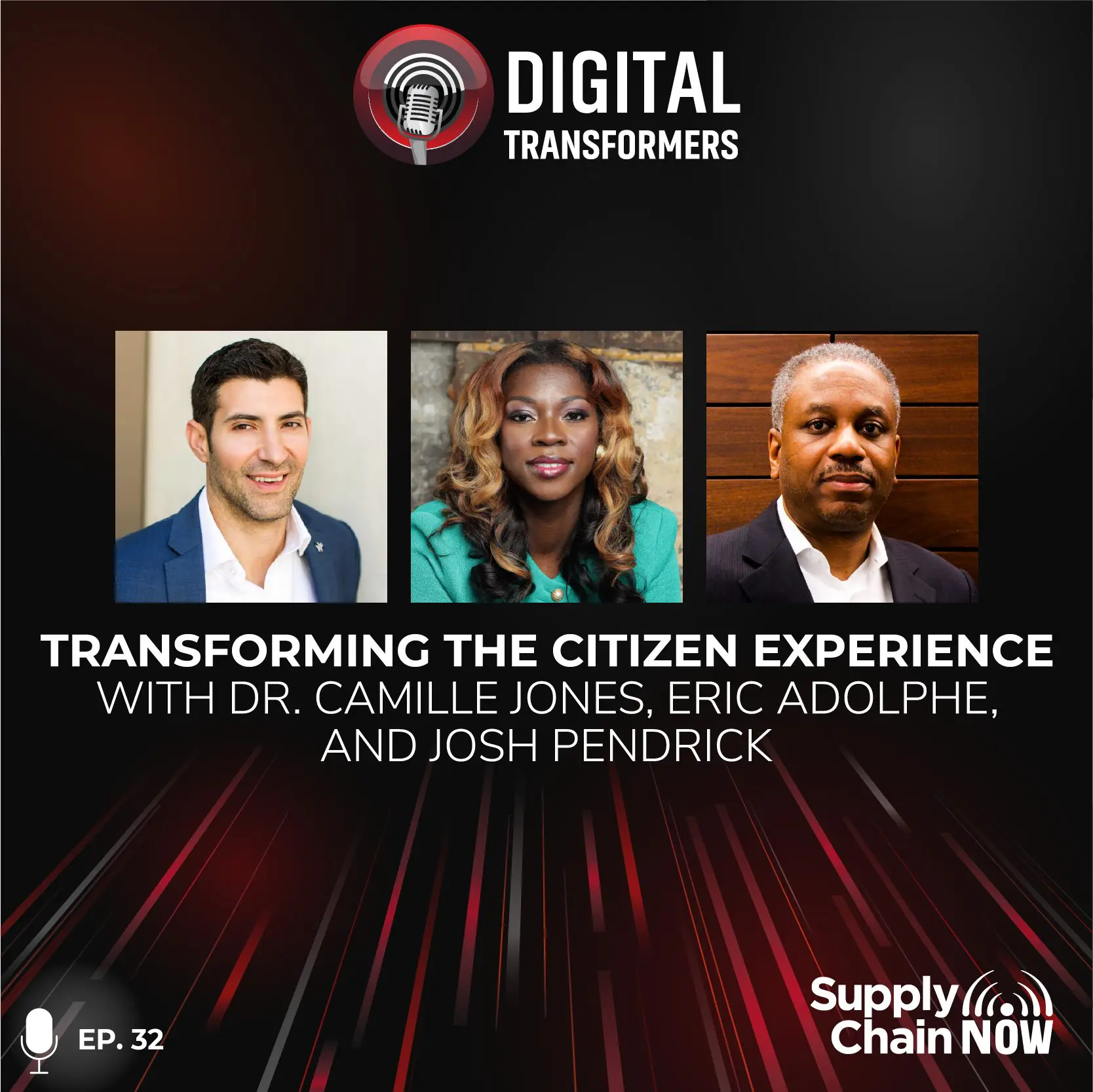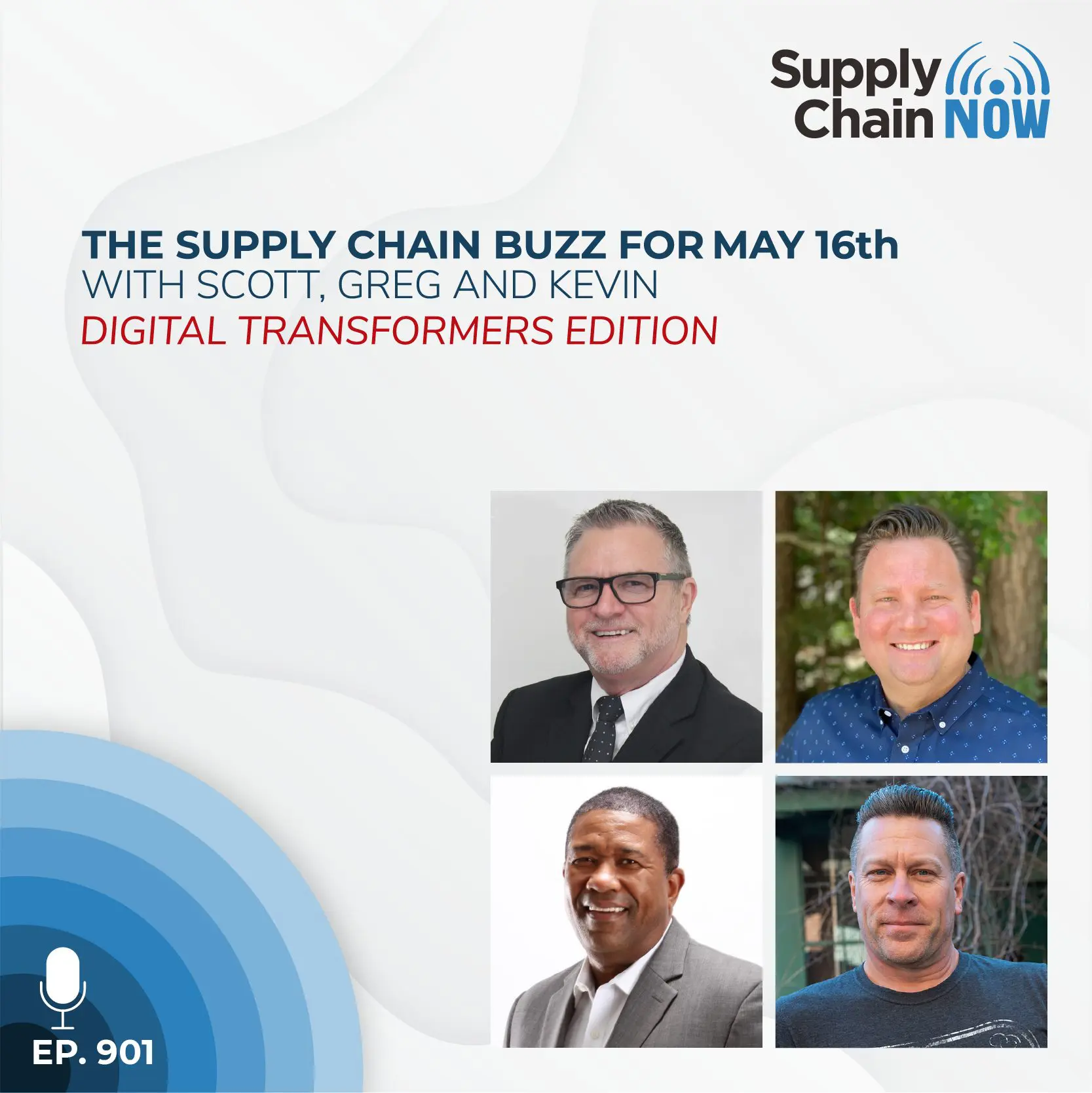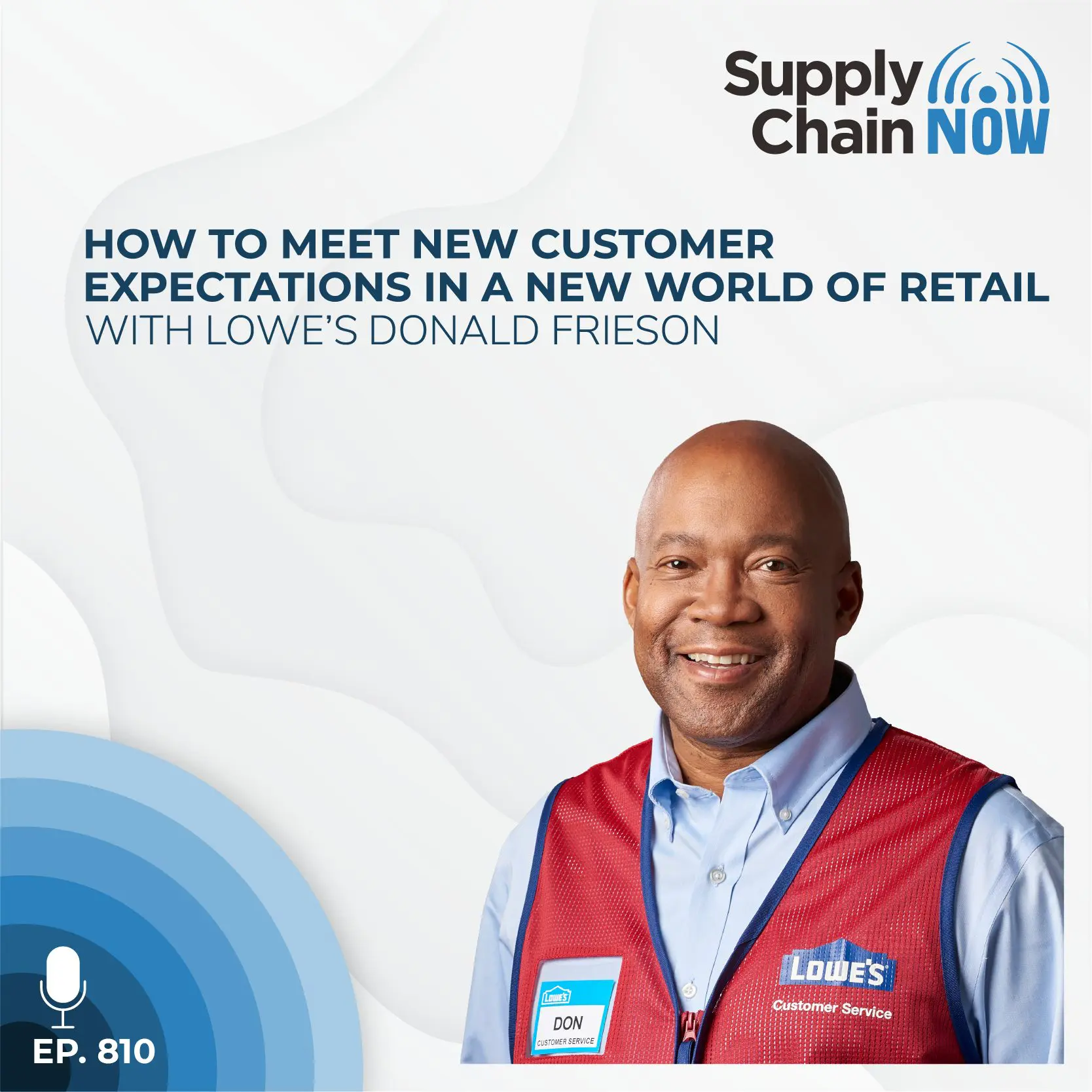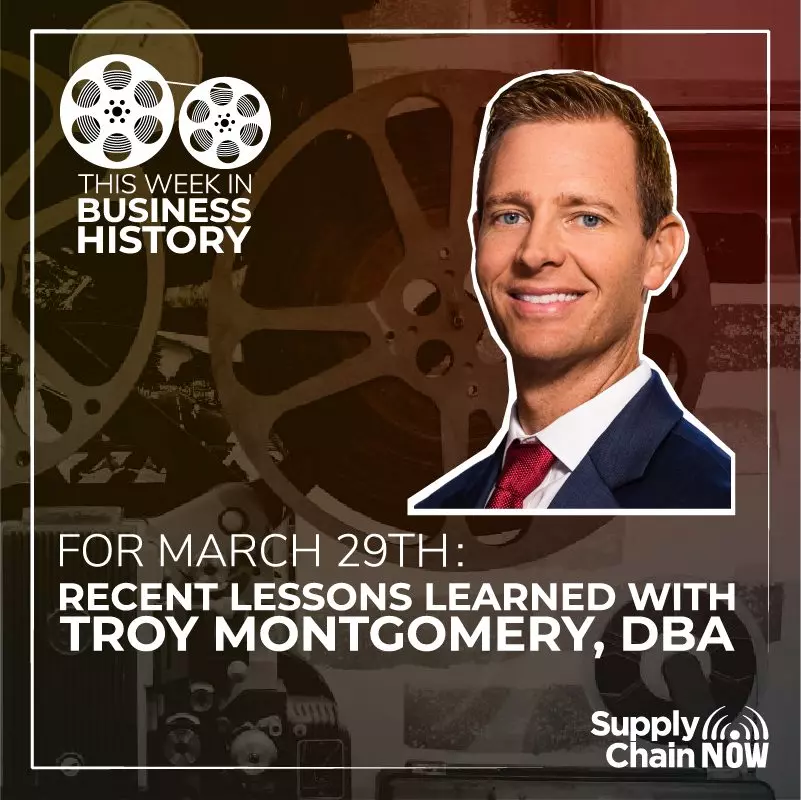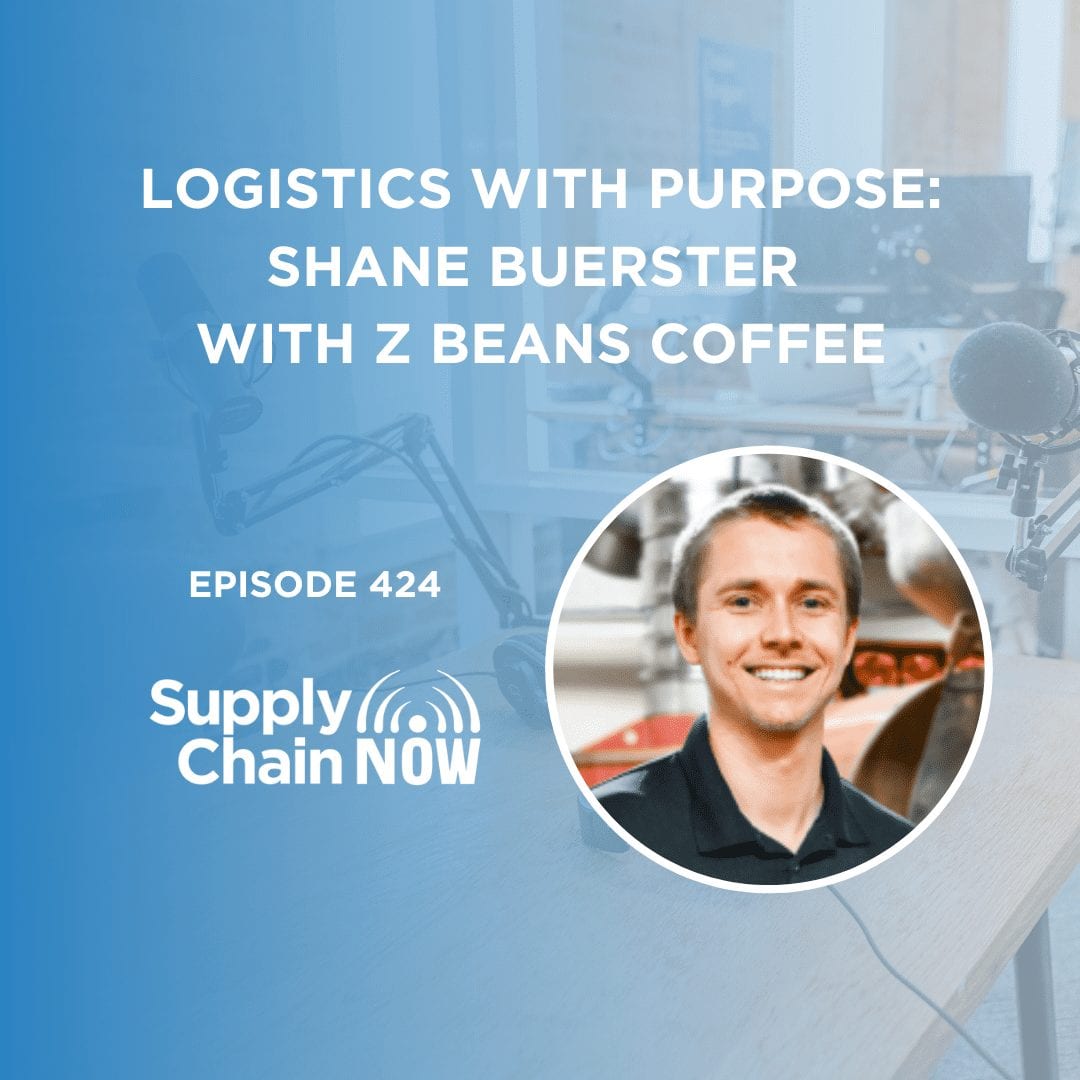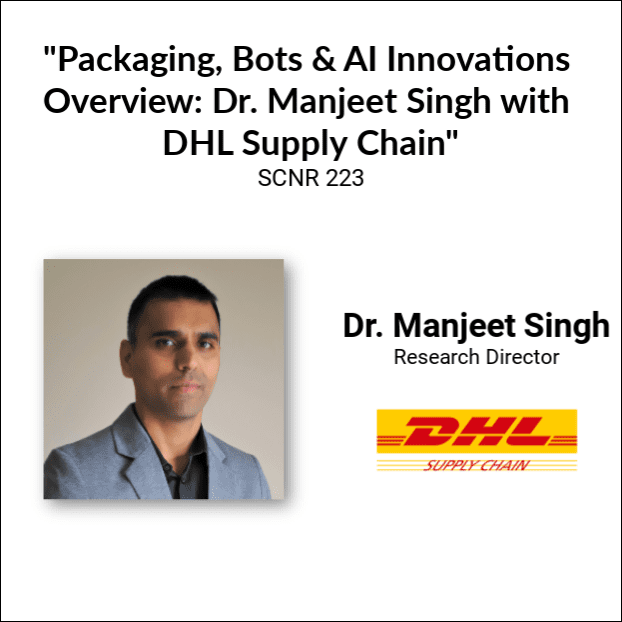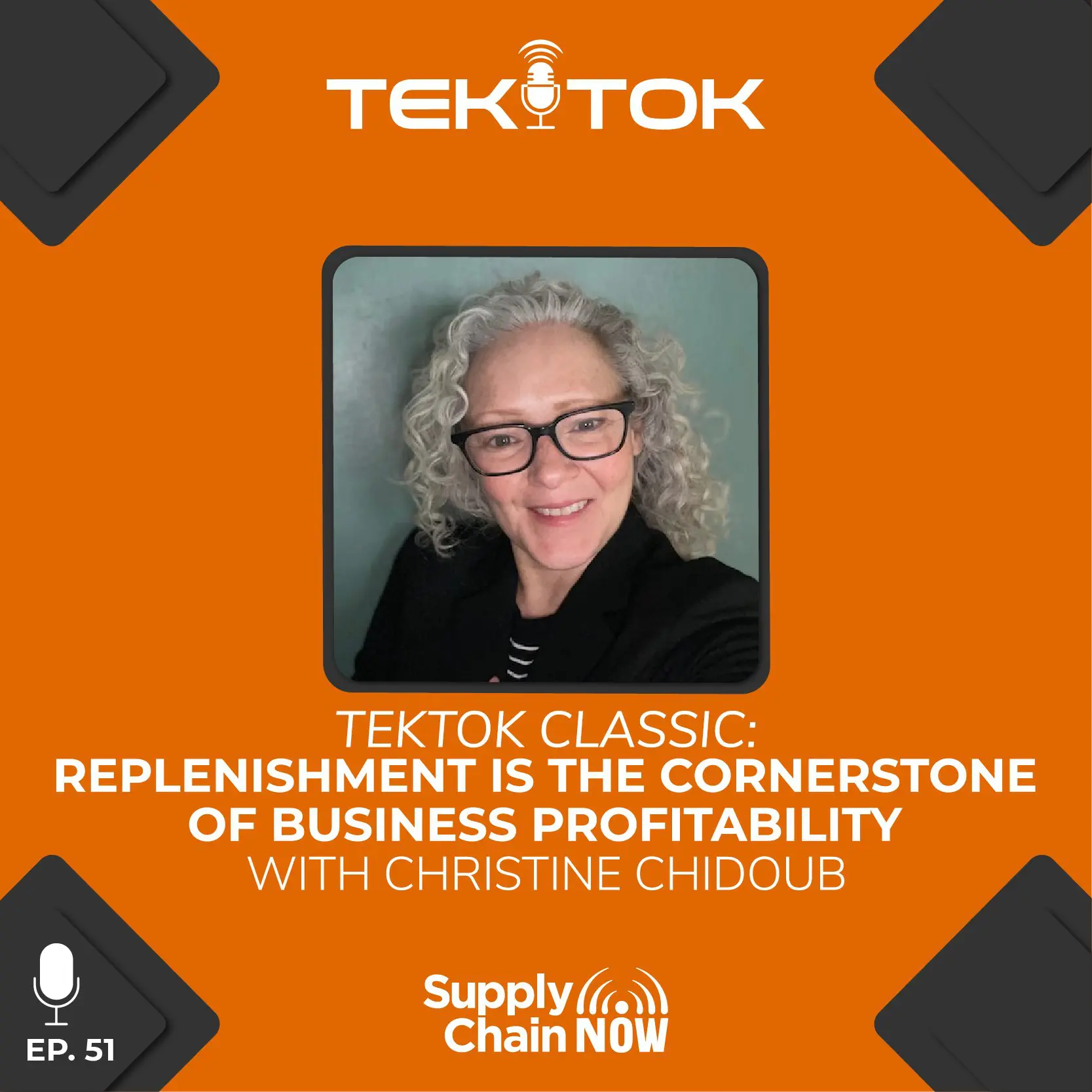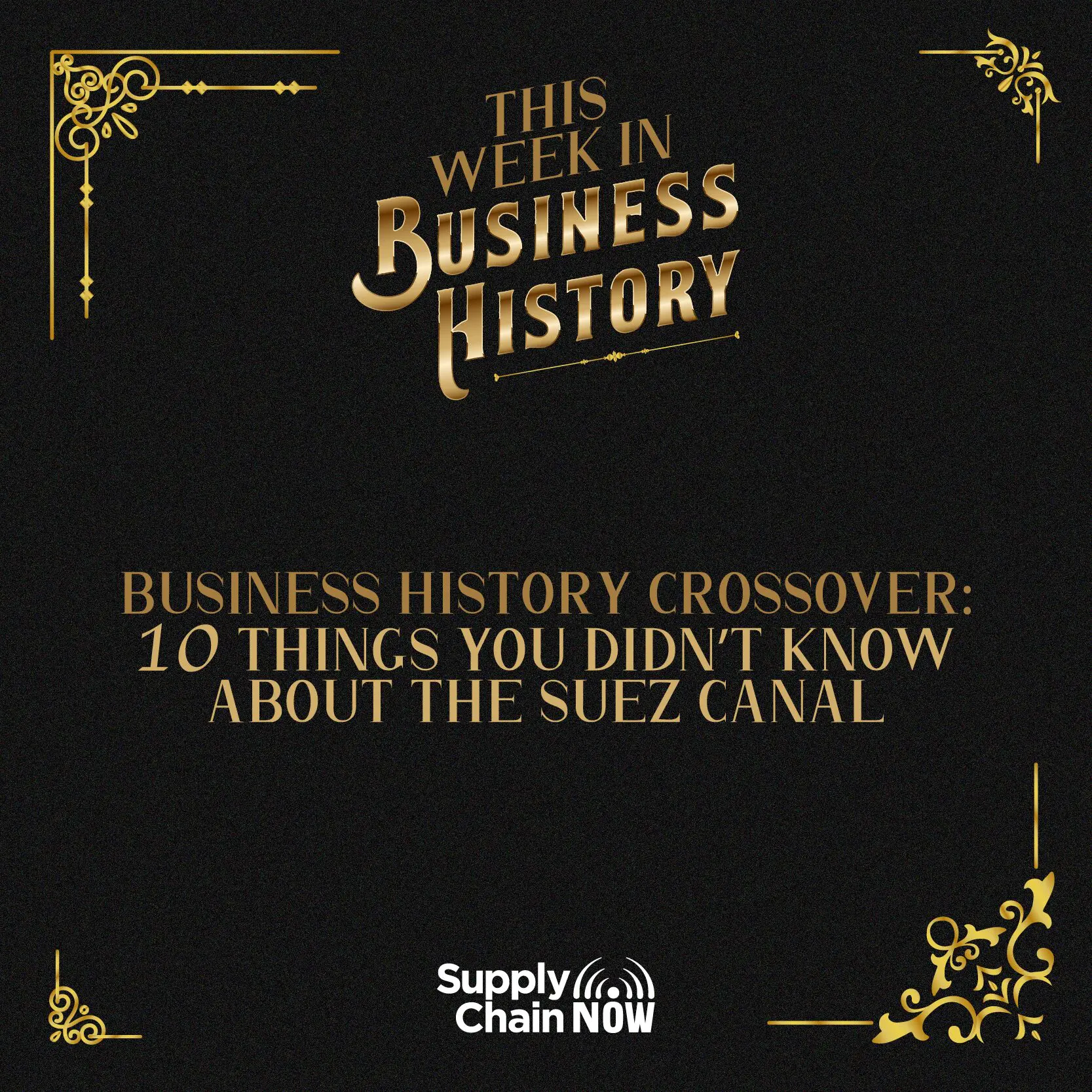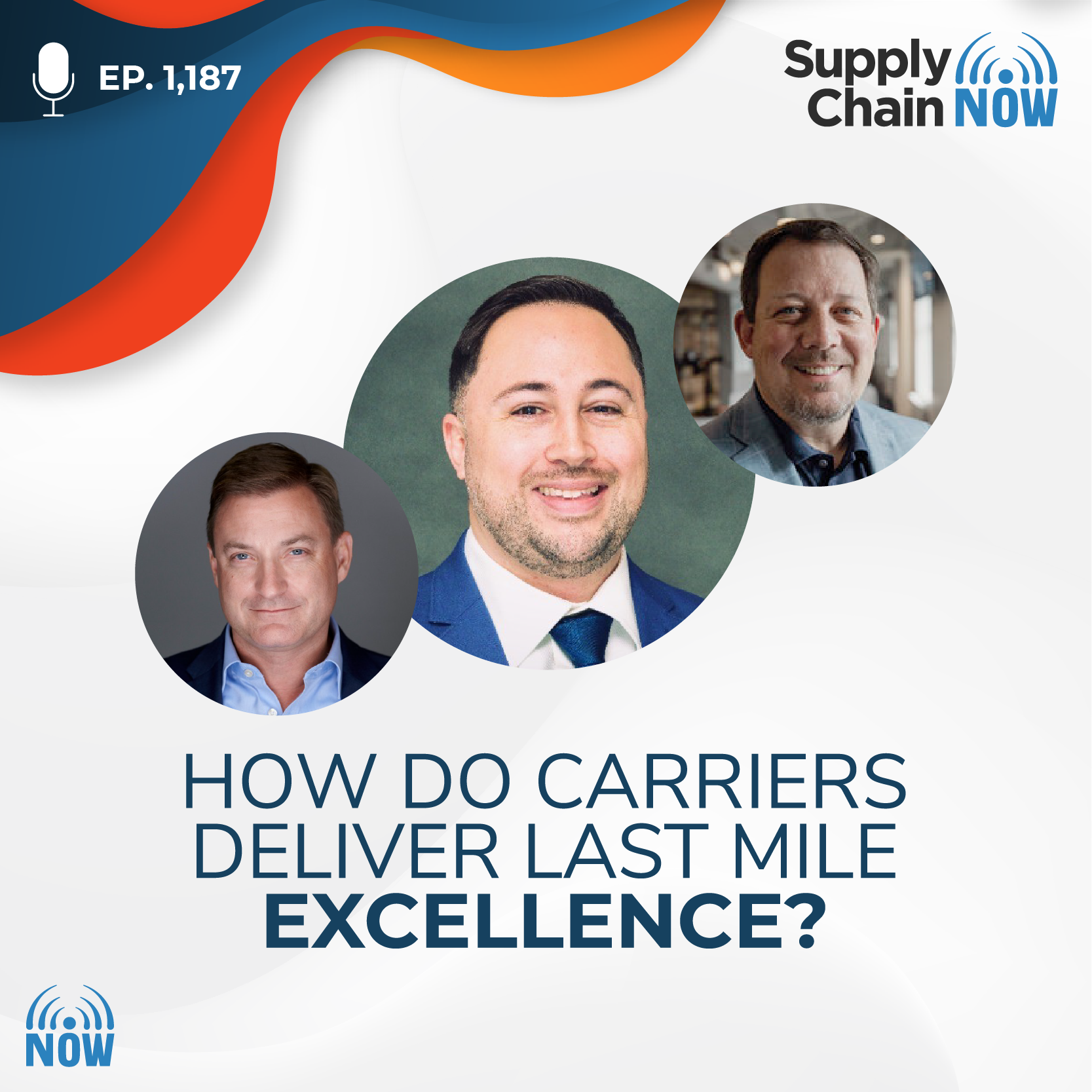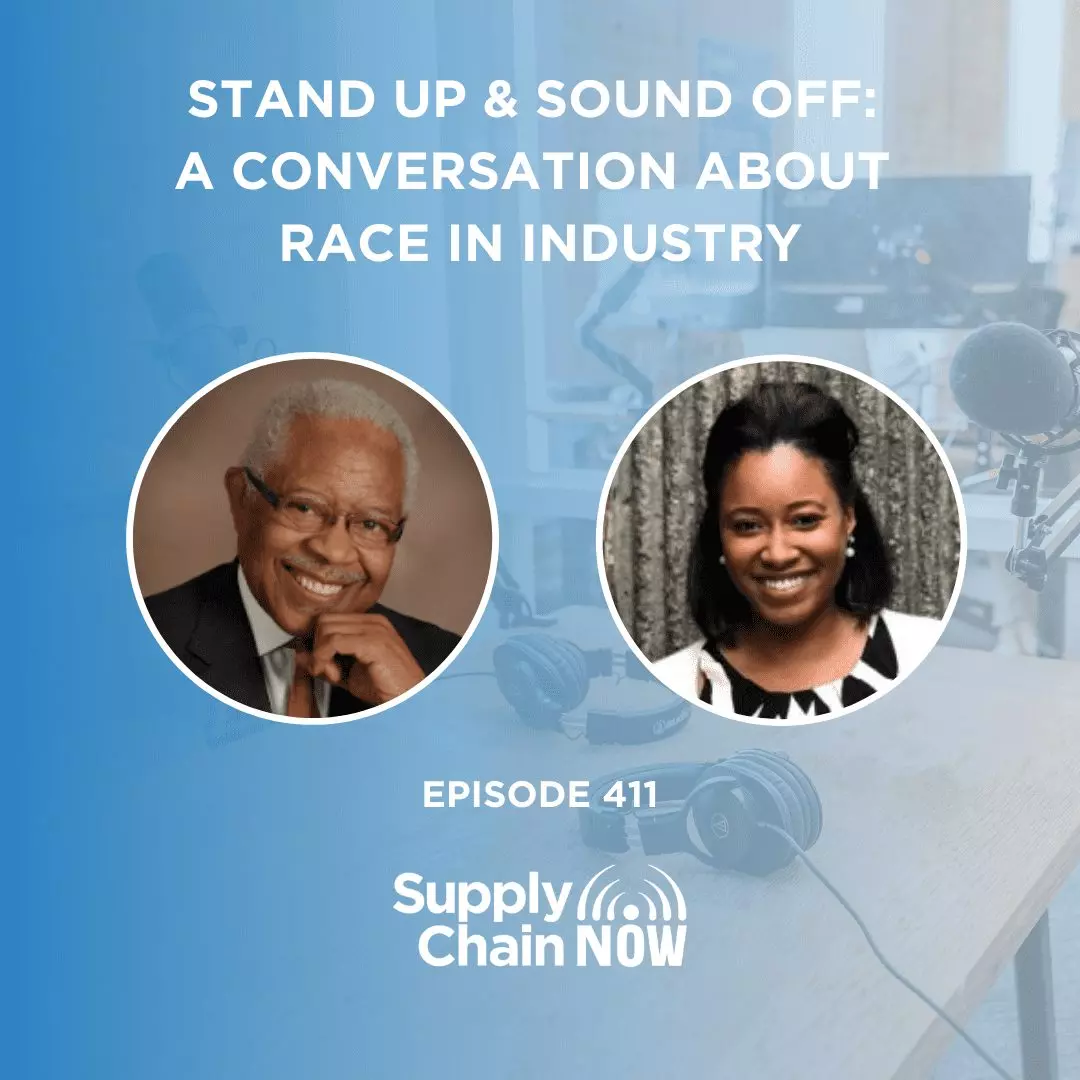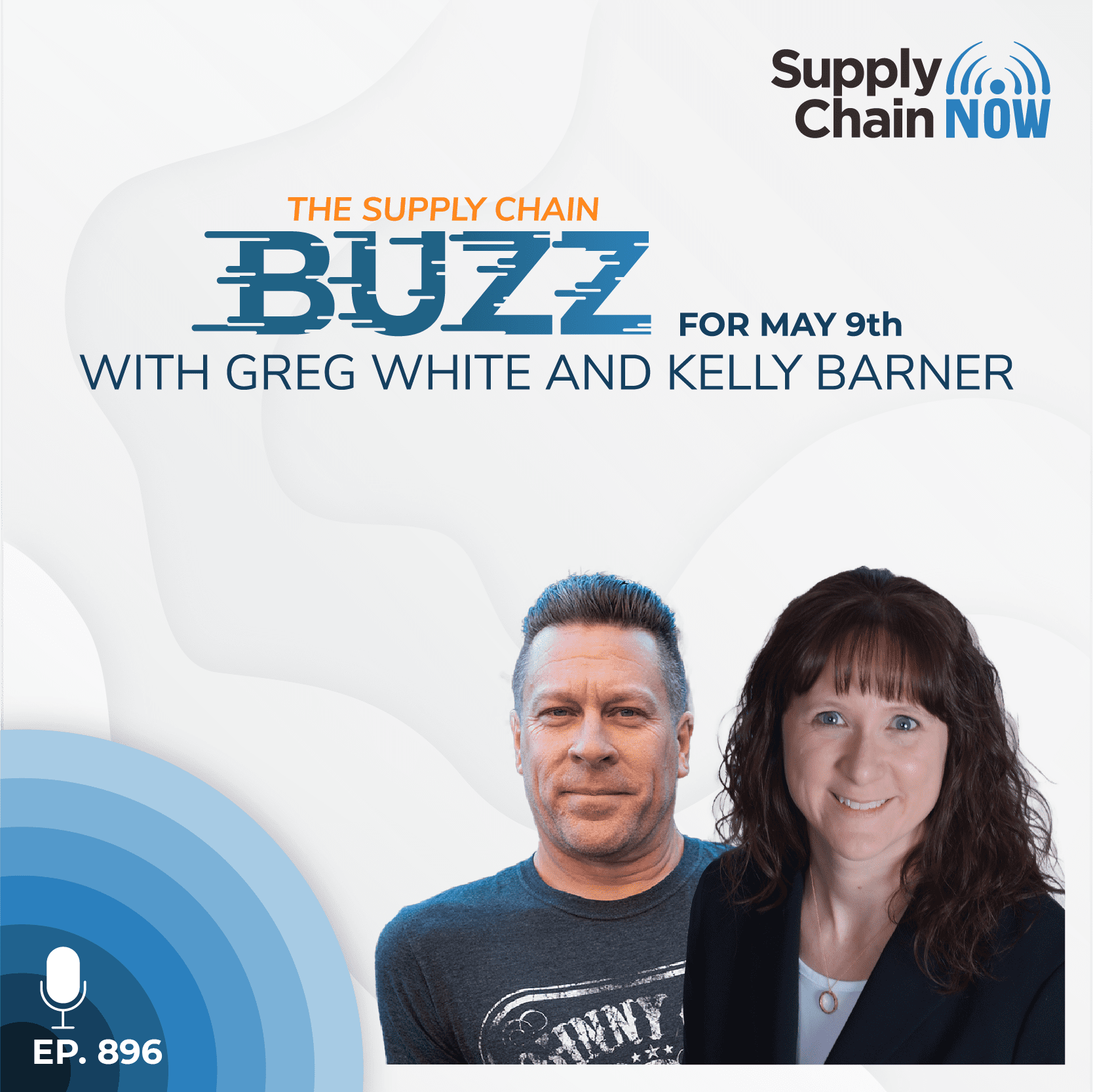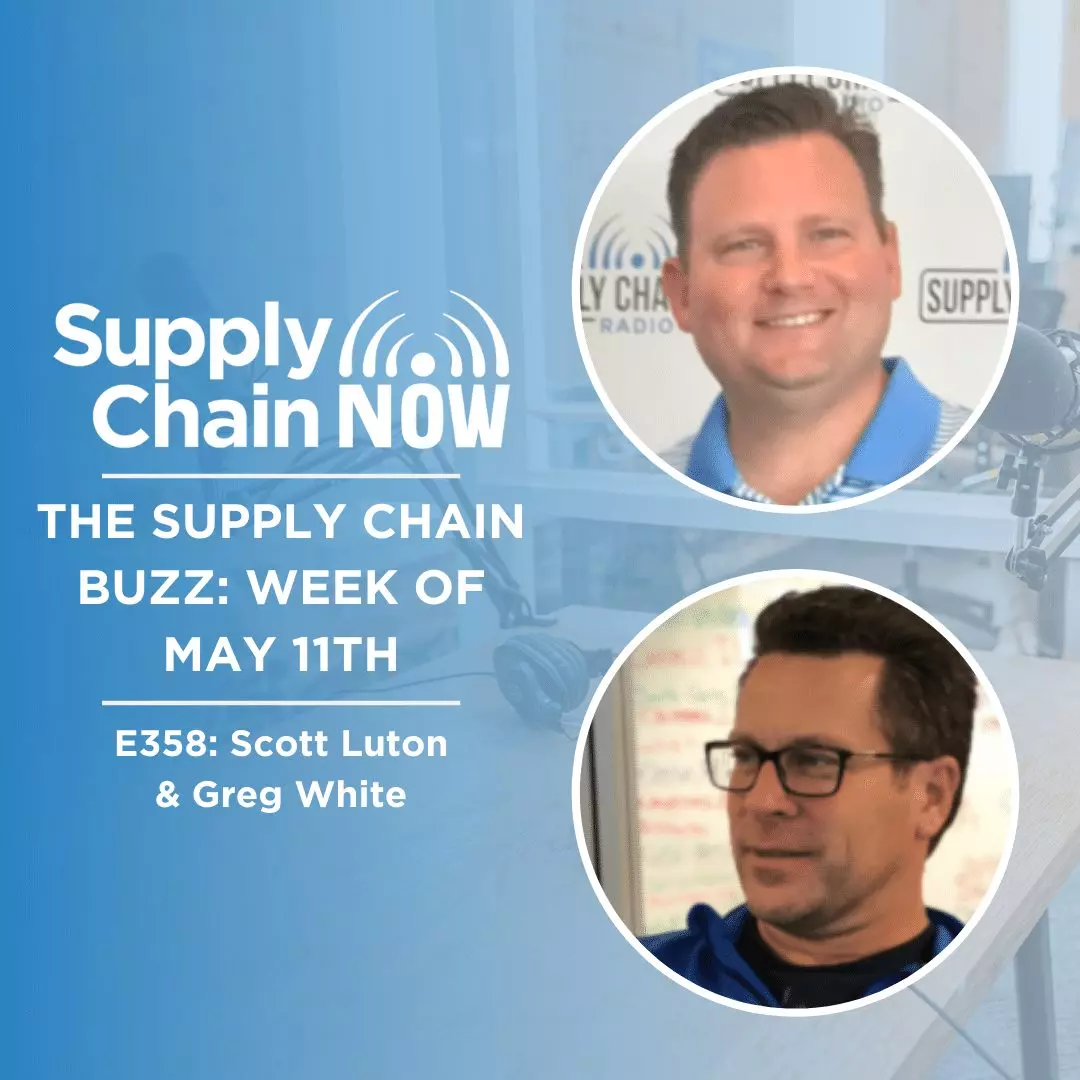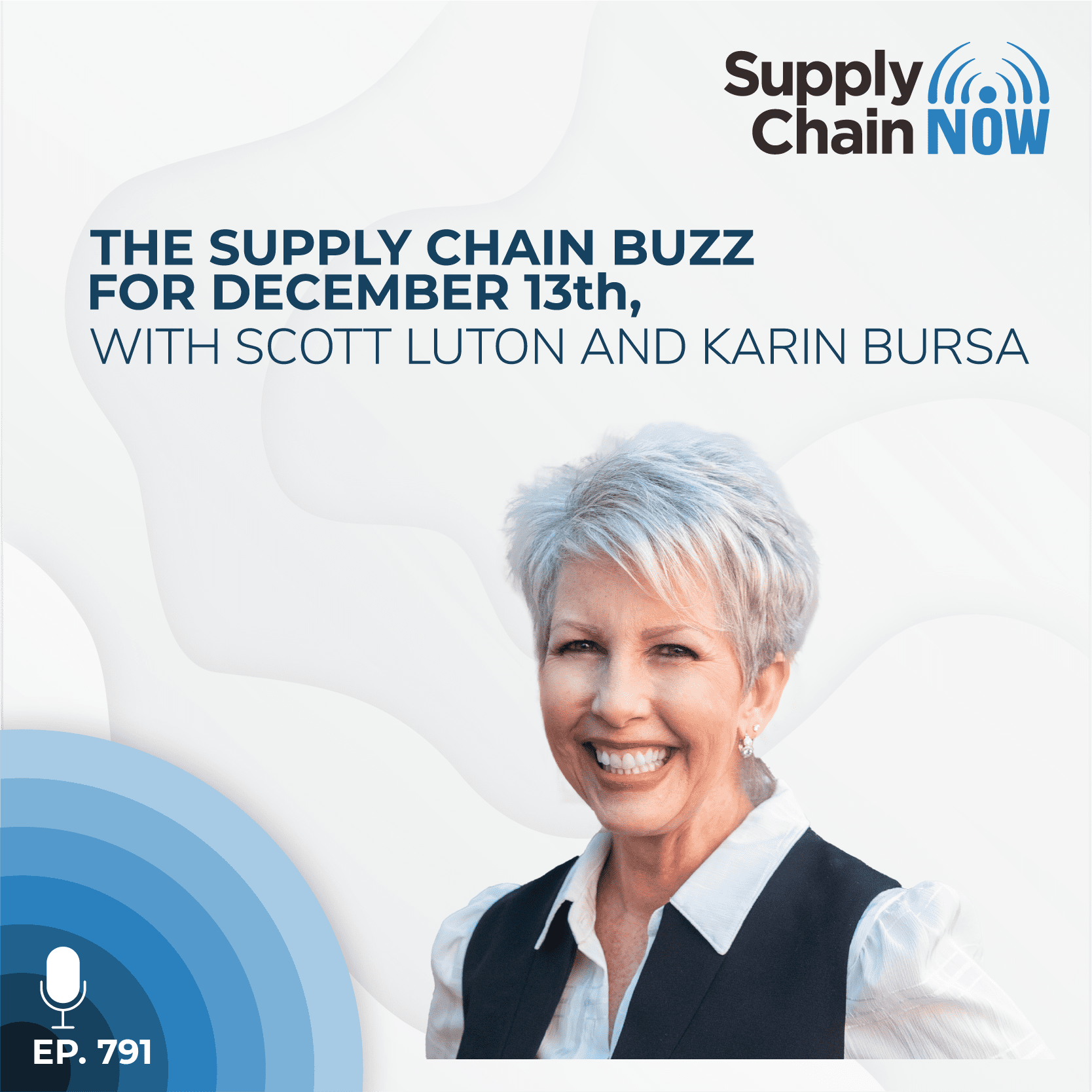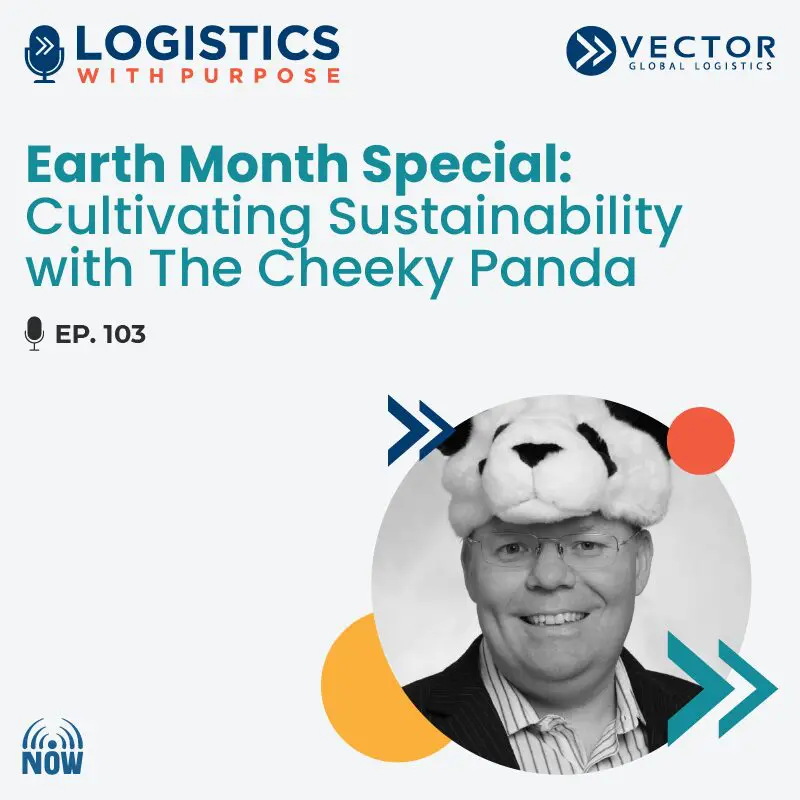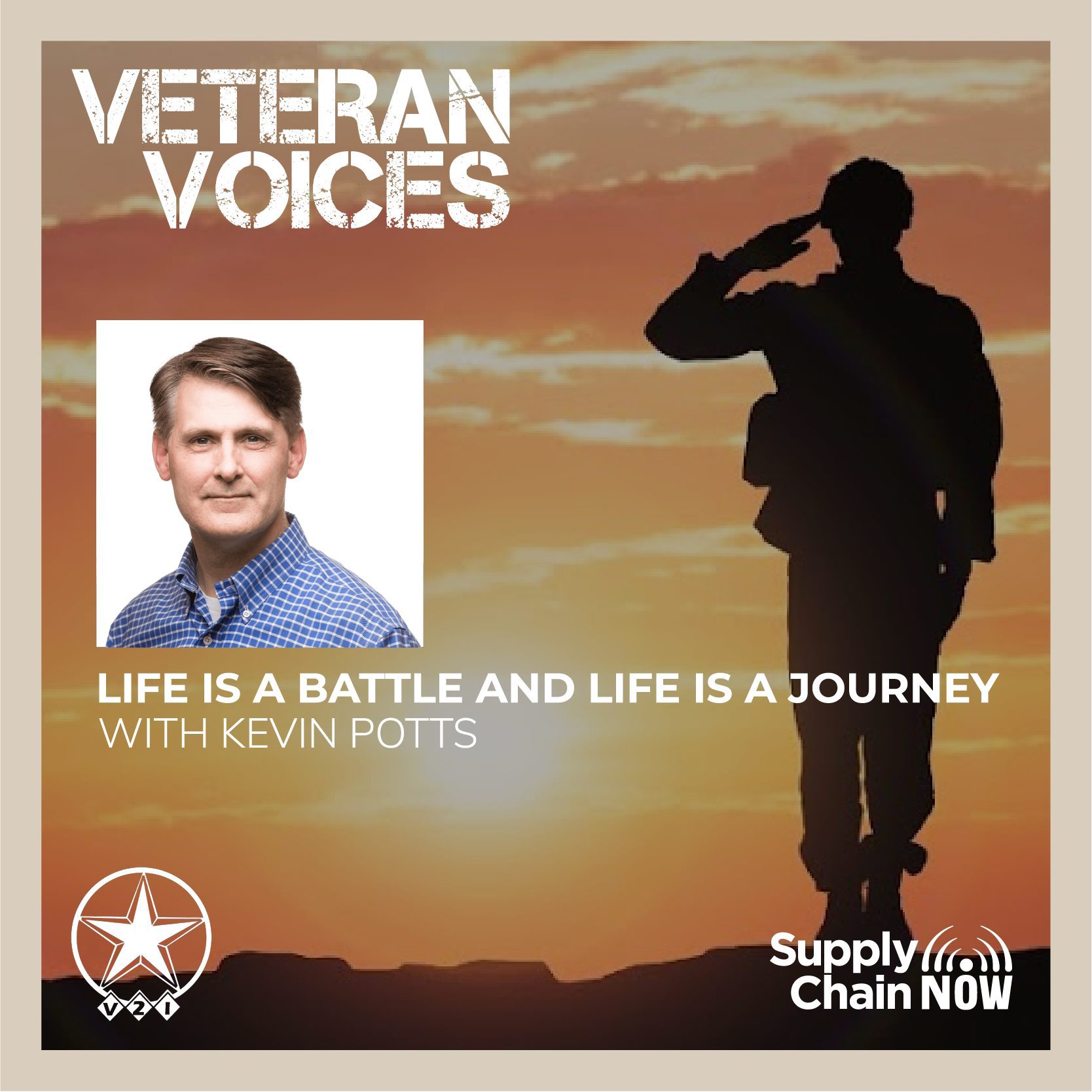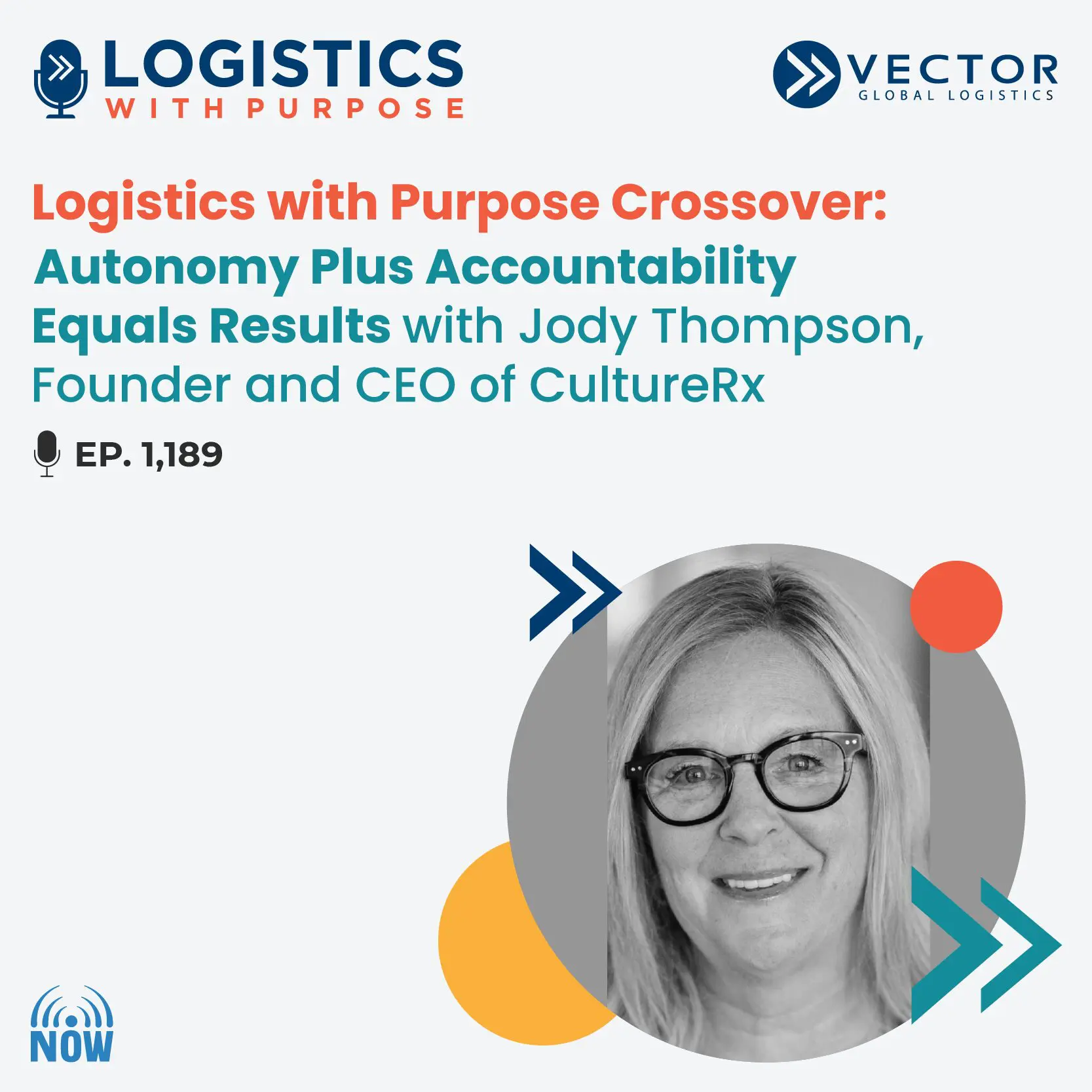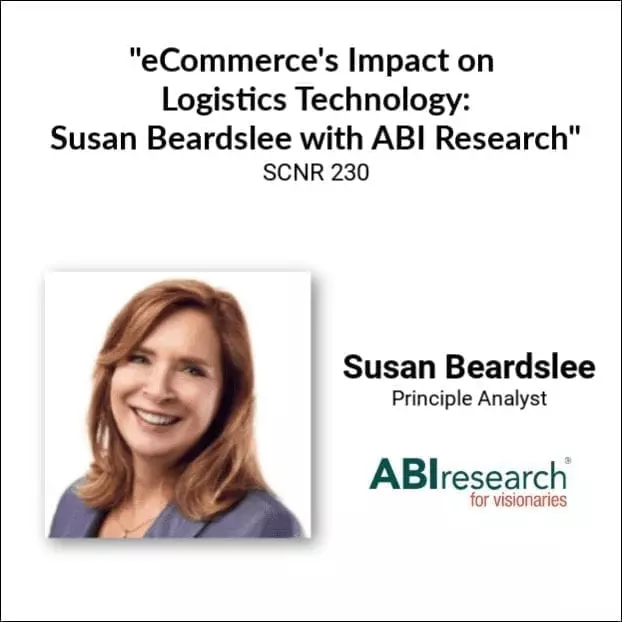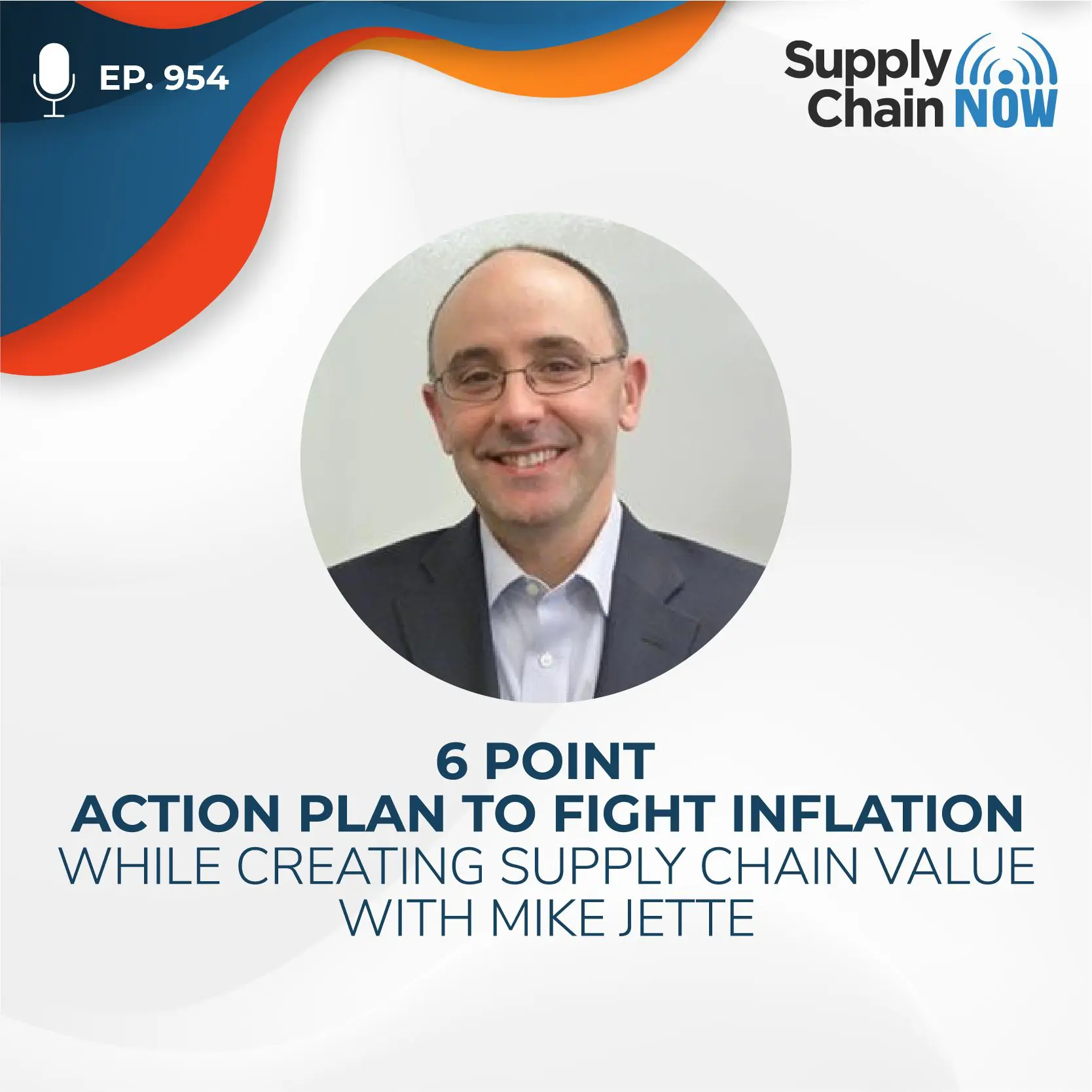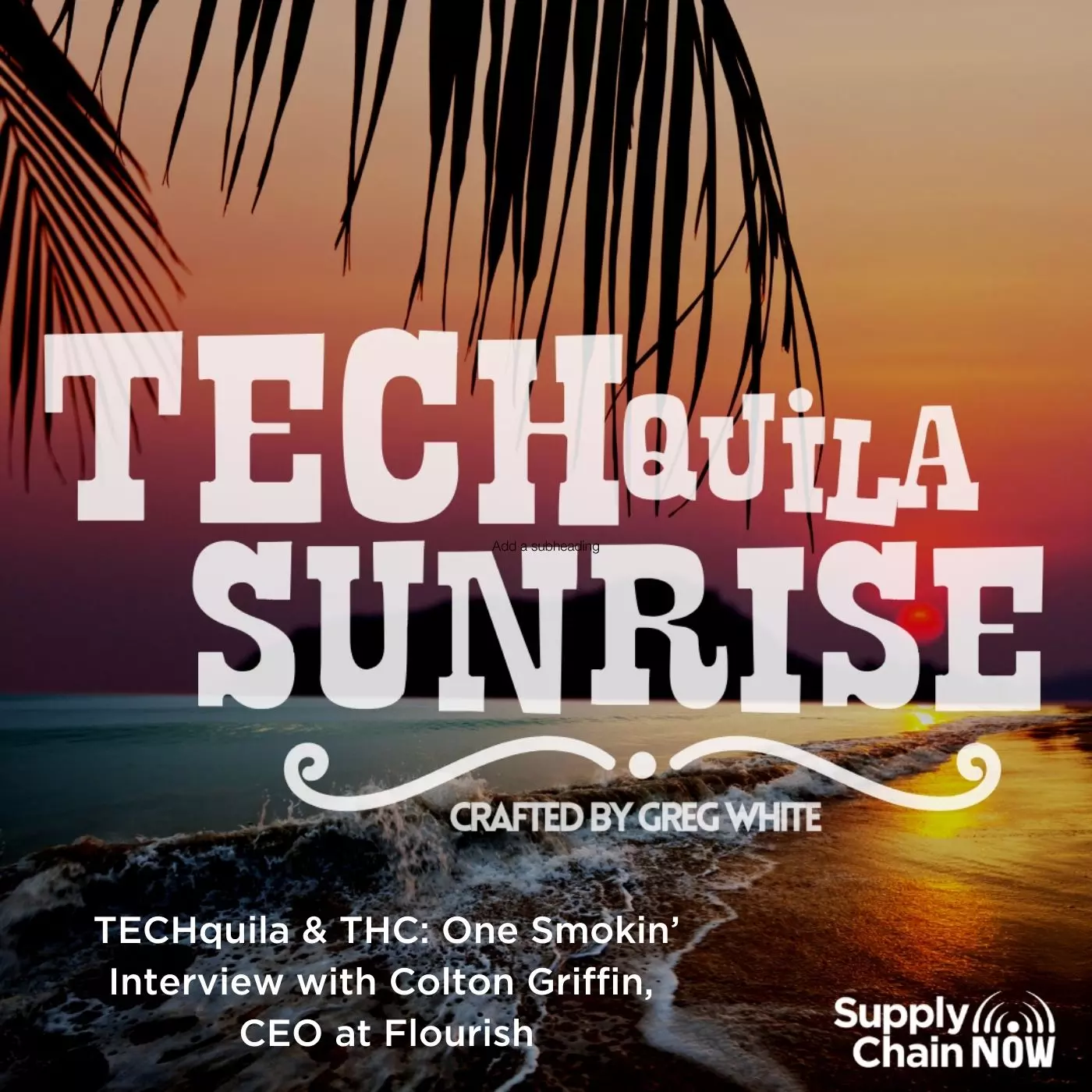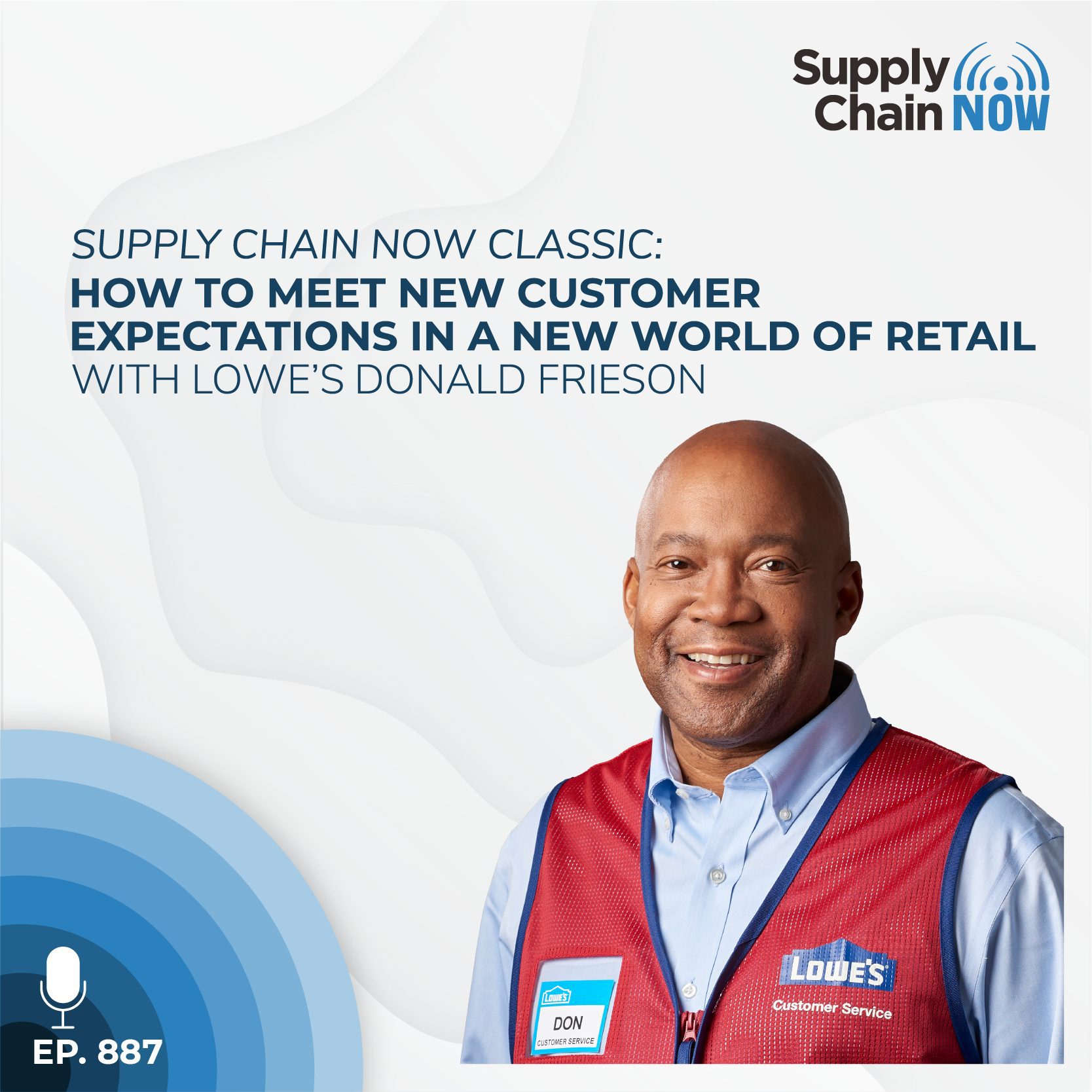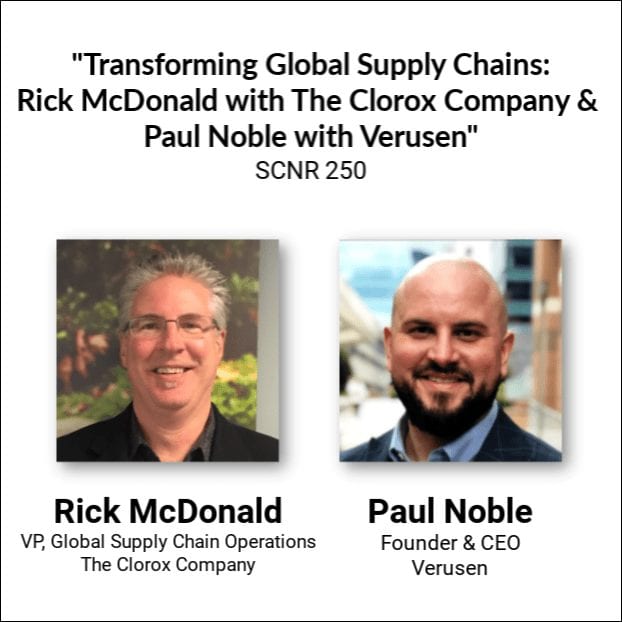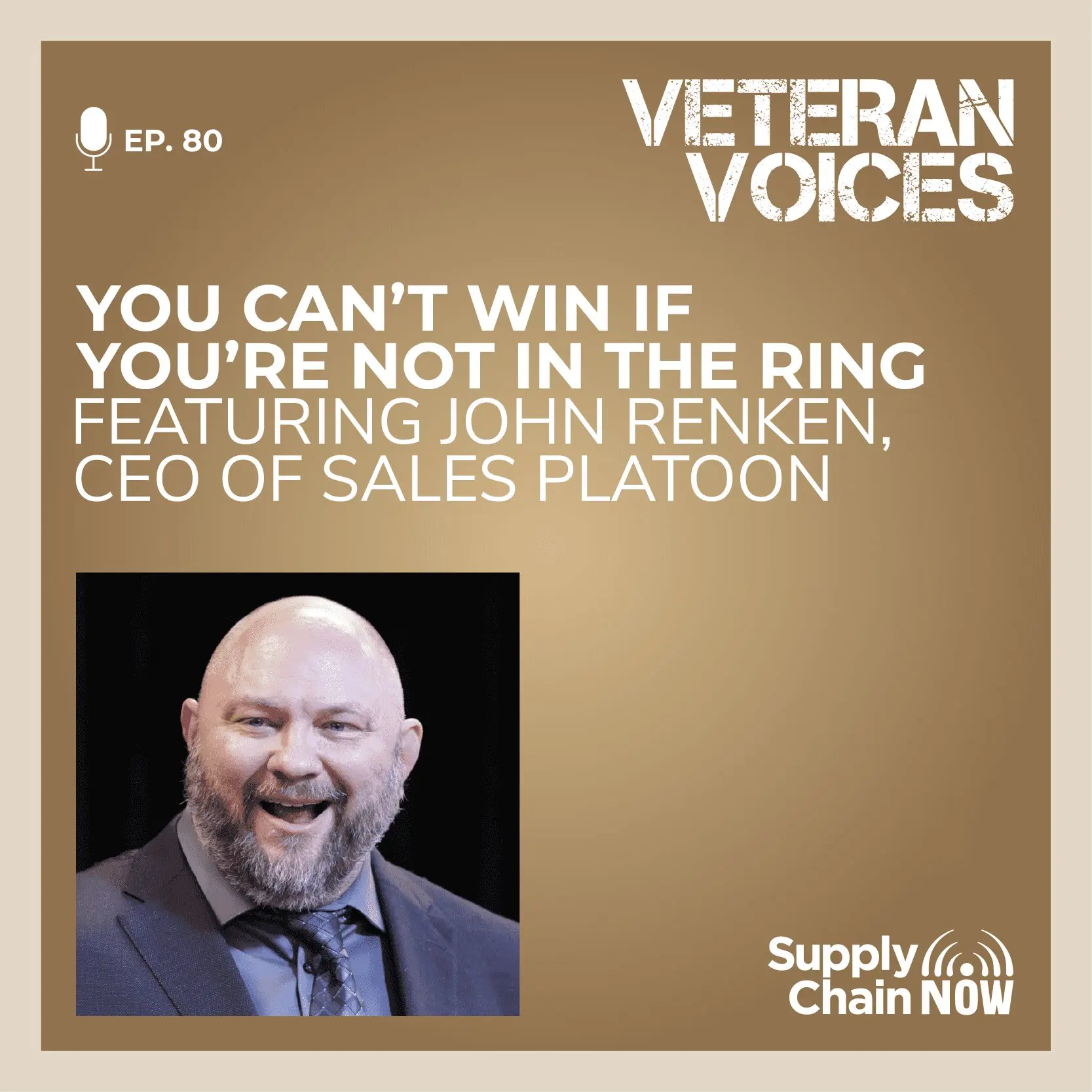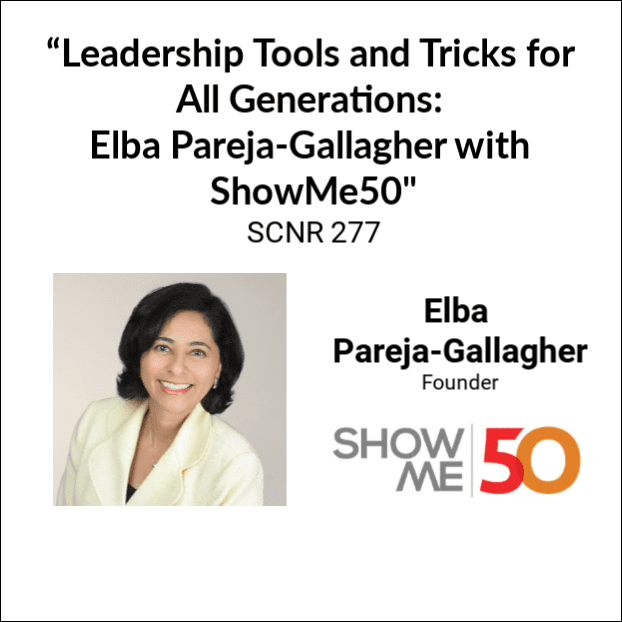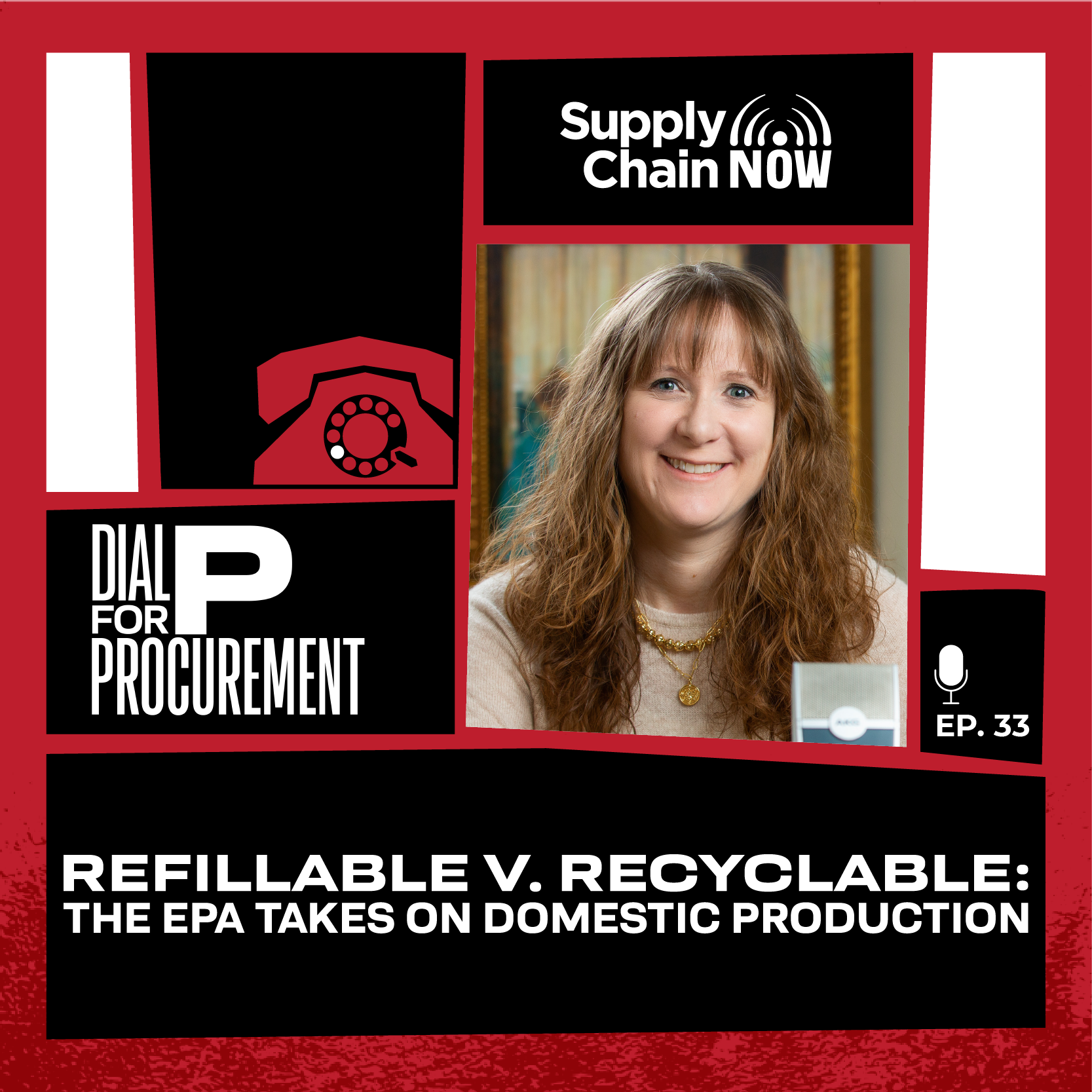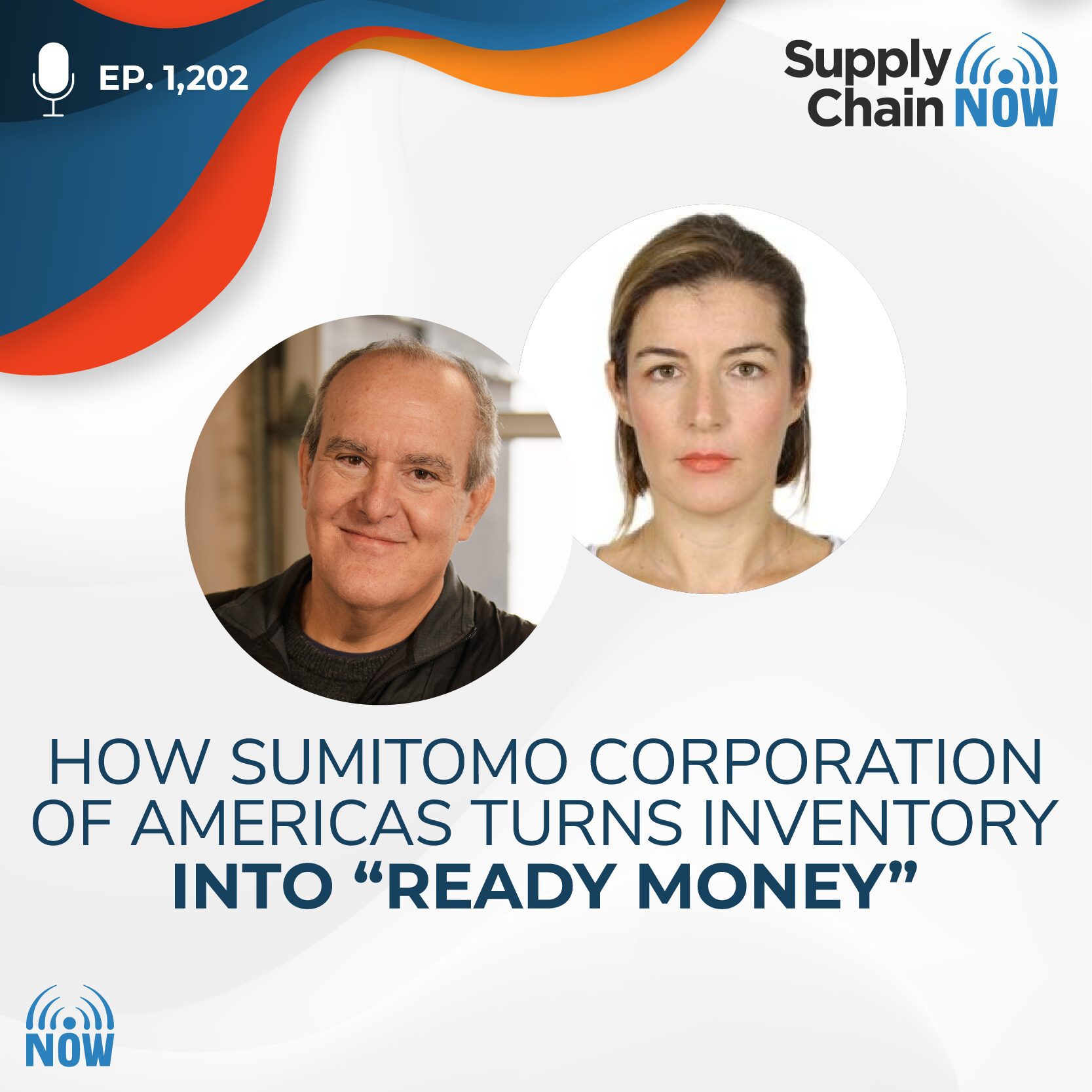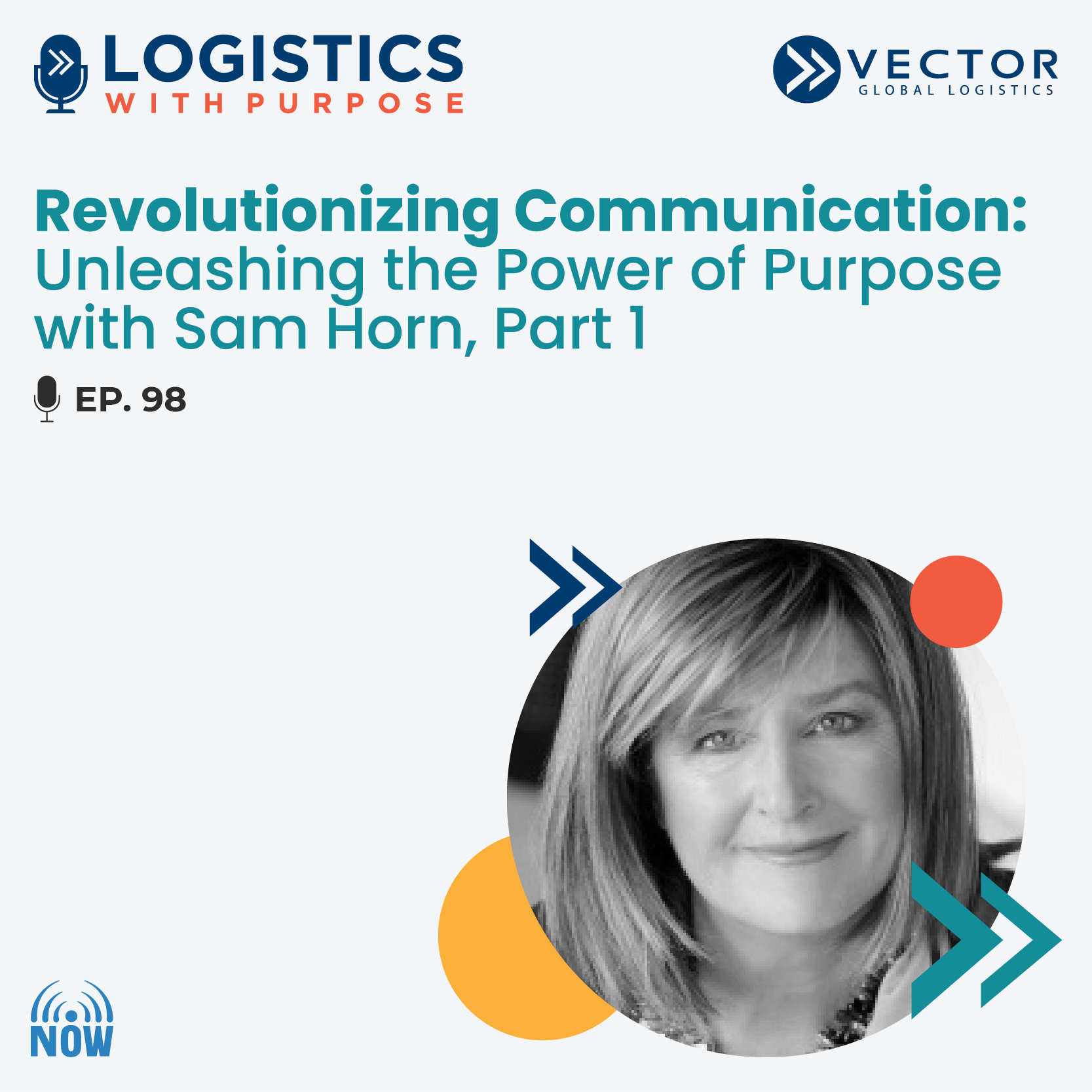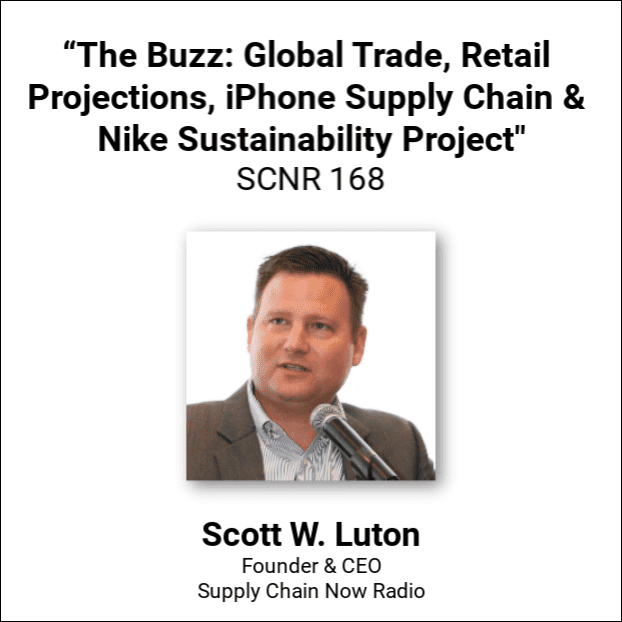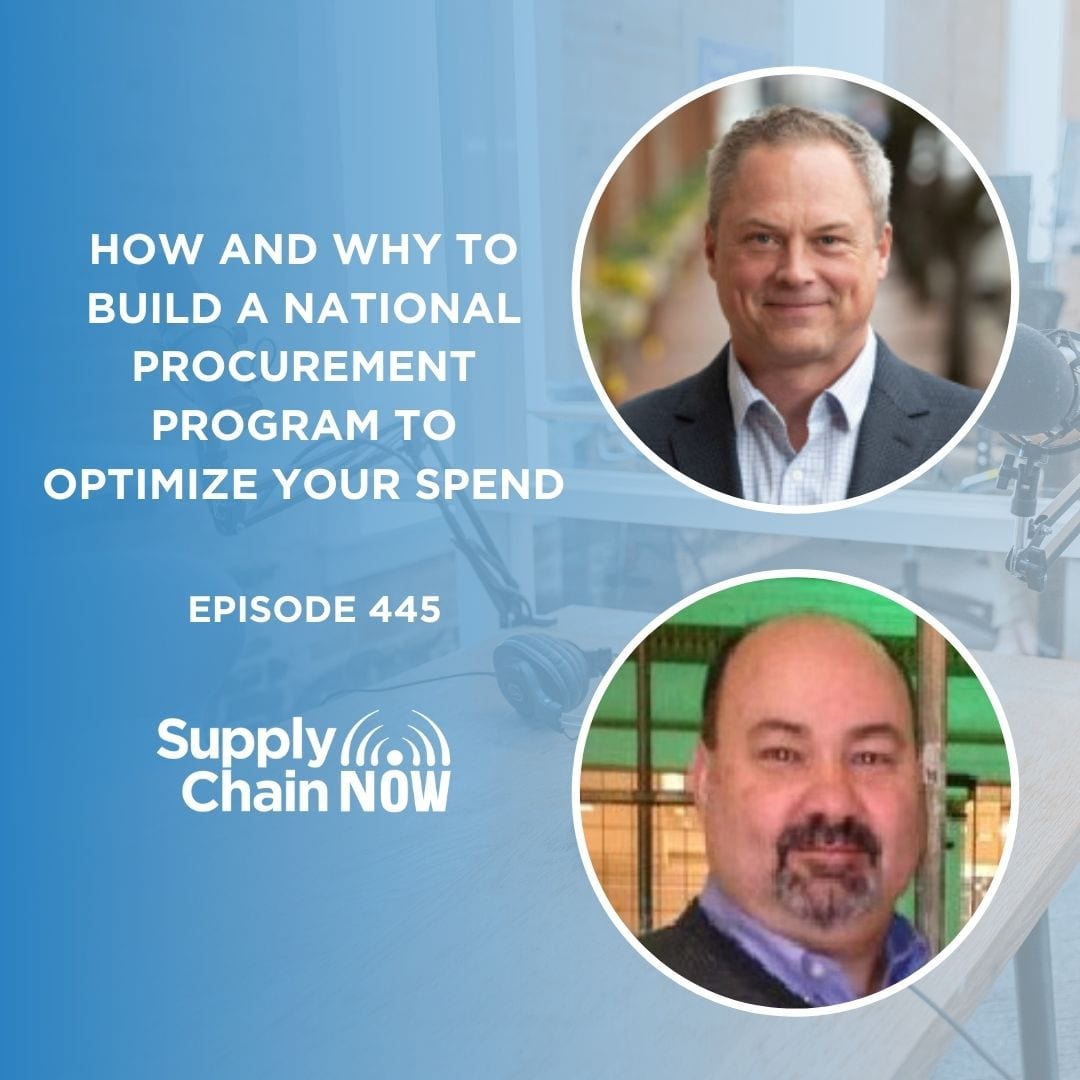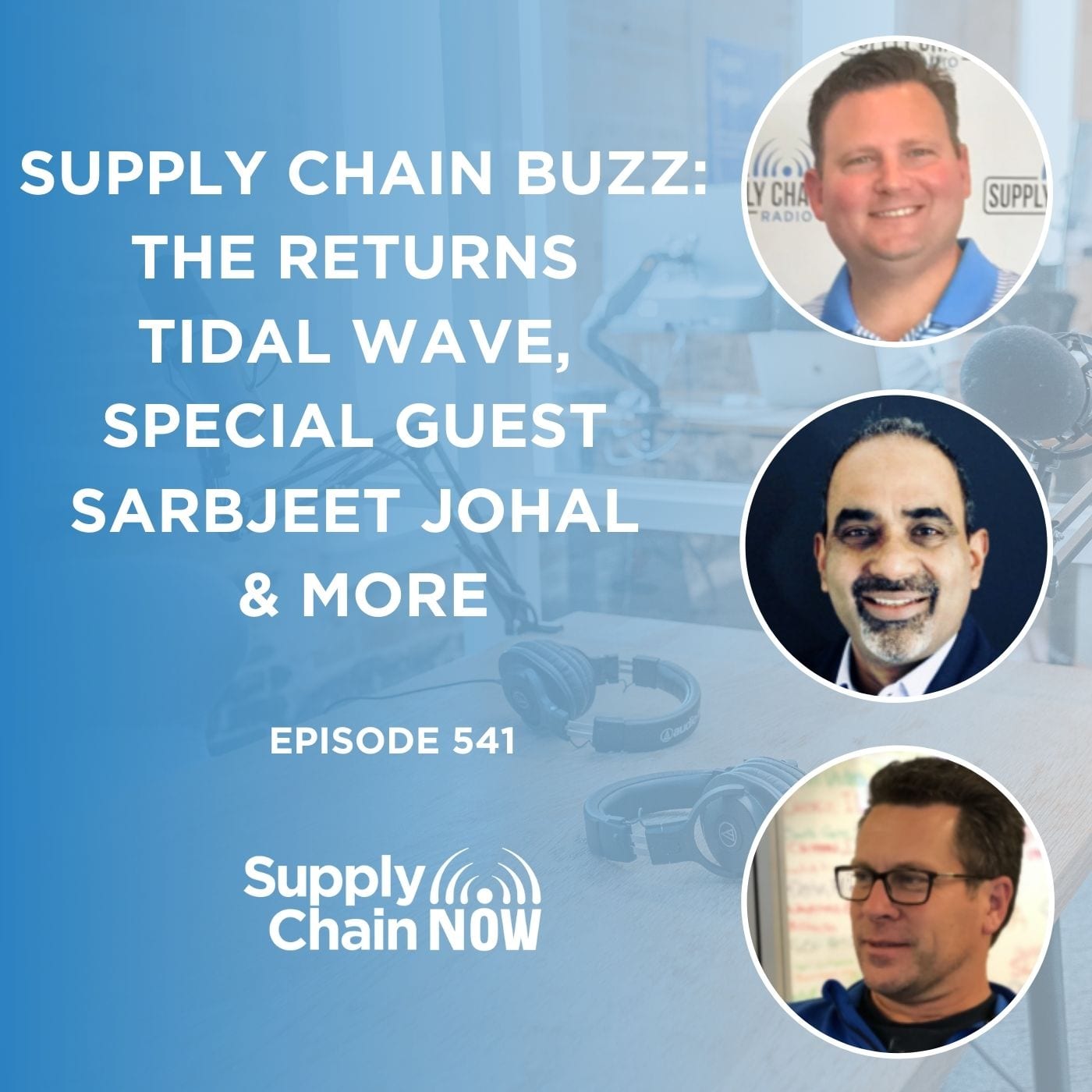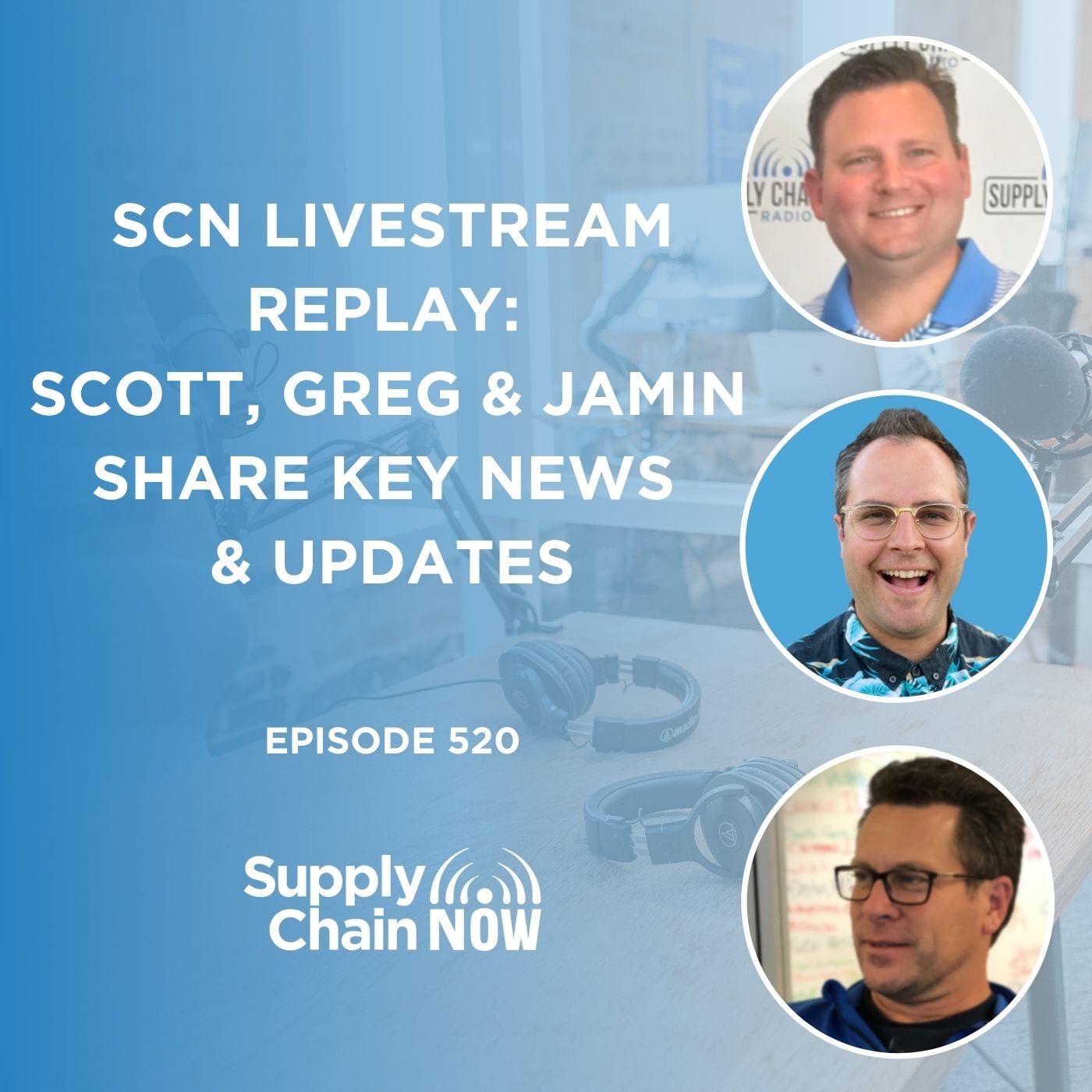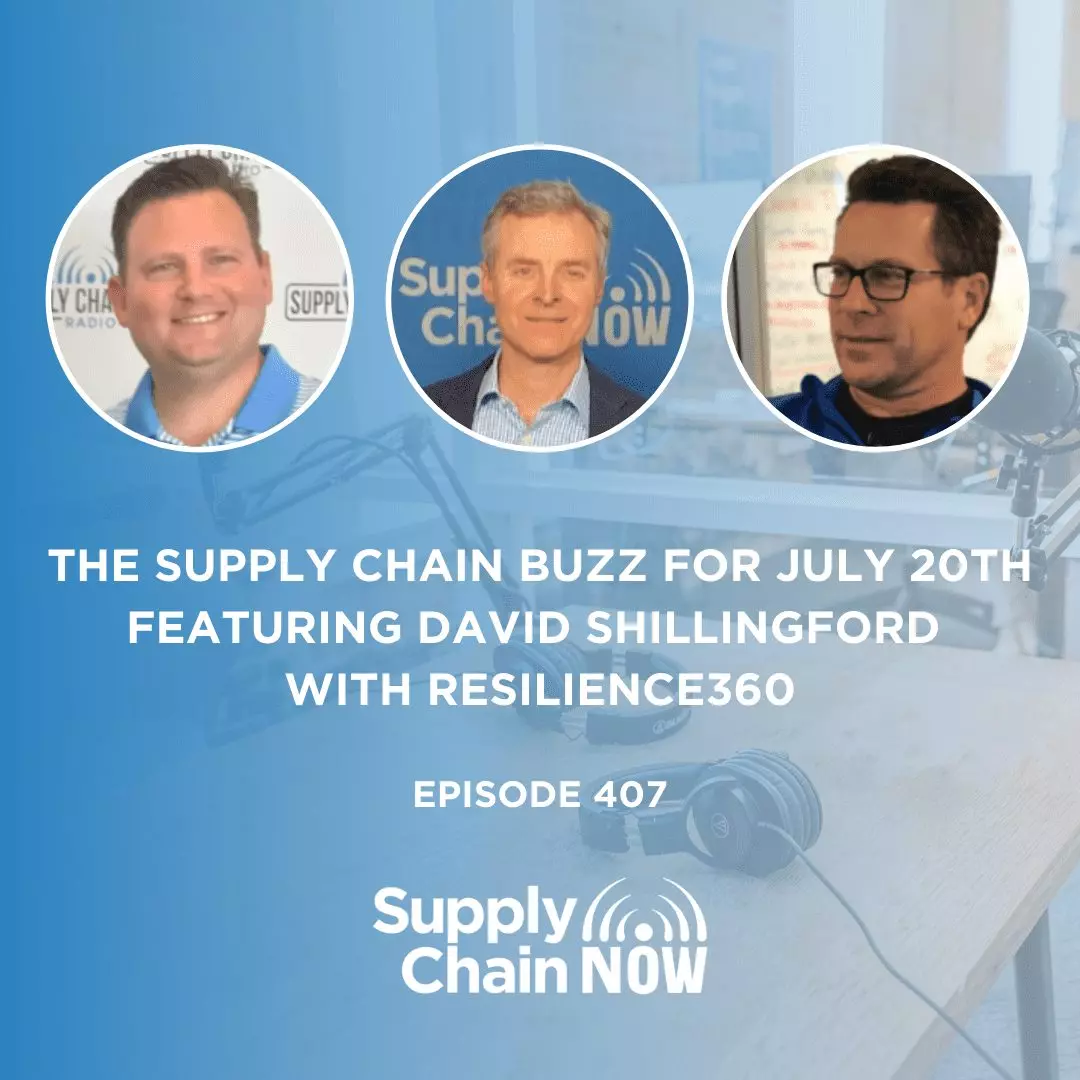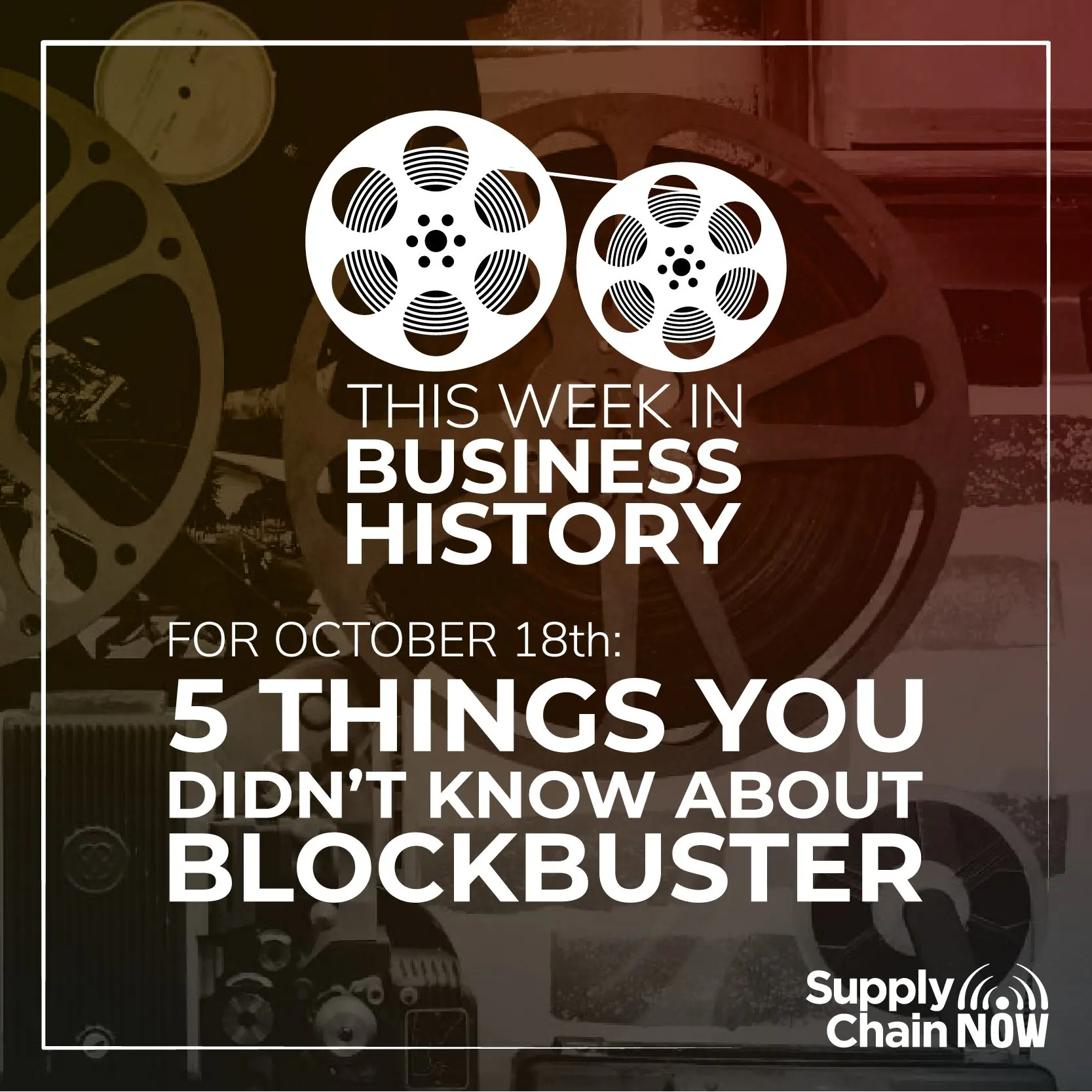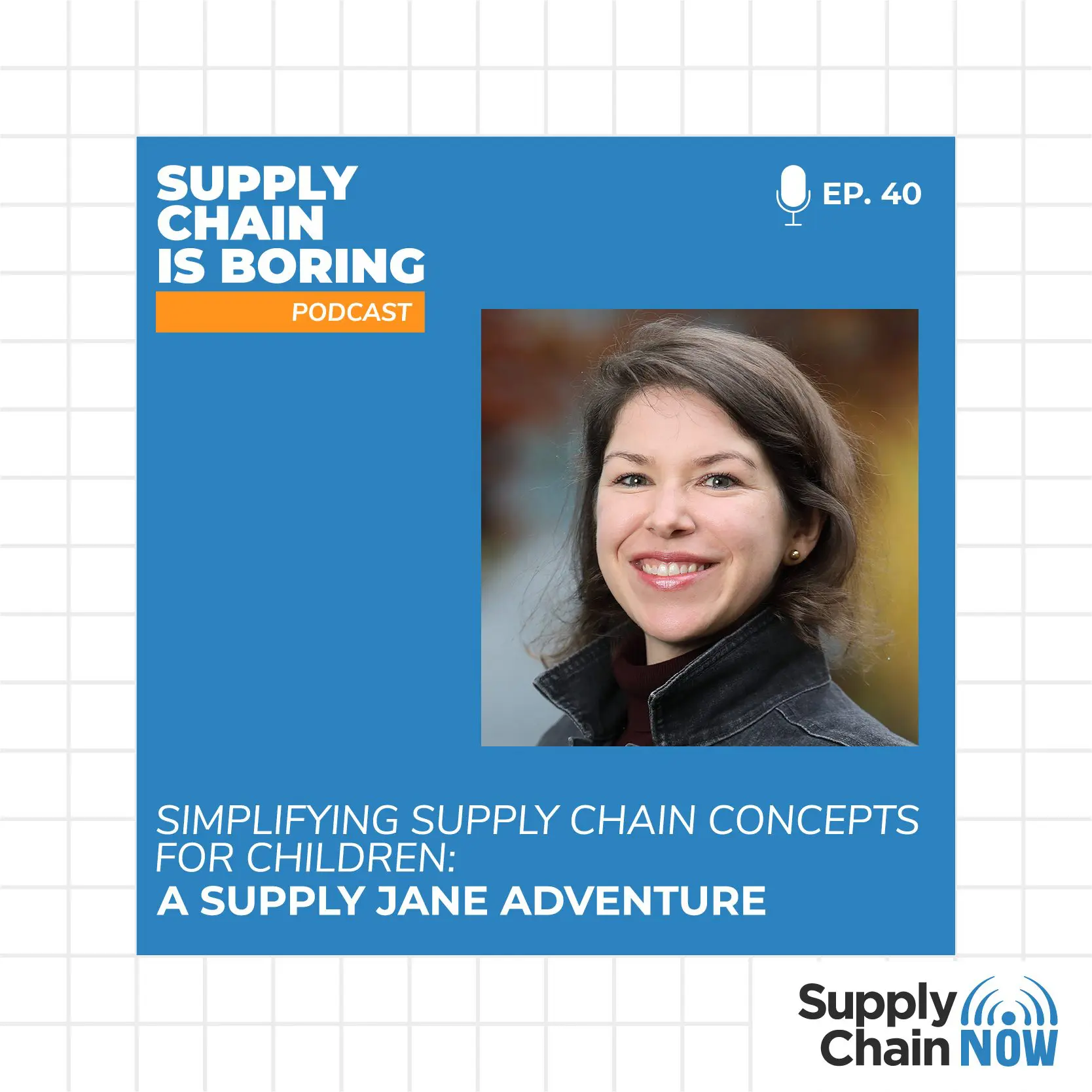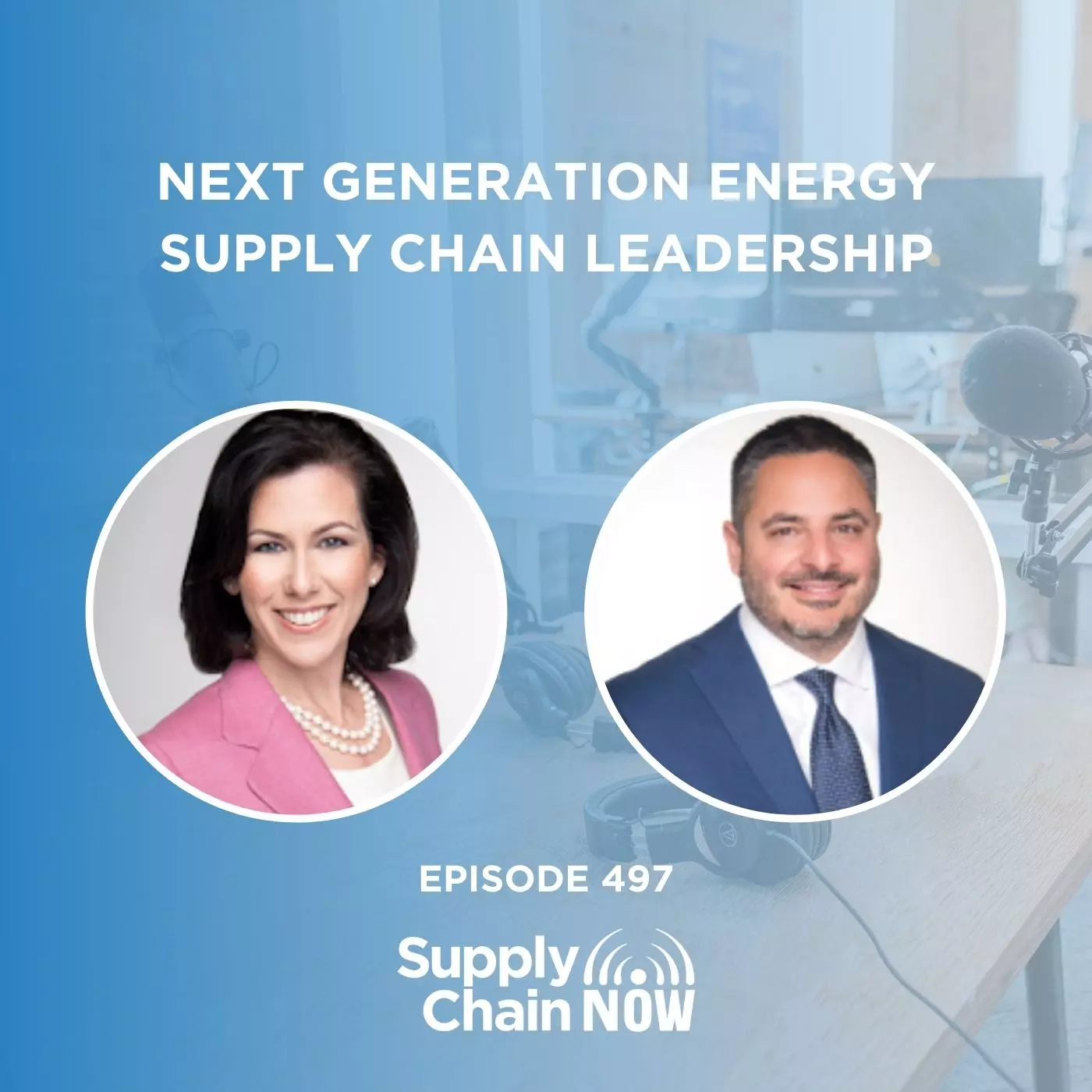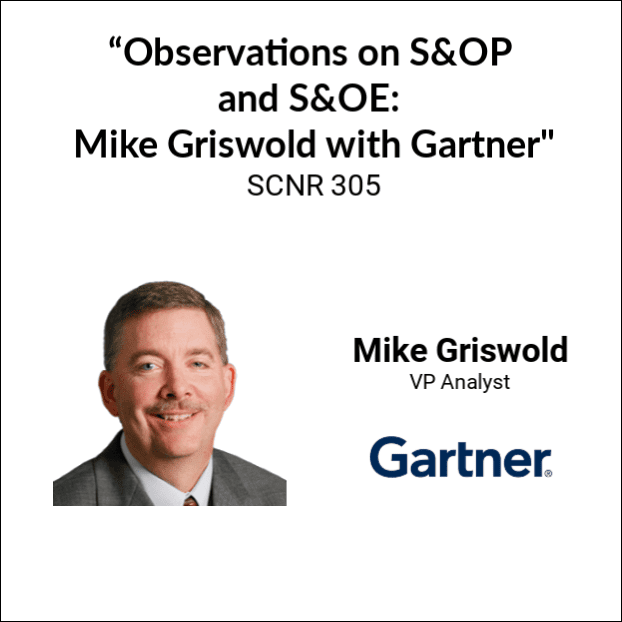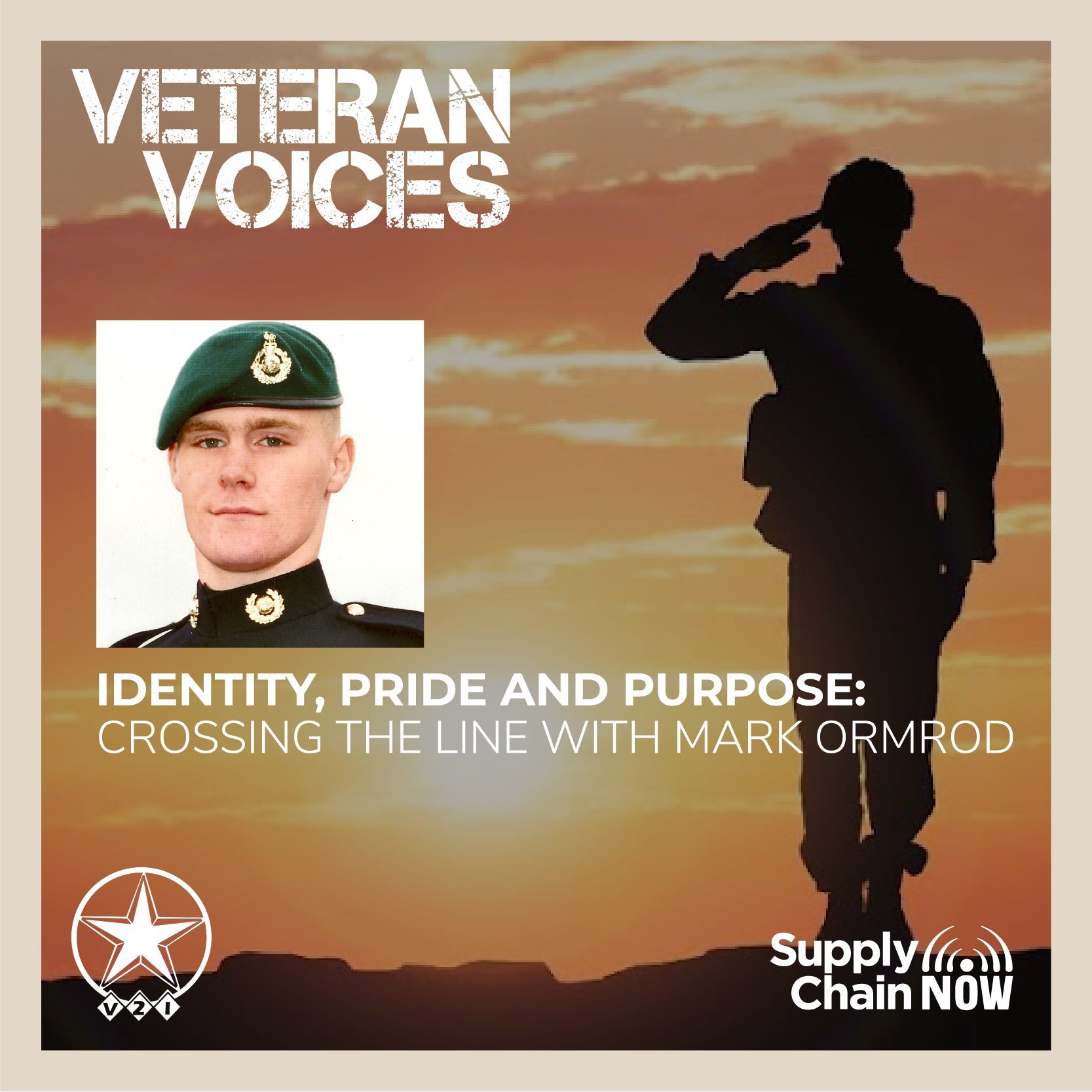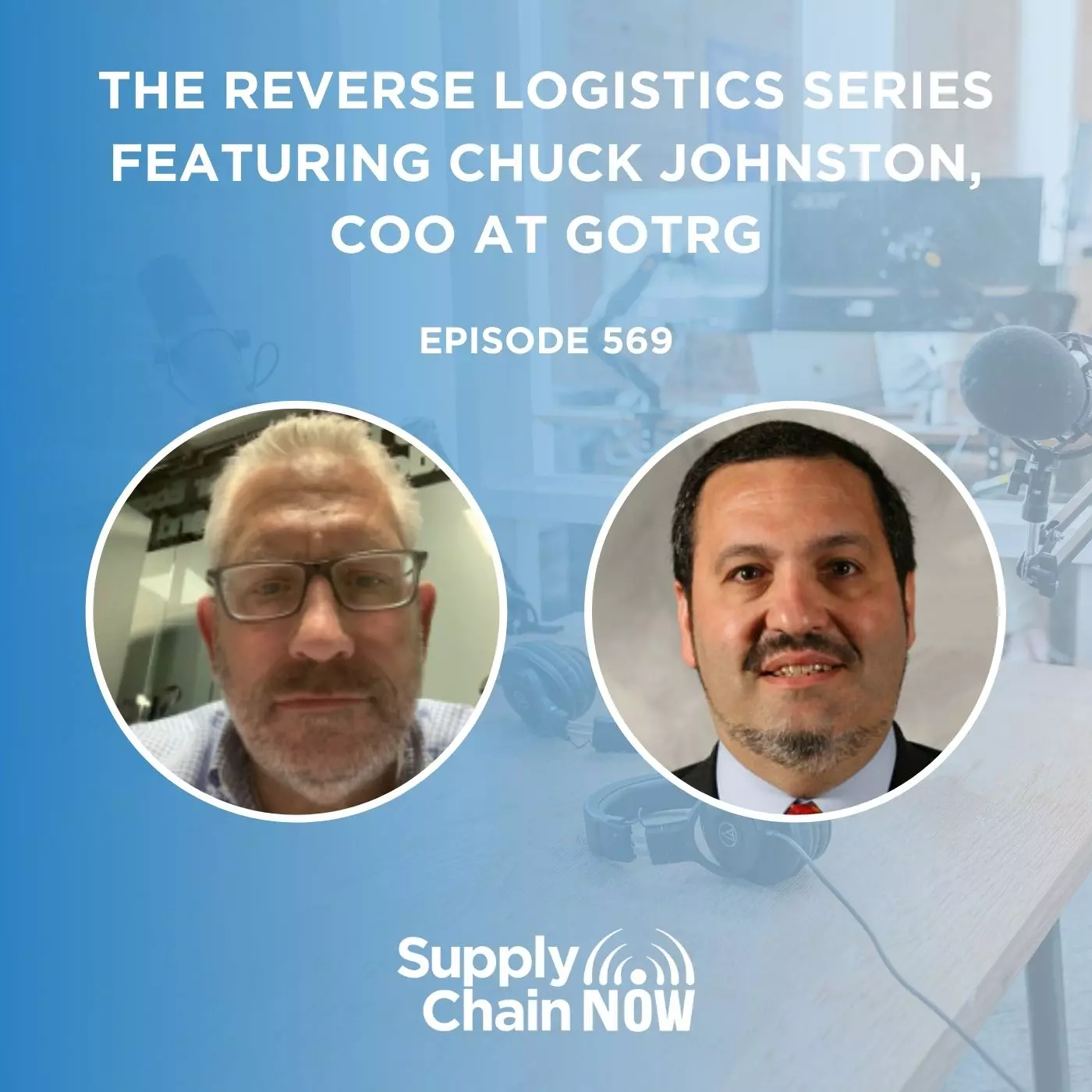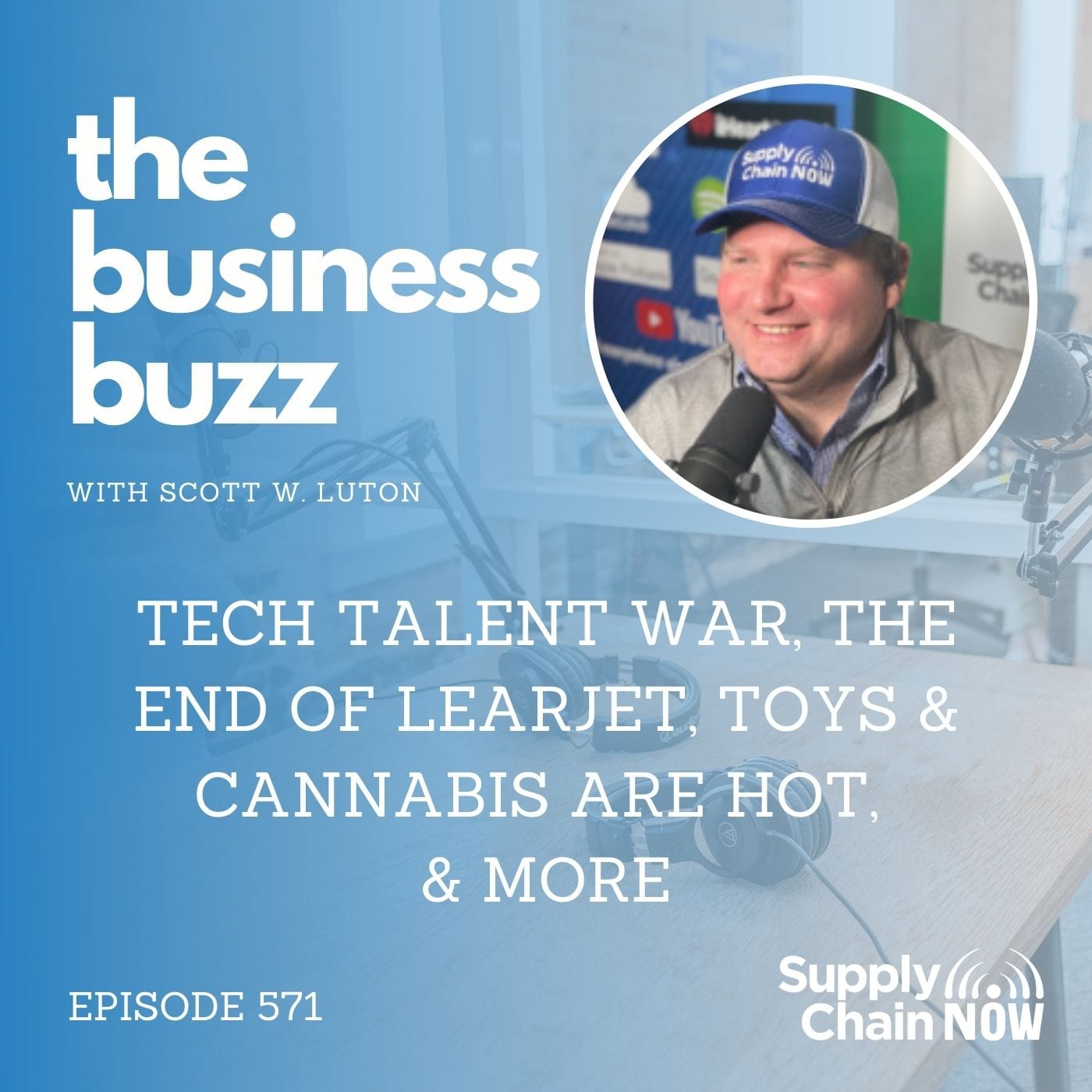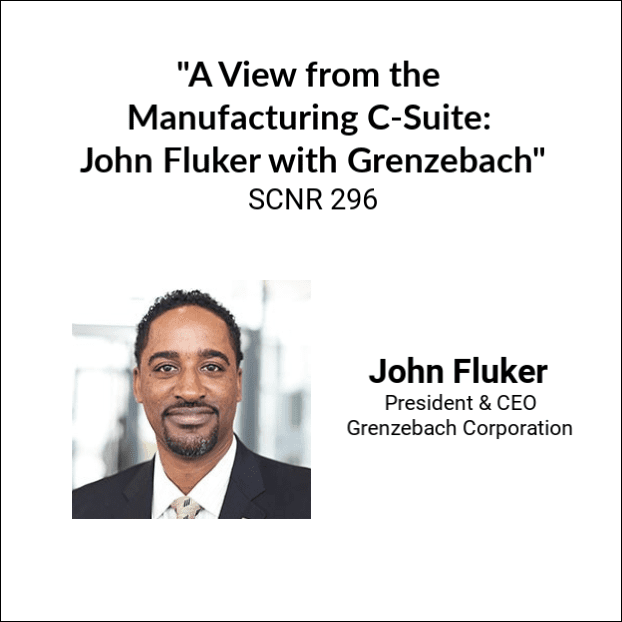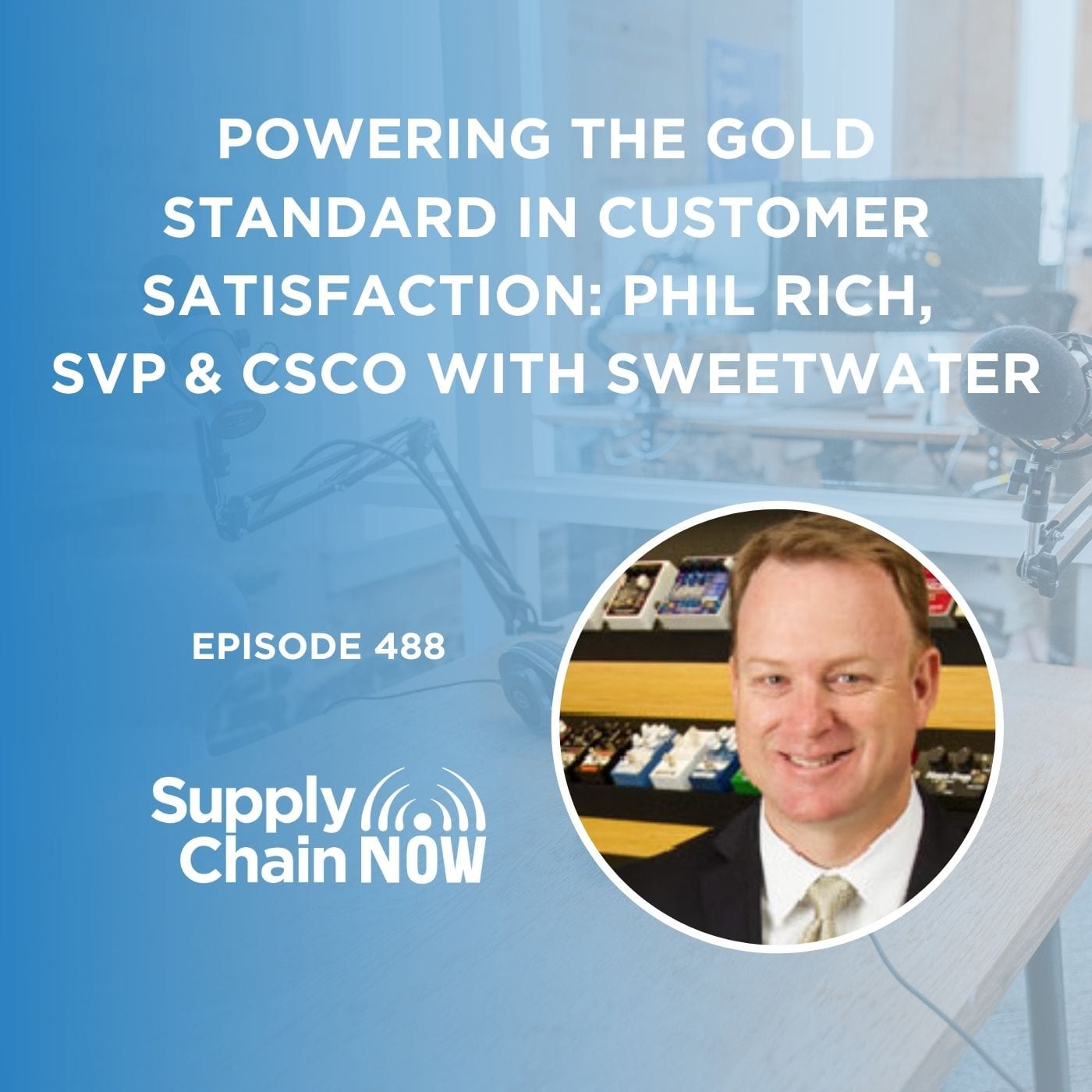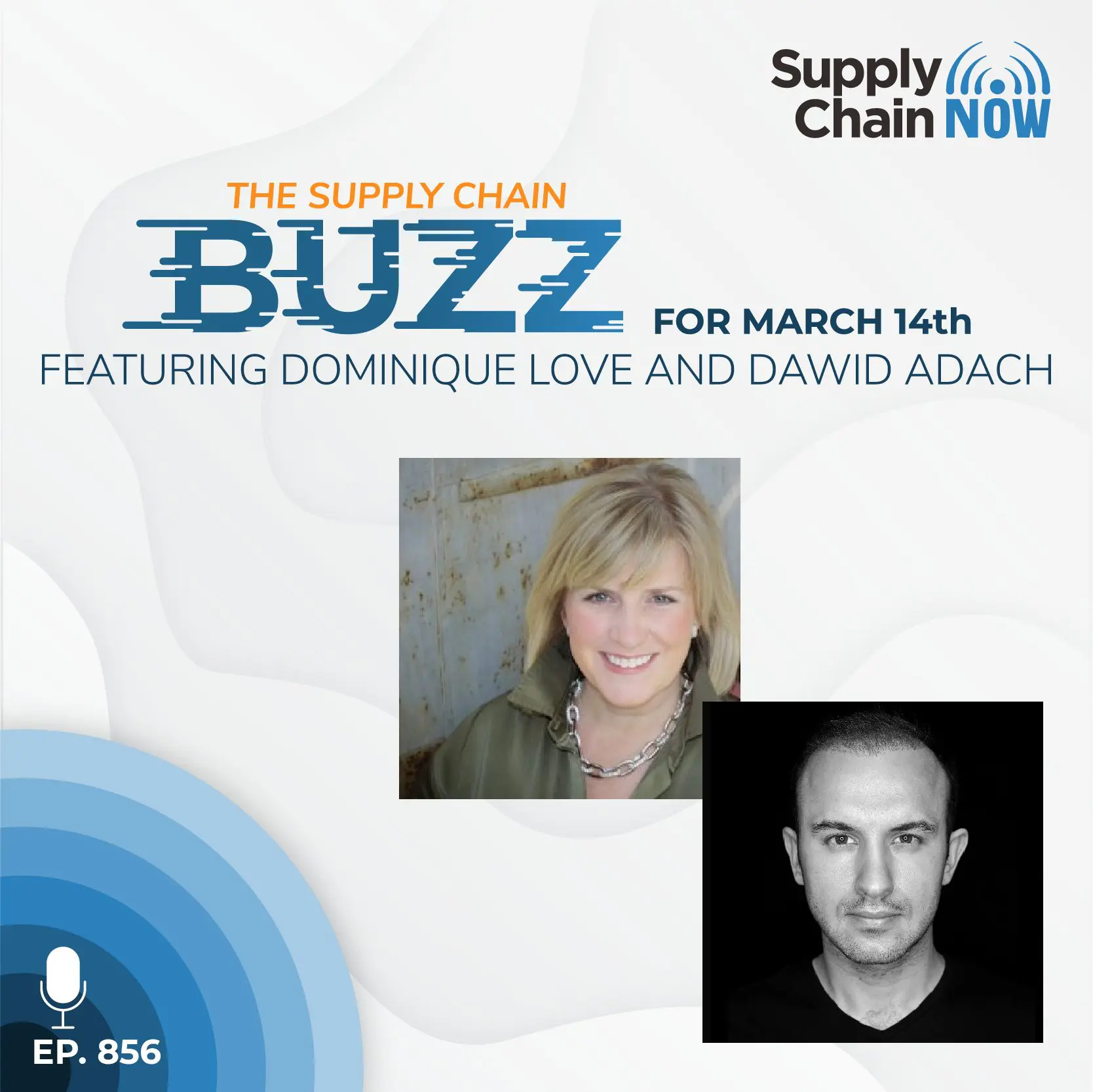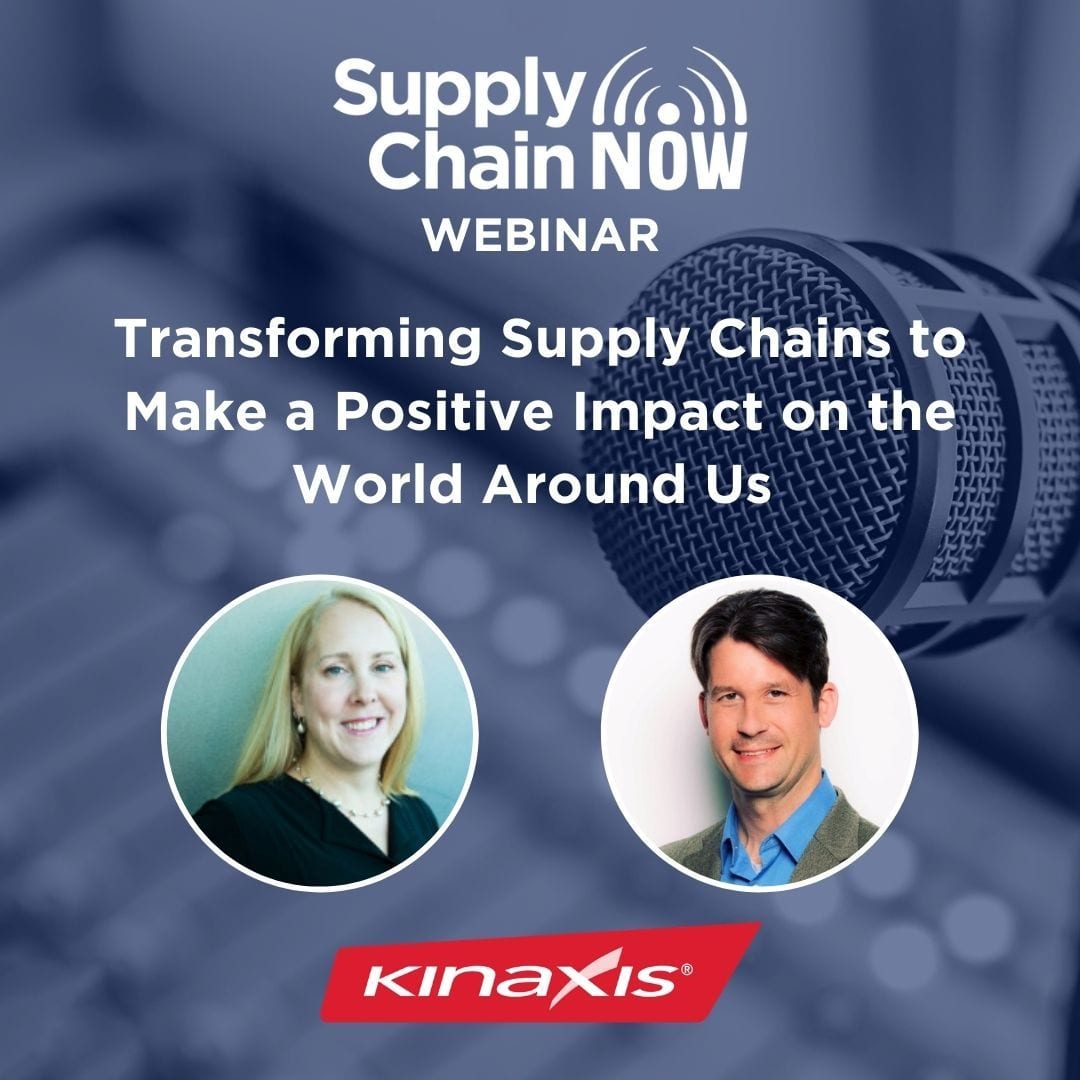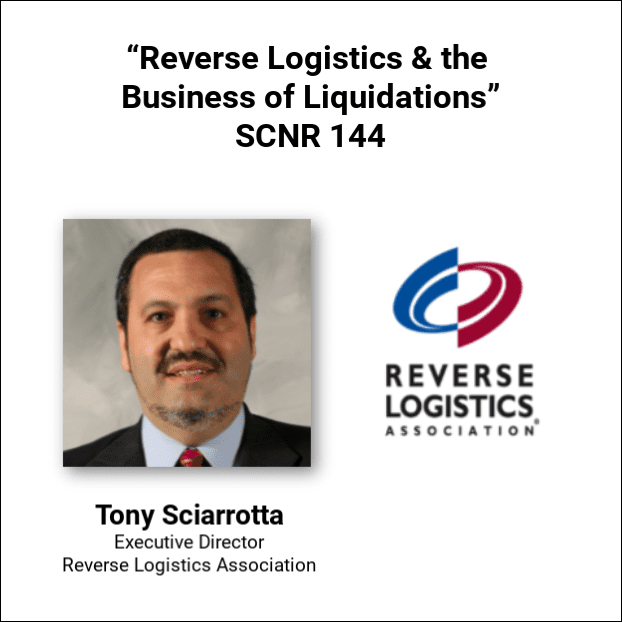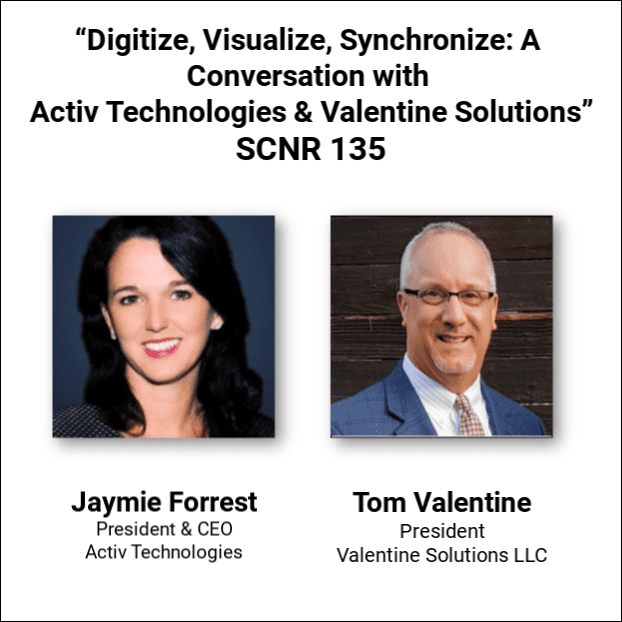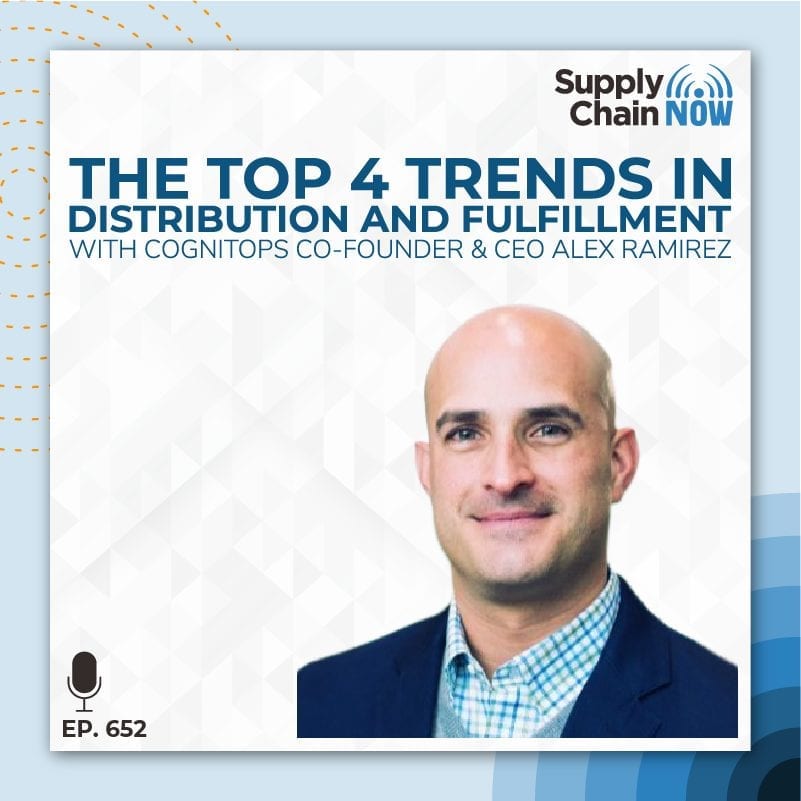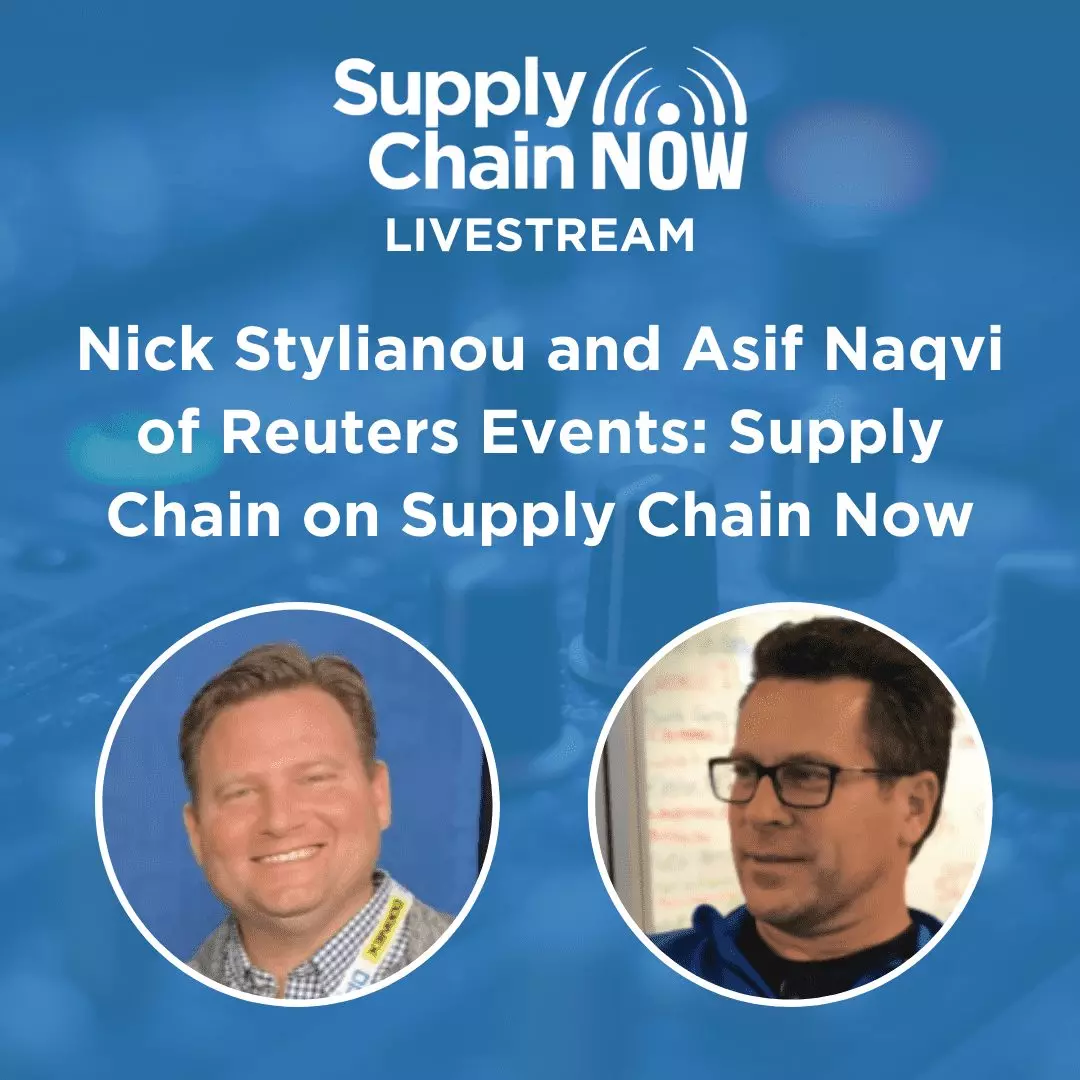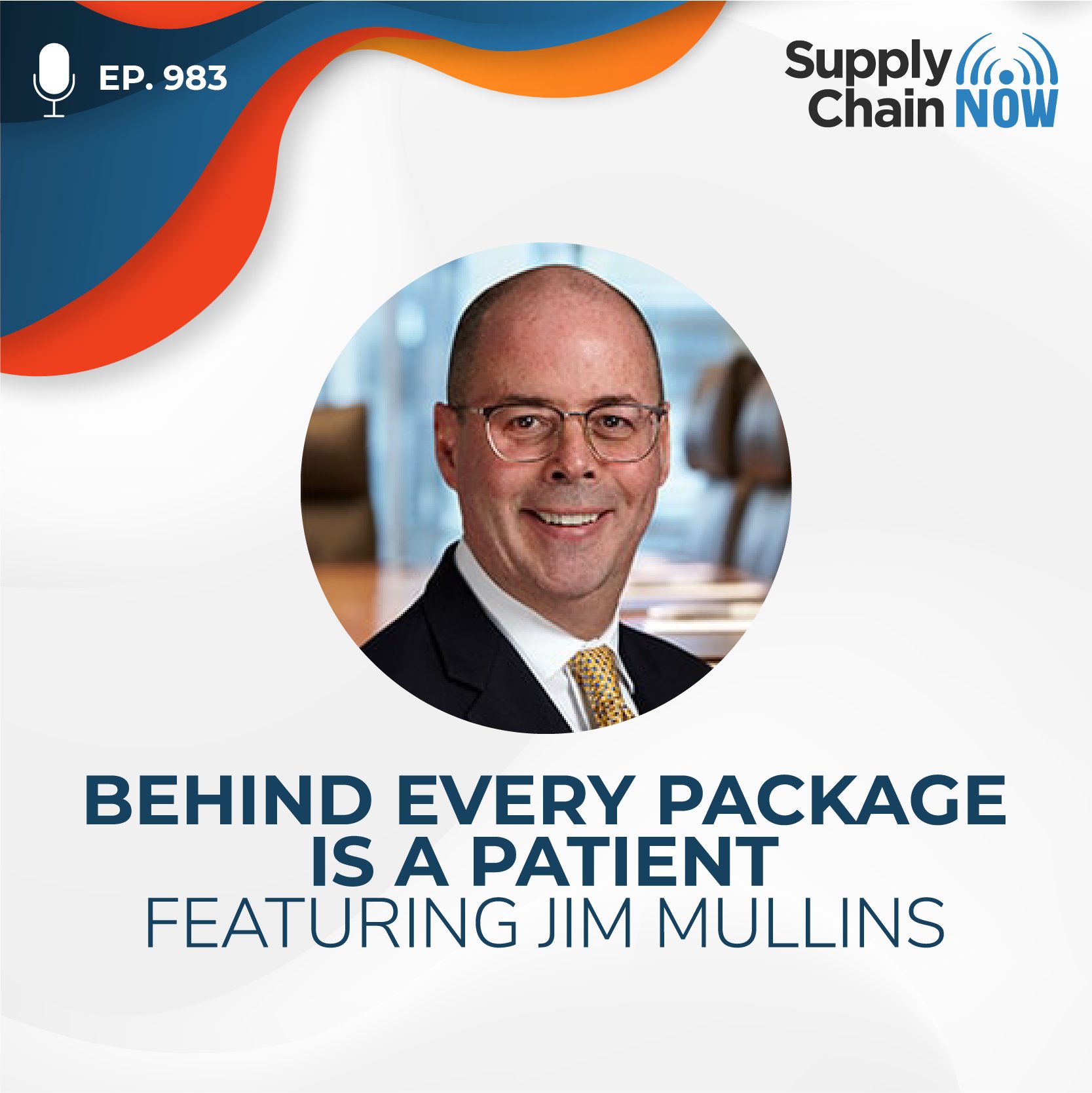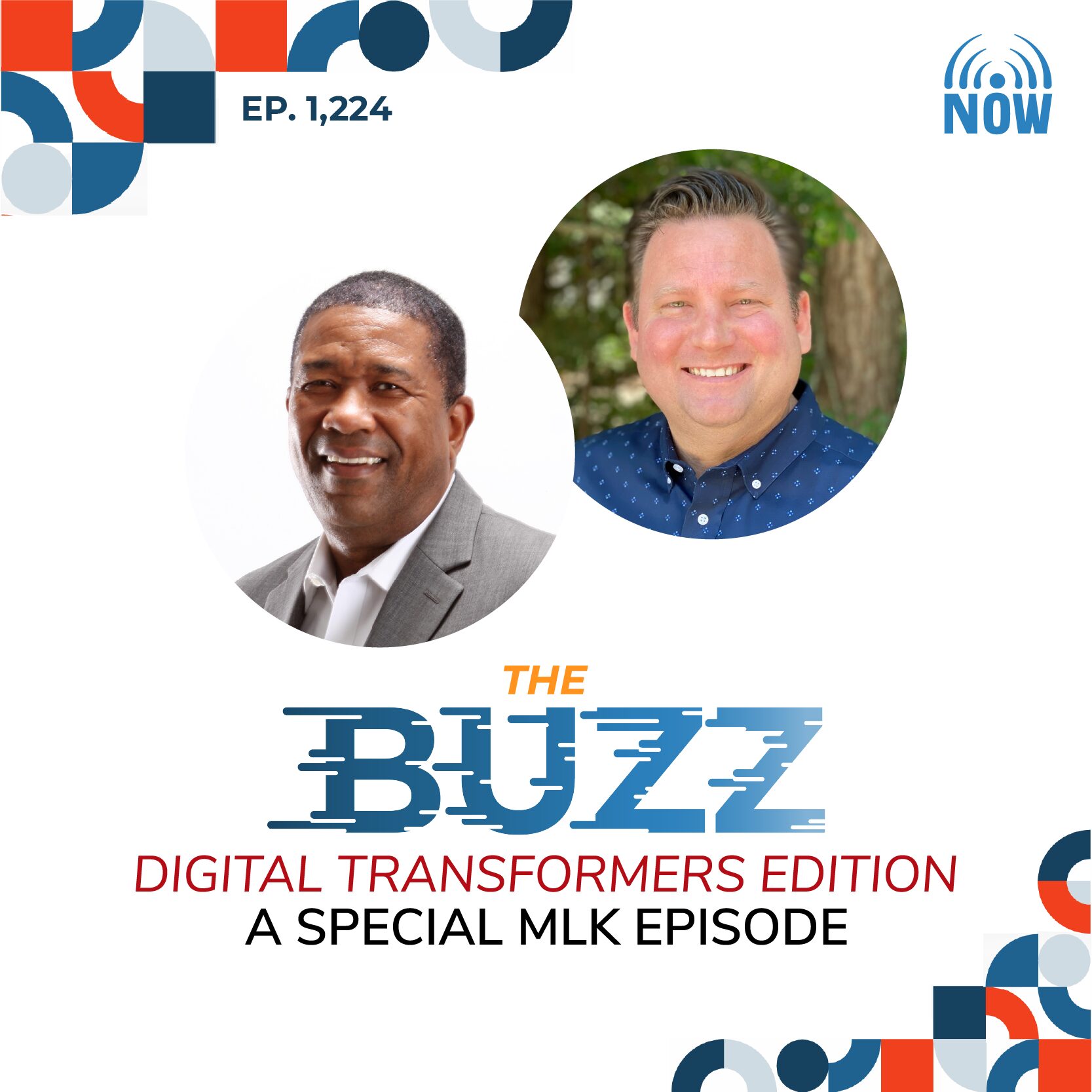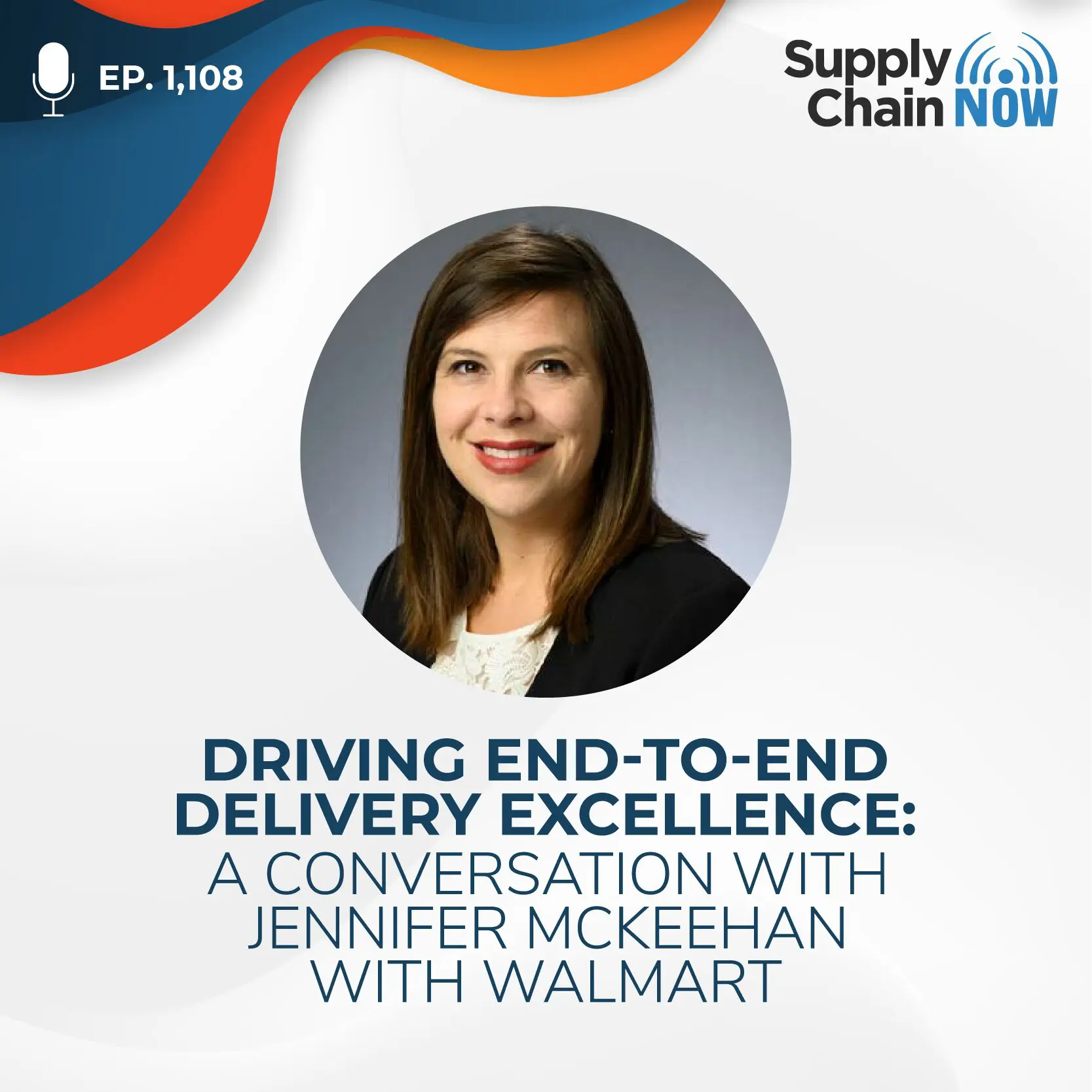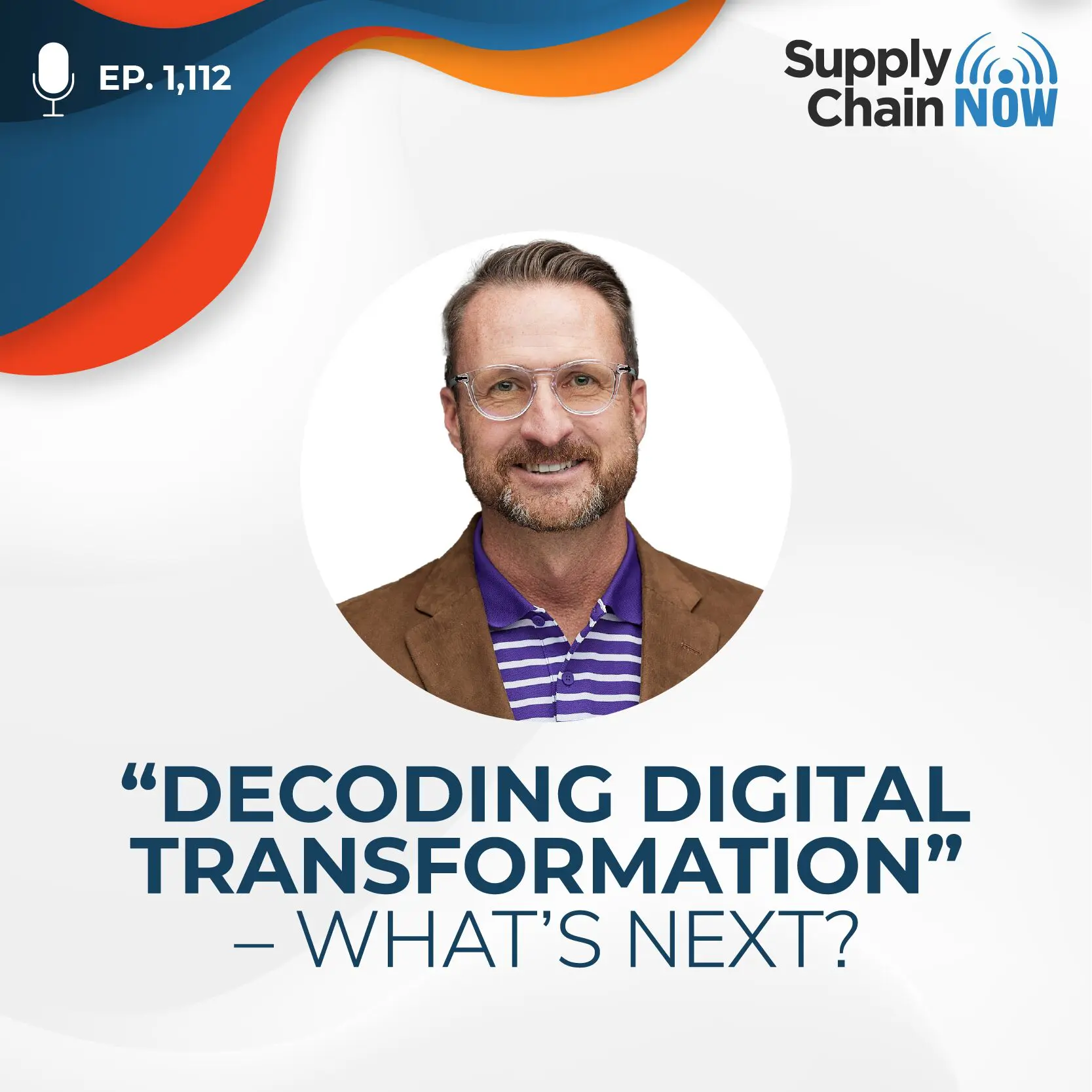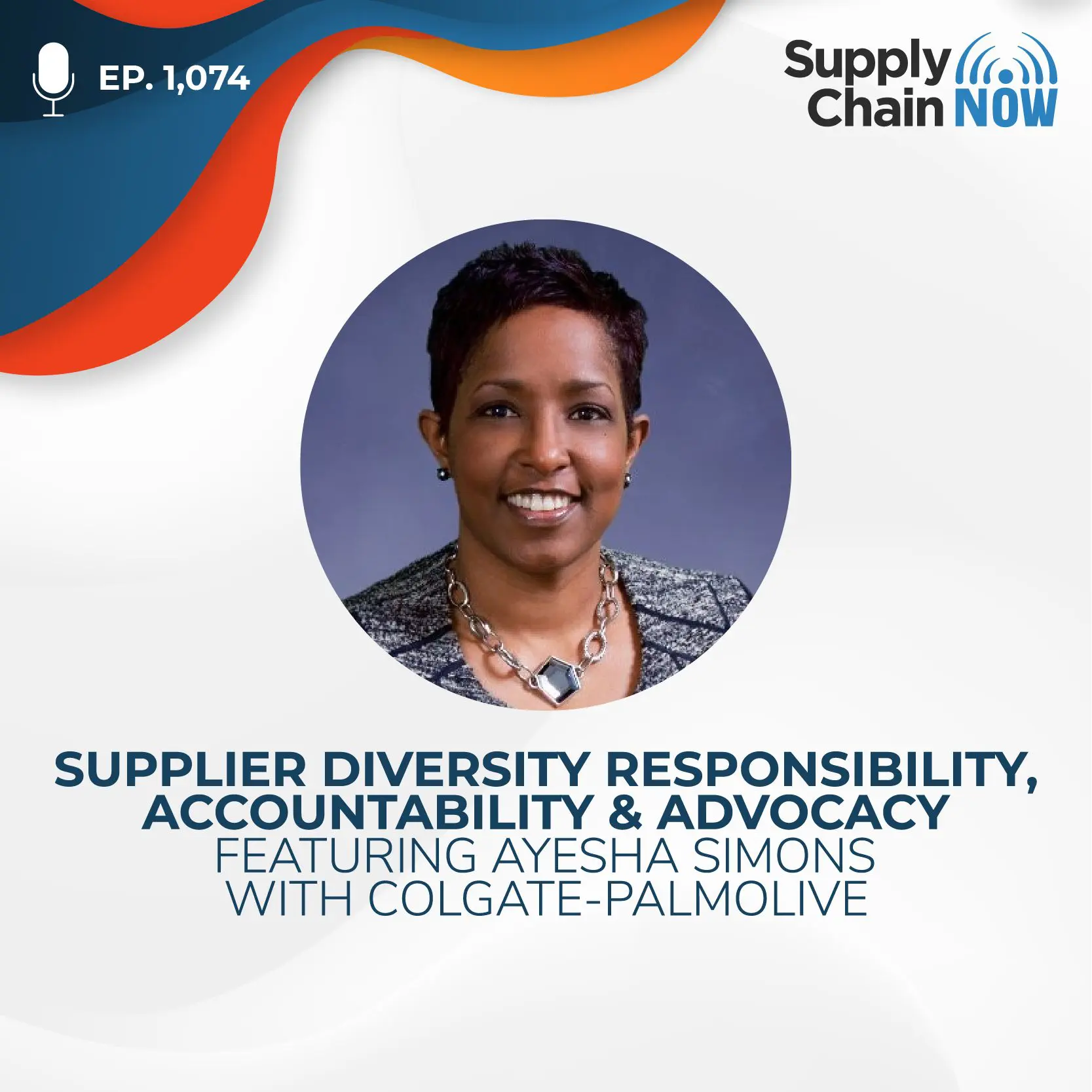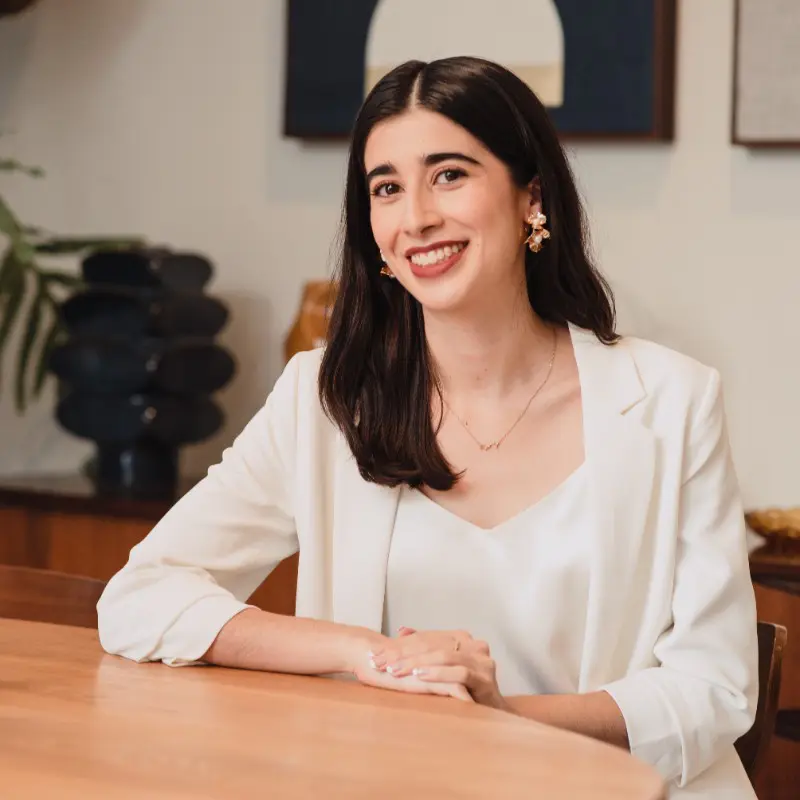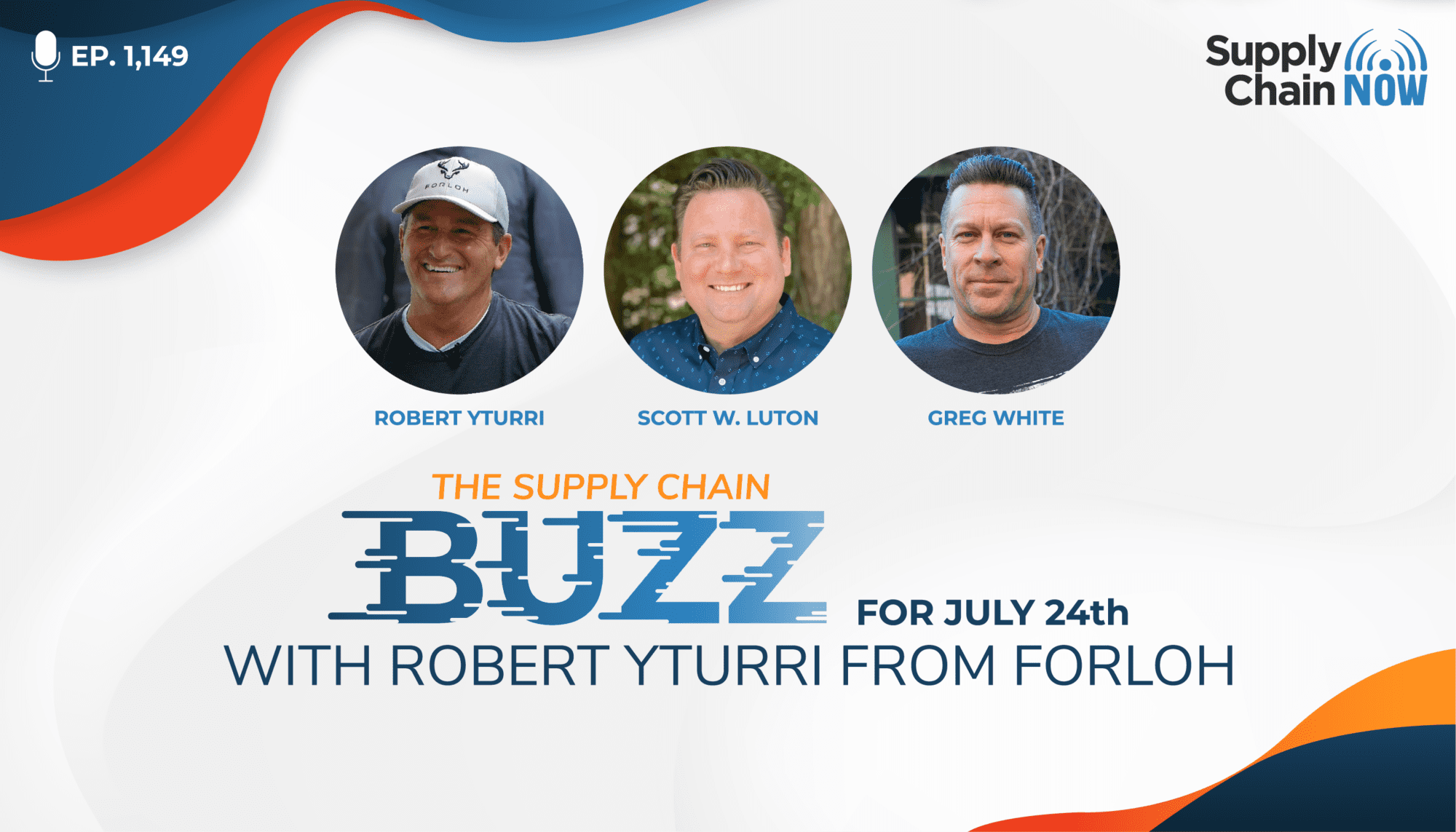
This is a maverick moment, where being an agent of change is more celebrated than trying to copy what you do overseas. That recipe does not work.
- Robert Yturri, Chief Product Officer at FORLOH
Episode Summary
The Supply Chain Buzz is Supply Chain Now’s regular Monday livestream, held at 12n ET each week. This show focuses on some of the leading stories from global supply chain and global business, always with special guests – the most important of which is the live audience!
This week’s edition of The Buzz featured Robert Yturri, Chief Product Officer at FORLOH, along with hosts Scott Luton and Greg White. FORLOH makes high-end American-made outdoor gear, so they know a thing or two about sourcing and manufacturing in the U.S., and, working to ensure quality, and going for the overall win.
In this livestream, created in collaboration with a live Supply Chain Now audience, Scott and Greg discussed:
• How Teamsters General President Sean O’Brien turned up the heat on UPS leadership to keep labor contract negotiations moving forward in their favor
• Tight sugar supplies that are raising costs and putting the squeeze on U.S. candy manufacturers
• And then Robert joined the team onscreen to talk about three things that supply chain professionals need to know when it comes to reshoring
Episode Transcript
Intro/Outro (00:00:03):
Welcome to Supply Chain. Now the voice of global supply chain supply chain now focuses on the best in the business for our worldwide audience, the people, the technologies, the best practices, and today’s critical issues, the challenges and opportunities. Stay tuned to hear from those Making Global Business happen right here on supply chain now.
Scott Luton (00:00:32):
Hey. Hey. Good morning, good afternoon, good evening. We’re every, you are Scott Luton and Greg White with you here on Supply Chain. Now welcome to today’s live stream, Gregory, how are we doing today?
Greg White (00:00:42):
We are doing quite well. How are we doing? We being you
Scott Luton (00:00:45):
Outstanding. Had a great weekend. You got one of my favorite team shirts on the Atlanta Braves number one in the NL East by 11 and a half games. Spent time with family over the weekend. Had a big family reunion on Saturday. Yeah, it was, it was, uh, a record breaking. How did
Greg White (00:01:01):
That go?
Scott Luton (00:01:02):
Um, only, only seven fights. Nah, of course. I’m kidding. Because mom is tuned in, so I better <laugh> give it to you. Right? It was wonderful. Yeah. It was a wonderful experience. Well done. Lots of love and great fellowship. How was your weekend?
Greg White (00:01:16):
Uh, it was quite good. We, uh, watched a lot of movies. It’s hot here. Okay.
Scott Luton (00:01:22):
<laugh>. Yes. Tell me about it. Hot here. Tell me <laugh>. Well, it’s also hot here, here at the supply chain Buzz. Right? Live should it comes at, uh, all of our global fam every Monday at 12 noon eastern time. As always, we’re gonna be discussing a variety of news developments across global business. And Greg, as you know, we’ve got a big guest here today and Robert Uri with Forough, who’s gonna be sharing key insights that business leaders and supply chain leaders gotta know about Reshoring. Right, Greg?
Greg White (00:01:53):
Yeah. Can we tell ’em what Furlough furlough is? Please? Can we tell? Can we tell? Can we tell
Scott Luton (00:01:57):
You? Go right ahead.
Greg White (00:01:58):
Yeah. So it’s, uh, mostly camo, but it’s a clothing brand for outdoor wear. Snow camo upland, or upland camo is what I would call it. And deep forest camo. And even, uh, he calls it clear. Did he call it clear sea? Clear sea camo. So if you fall in the ocean, nobody can see you. <laugh>.
Scott Luton (00:02:20):
I love it. It’s for fishing. Even the fish.
Greg White (00:02:22):
It’s for fishing. So the fish can’t see you. <laugh>.
Scott Luton (00:02:24):
Uh, what a great idea. Um, all right, so folks, Nolan, do I want to hear from Greg and I want to hear from Robert as we will. I wanna hear from all of y’all, right? And give us your take on these stories we’re gonna be talking about. And if you’re listening to the podcast replay, which we drop usually on Fridays after the Monday Live Buzz, you ought to consider joining us live on LinkedIn or YouTube, or some other social media channel of your choosing. We’d love to hear from you, right, Greg?
Greg White (00:02:51):
Absolutely. You know, I think we visit, we asked the people live right? To listen. You know, ’cause they might have to actually work for a living or go back to work earlier or whatever. But I, yeah, that’s a great idea. <laugh>, if you’re, you’re listening recorded, tune in for this live. It’s a lot more fun.
Scott Luton (00:03:09):
We’re doing our best to establish, uh, um, equity in the universe, right? Balance in the universe. So, uh, <laugh>. Alright folks. Speaking of let’s say hello to a few folks. Uh, we have Khan tuned in from India via LinkedIn. Great to see you as always. Great to see you again. She’s been with us before. Abir, uh, Abir. Ahman.
Greg White (00:03:30):
Abdur.
Scott Luton (00:03:31):
Come close. Okay. Yeah.
Greg White (00:03:33):
AB Rockwell probably,
Scott Luton (00:03:34):
Well, if I got that wrong, let know. Pretty. But we’re so glad to have you here tuned in from Somalia via LinkedIn. Uh, Emmanuel tuned in from Ghana via LinkedIn. Great to see you here today. Hey, I told you mom’s with us, Leah Luton, high supply chain fam. She says from Hi Aiken. Uh, helmet is back with us from the South of France. Great to see you, Greg. Greg White, Greg Suiter is back with us from Wisconsin.
Greg White (00:03:57):
Yeah,
Scott Luton (00:03:58):
It was a great weekend when the Blue Angels do two formations right over your house. How about that? How cool is that?
Greg White (00:04:04):
Wow. Yeah. I want, you gotta wonder where he lives, if he’s right. Gotta be close to an airport. Of course, at Mach one, you don’t have to be that close to the airport.
Scott Luton (00:04:13):
<laugh>, I bet it’s close to Milwaukee. ’cause watching the Braves and the Brewers this weekend, they had, uh, video of the Blue Angels. So I bet it’s close to Milwaukee. Greg, uh, Angela tuned in from North Carolina. Great to see you back with us via LinkedIn. And finally, uh, Rita from Finland, uh, Finland, uh, via LinkedIn. Great to see you here today. I say that right, Greg Reta, maybe Reta,
Greg White (00:04:35):
Finland.
Scott Luton (00:04:36):
<laugh>, perhaps. Okay, probably. Well, great to see everybody. Alright, big show tuned in here today, Greg.
Greg White (00:04:41):
And finish though. It’s re Rita. Rita
Scott Luton (00:04:44):
<laugh>. I gotta work on my breathing. Start
Greg White (00:04:46):
Every sentence with a,
Scott Luton (00:04:48):
Gotta work on my breathing, uh, apparatus. My pronunciation. But hey, let’s,
Greg White (00:04:53):
Very Scandinavian thing. <laugh>.
Scott Luton (00:04:55):
Let’s offer up some resources to folks. You know, we try to, you know, as folks are trying to navigate their path forward across global supply chain, we got your back. Mm-hmm. We try to offer up the best and the brightest from across, uh, global industry. Uh, so you may have caught, or with that said, over the weekend now, great. We had a little fun with this edition. Mm-hmm. <affirmative>, uh, with the open playing out on Sunday. And then of course the, um, uh, women’s, uh, world Cup, right. Women’s World Cup and so, and soccer or football. It’s continues, you know, it’s got a few more weeks to come. We compared and contrasted what winning successful supply chain strategies and elements of that, and how they meshed with football and golf. And Greg, I think we came pretty close. We got some good feedback and, uh, from across our family. Did you happen to give that a read, Greg?
Greg White (00:05:46):
Uh, I did. I actually read it while I was watching the open and it’s good. Interesting. I was thinking, of course, you know, I’m an American. Even, even with the picture, I was still thinking football. Right? Me in football, me in football, <laugh>. Uh, but also quick shout out to, uh, Bri, uh, Brian Harmon, who, who won the US Open Go Dogs. That’s right. Um, from a little bitty guys like five, six, something like that from Sea Island, Georgia. Well, yeah. From Sea Island, Georgia. Well,
Scott Luton (00:06:19):
Couldn’t he have made it just a bit more intriguing? I mean, I kept waiting for it to get skinny to like know a stroke or two, but it was dominant.
Greg White (00:06:26):
He, he was awesome. I mean, every time he faltered, he came right back, right? Mm-hmm. You know, you know, um, from watching or playing enough golf, when you see somebody lose two strokes in three holes or four holes, whatever it was with him, you’re like, okay, I got him now. And you could see, you could see the rest of the players start to surge, but he came right back with two birdies in, in three holes, and you could see the rest of the field get deflated from that point. They’re like, yeah, we’re running outta holes. We can’t catch this cat
Scott Luton (00:07:00):
Resilience. Missed that one. You
Greg White (00:07:02):
Know, he’s, he only missed one putt inside 10 feet the entire tournament. He was 54 for 55. Wow. On 10 foot and inside putts,
Scott Luton (00:07:15):
Man.
Greg White (00:07:15):
And that last putt was a knee knocker. That six eight foot putt was <laugh>. Uh, yeah, that was, that was tough. But he’s a hell of a putter, isn’t he? Mm,
Scott Luton (00:07:25):
Mm Uh, he’s a, he’s a grand champion now, for sure. Mm.
Greg White (00:07:28):
Champion golfer of the year.
Scott Luton (00:07:30):
That’s right. With that said, join the, almost, let’s see, 22,310 subscribers, a k a. The cool kids join us, uh, for this weekly perspective that tries to inform and entertain and of course, offer up resources like Greg. Mm-hmm. This next event we’ve got coming up tomorrow, we have a live stream with our dear friend Du, who’s back with us after a couple years. He’s gonna be talking about four ways to reduce complexity in your supply chain. Greg, there can’t be, there’s hardly a more timelier subject, uh, these days, huh? Uh,
Greg White (00:08:01):
Yes. And good luck with that. Actually. We’re gonna talk a little bit about that today. Aren’t we reducing we’re complexity in your supply chain? Well, at least we hope it reduces complexity in your supply chain with our guest.
Scott Luton (00:08:14):
That’s right. So stay tuned as Robert Uri will join us about 1230. Uh, and, and join us tomorrow again for this live stream. Bring your perspective, pack a sandwich as Patou joins us tomorrow at 12 noon Eastern time. It’s Tuesday, uh, Tuesday, July 25th. Um, and then coming up on Wednesday the 26th, we’re talking about one of our favorite topics. Better Demand Planning with supply chain Visibility with our friends at Optimist. Greg, that should be a good conversation too, right?
Greg White (00:08:44):
Well, you know, it’s one of my favorite topics. It’s boring. Yes. But it’s, I mean, it, it, a lot of people think it’s really boring, but it is so critical to the success of your supply chain.
Scott Luton (00:08:54):
I, I love to see you in action in those. So folks join us for that live webinar. Uh, registration is required, and we’ll drop link in the chat. But join us for each of these live sessions. We wanna hear from you. Speaking of Greg comes back and answers, it was the Lakefront downtown. Uh, blue Angels flew out of Mitchell International. Oh,
Greg White (00:09:12):
Okay. Uh,
Scott Luton (00:09:14):
The hundred, uh, the hundred 28th Refueling Group is stationed there. Good, good stuff there, Greg. Yeah.
Greg White (00:09:20):
Yeah.
Scott Luton (00:09:21):
All right. So, Greg White, we’re gonna shift from resources, uh, to, to our, uh, our global fam here to our first news story here. Now, this is this headline, <laugh>. This is an interesting one. We’ve organized strategized. Now it’s time to Pulverize says Teamster’s, union President ahead of looming U P Ss right now, Greg. Mm-hmm. Pulverize, I’m thinking of like a really rough piece of meat that <laugh> that you, you pulverize in a kitchen. I don’t really, I never really thought about that from a negotiation standpoint, but let me share a couple of, uh, uh, factoids here, and I’m gonna get your take on this. So, reportedly about 95% of the labor contract as labor contract negotiations go on, continue between u p s and the Teamsters. Well, 95% of that contract has been successfully negotiated as talks pick back up this week prior to the July 31st deadline.
Scott Luton (00:10:12):
In fact, they’re gonna start in, they’re gonna resume tomorrow, Tuesday, the 25th. The main snag still appears to be compensation for part-time workers, as I shared this. Uh, incredible, um, uh, well, very quotable headline there. That was Sean O’Brien, Teamster’s President, uh, sharing over the weekend. Now, get this, Greg mm-hmm. <affirmative>, Dr. Allen Amling, who’s been on our show, uh, a handful of times. Always enjoy his perspective. He spent about 30 years at U P S, including in the upper echelons of leadership. Now, he warned last week on LinkedIn that there just isn’t enough time for the Teamsters to be able to ratify a contract in time, even if they reach agreement this week, unless Sean O’Brien allowed an extension to accommodate the negotiation and then a ratification. And then let me add to this, Greg, what he shared earlier today. Well, and I’m not gonna be able to pull it up, but anyway, what he shared earlier today I thought was interesting. Uh, Alan Amling that at what they set the resume talks Tuesday, they already know one of two things. Either the contract offer that both sides are gonna be talking about is, is good to go. And it’s so good. It’s gonna be agreed very quickly, or the strike is gonna happen. And both sides know it. Um, but Greg, I can’t wait to get your thoughts of what’s going on with these, uh, negotiations.
Greg White (00:11:30):
Well, I mean, you should expect world words like pulverize out of the Teamsters, and especially Sean O’Brien ’cause he’s a punk. Whoa. Um, and <laugh>, I mean, thi this is a very unprofessional organization. It always has been. Remember Jimmy Hoffa got disappeared not so long ago, well, 40, 50 years ago, whatever it was, um, running this. So they’ve always been very abrasive and gruff and unprofessional. And that’s, they feel like they have to be that way because I guess because they’re dealing with truck drivers and, um, you know, they want to, whatever, they have this sort of caricature idea of the way that drivers are, I think, and they, you know, they’re trying to be strong for them. But, um, but, you know, this is, uh, let’s, let’s face it, the teamsters have already backed off. They were, you know, they have yellow freight on the, on the verge of bankruptcy and that, and that would sacrifice about 20 or 30,000 driver jobs if, if they push them over the edge.
Greg White (00:12:33):
Mm-hmm. So the, uh, some of the other knowledgeable wisdom, like Dr. Amling are saying that they are pushing yellow so far to use it as leverage for the u p s to say we’re not afraid of the big bad wolf. Right. Um, but the truth is, all these jobs are gonna be automated in 10 years anyway. So it, I mean, all, the only thing they could do at this point is accelerate that. And when immature people are faced with stress, they do crazy things. And that’s the way, that’s Sean and Brian. Mm. So, so, um, I I, I think regardless of that, they’ll, my guess is that the teamsters will do with u p s as they did with yellow, which is give them some, um, grace, whatever, gr a grace period or whatever to get things settled. Because they also, they don’t want to be responsible for putting, I don’t even know how many drivers it affects at U P S. Do you know, Scott?
Scott Luton (00:13:33):
340,000
Greg White (00:13:34):
Okay.
Scott Luton (00:13:35):
Teamster records.
Greg White (00:13:35):
Now they’re already gonna put 20 or 30,000 on the streets when they bankrupt yellow freight. Mm-hmm. Um, and, you know, they don’t wanna, that would be a very, very bad look. Um, not only to their, um, to the public, but also to their members. In fact, lawyers are contacting yellow freight drivers and telling them of their rights to rescind their union citizenship. Otherwise, they have to strike if teamster, if the teamsters call a stripe. Yep. And they will most certainly then collapse the company yellow, collapse that company and lose their jobs. So, um, it’s easy when you’re Sean O’Brien and you’re playing with somebody else’s jobs. Mm-hmm. And you’ve got all that, um, union dues money to pay yourself in the meantime, <laugh>. So, uh, you know, I mean, laugh
Scott Luton (00:14:26):
To keep crying,
Greg White (00:14:27):
I dunno, I dunno what the major issues are, frankly. Mm. I just know that this is being handled very poorly by the teamsters. Yep.
Scott Luton (00:14:33):
Well, supposedly it’s down to what part-timers are paid, and there’s a big gap, as I recall, five to $6 gap between what the union is demanding and u p s is willing to pay. Last I knew. And then secondly, to one of the last things you shared there, I believe that’s most likely, I, I believe that even though Sean, or like I know him, even the teamsters are representing that, uh, you know, if the deal’s not done on 1201 of August 1st, 1201 am that they go on strike, I, I believe my crystal ball, which has been broke for many years, is they’re gonna come to an agreement, and then at the last minute, he’s gonna make that extension happen so a deal can get ratified. Because, you know, and, and the government hasn’t, and the White House hasn’t intervened yet, but this is a, you know, even if it’s a brief strike, this is gonna be painful, even if it’s just a couple of days. So, um, but good stuff. We’re gonna keep our finger on the pulse. And Dr. Allen Amling, we’re gonna have to have you back. Yeah. Uh, to talk about what you,
Greg White (00:15:29):
You should have somebody Yeah. Who knows the inner workings of this That’s right. Like that, that would be a really interesting discussion. But Scott, you do know Sean O’Brien. Every bully you ever encountered with false bravado is Sean O’Brien. Mm. Uh, he’s just one with a microphone. Ah,
Scott Luton (00:15:43):
Man. Okay, we’re gonna, Greg, as always, I appreciate you Keep it Frank. You ke you, you <laugh>, you don’t pull any punches. And that’s what, that’s what folks expect from us. So we’re gonna keep our finger on the pulse and we’ll be back with updates on that story. Let’s move to a little, I would say an easier, uh, topic, but it’s, you know, they’re messing around with our candy. So this may <laugh>, this may be a tougher topic. So get this, Greg. Mm. In our second story. Oh, sugar. Sugar. That’s, that’s all the, all I know of that song. The Archies right? The Archies, yes. That’s right. So, as reported here by the Wall Street Journal, US Candy manufacturers are feeling pain with high pricing, low supplies, and policy restrictions when it comes to sugar. So, Greg, did you know I didn’t know this? The United States agricultural policy requires that domestic companies buy at least 85% of their sugar purchases from domestic processors, which allows, of course, with my simple Aiken. South Carolina Math, uh, allows for about 15% from foreign suppliers at a low tariff rate of three point, uh, just under $4 per kilogram. But for companies that, uh, source more than that 15% from foreign, uh, providers, that tariff jumps from just under $4 per kilogram to, hang on a sec, let me, let me back up here. 3.66 cents per kilogram is the low tariff. If you stick it at 15% or below, right. If you go over that 15%, it becomes 35 cents per kilogram. 10
Greg White (00:17:20):
Exit.
Scott Luton (00:17:21):
10 exit, babe. That’s right, man. Monday, Monday at math is a bad combination for me, I guess, here. So, but small problem as US sugar is incredibly expensive. For example, US raw cane sugar prices climbed in May, 2023 to their highest levels. Greg, since January, 2011, highest levels in 12 years. And overall, US sugar supplies are really tight and expected to decline over 2% in the next crop year. And by the way, Jerry says he hates that song <laugh>. Jerry, I, I don’t love the song. I used it, uh, as just a, a little segue there, so I’m kind of with you. It’s not one of my favorites either. So what does all this, all this mean? Couple examples, and Greg, I’m gonna get your take here. So, span Spangler Candy Company, which we’ve talked about here before, who, uh, based in Ohio normally produces 250 million candy canes for Christmas each year. Well, last year they were only able to produce 200 million man, 50 million gap there. Atkinson Candy based in Texas went through a dozen suppliers before they found their sugar supply that they needed. President Eric Atkinson of Atkinson Candy was quoted as saying we were down to the point where we were about to run out of sugar, of course. And we would’ve been going to Costco. So, uh, of course this part, man,
Greg White (00:18:38):
A really good price at Costco. You just never
Scott Luton (00:18:40):
Know. That’s right. You never know about good old Costco. We’re big fans. So, Greg, tell us your thoughts here on the sugar industry
Greg White (00:18:48):
Immediately on this short shortage. I was reflecting on last year at this time when we were talking about the lack of, uh, cacao or chocolate, right? For Yep. Halloween and what a disaster it was gonna be. Did anyone notice other than prices? I don’t think so. But, but I think what happened was people bought a lot less candy. It seems like I read that somewhere a after Thanksgiving or after, uh, Halloween. So, um, I think it will be similar. We’ll see prices go up, candy goes down, it’s right, it’s economics. Um, the sales of candy goes down and Yep. Um, you’ll see a lot, you know, a lot fewer people given fewer chunks of candy at, um, at Halloween. And have, being a kid who grew up in a trailer park, you’ll see a lot fewer, uh, trailer park Christmas trees with their typical ornaments, which are, which are candy canes. At least that’s the way it was when I was a kid, because they’re really cheap ornaments. And also edible, well, arguably edible. Anyway, so I, you know, I think demand will go down. It’s really interesting. Do you ever wonder, I mean, I’m, you know, if I was thinking it, I would say it. Do you ever wonder, though, if they don’t do this every year to kind of pump prices or justify prices going up?
Scott Luton (00:20:13):
Mm.
Greg White (00:20:14):
Because it, it’s seems like a possibility.
Scott Luton (00:20:19):
Yes. Look over here while we do this over here. Yeah.
Greg White (00:20:23):
Or here’s why, why we’re doing this over here. Remember that article we put out three months ago? That’s right. <laugh>. Right. Um,
Scott Luton (00:20:29):
Look here. Natalie says, Hey, this is unfortunate, but not a horrible thing for health reasons. I,
Greg White (00:20:34):
You know what, uh, it’s, it is really interesting. Uh, even America is trying to get healthier and, and I think it is this kind of thing that could push people that direction. Mm-hmm. <affirmative>. Right? Good point. Point. Even smokers. Some, a few quit smoking when cigarettes, cigarette prices exploded.
Scott Luton (00:20:54):
It sure did. Puch says, guess sugarcane farmers have really strong lobbyists. And that’s a great comment because as the article of the Wall Street Journal, uh, went on to, to talk about, there are some forces running among to try to change these agricultural policies that the government’s put in place. So, we’ll see. Greg, your last comment there,
Greg White (00:21:14):
Um, I, I guess I lo you know, love me some candy, but the last thing that I’m worried about is candy and whether there’s gonna be enough of it and sugar, I’ll just eat less sugar. Yes. Which is probably better to, I can’t remember who said that. <laugh> to her point.
Scott Luton (00:21:32):
Yes. Natalie, is
Greg White (00:21:33):
It a very good thing? Yes. Natalie? Oh yeah.
Scott Luton (00:21:36):
Well, Greg, my kids are demanding a press conference this afternoon. Are they? Yeah. For answers to their questions. ’cause they’re really concerned about the supply. But I’m gonna take, I’m gonna, we’re gonna, uh, we’re gonna tamp down those concerns and make sure they understand that, uh, it’s not always what you read about. Um, so we’ll see. Uh, alright. So Greg, we have talked u p s and that ongoing, uh, negotiation. We’ve talked candy. And hey, as long as I keep getting my access to my turtles, especially dark chocolate turtles, man, those are just about the best you can find. I wanna wanna pose one more thing to you here. This is kind of a fun topic. Well, hang on a sec. Hang on a sec. Before I do, we got one more resource to, to put in front of people. So, uh, let’s see. Thursday, this is a big week for live programming, Thurs, uh, Greg. So Thursday we’re gonna feature a couple of our dear friends from ServiceNow and we’re gonna dive into a cool topic on resilience. I think that came up in the first few minutes of the show. Unbreakable unlocking resilience in the face of disruptions. And that’s a big face, Greg. ’cause they’re everywhere that you look. Uh, so join us.
Greg White (00:22:42):
They and ServiceNow, <laugh>, I mean, big mm, big company. I mean, biggest company a lot of people have never heard of, but, um, definitely worth, worth listening because they are making a market. That’s right.
Scott Luton (00:22:54):
July 27th, 1:00 PM Eastern Time. Come join us and learn more about what Greg just mentioned there. Good, good things they’re doing at ServiceNow. And of course, finding more resilience despite how challenging this VUCA environment is. Uh, posh says if sugar prices and supply is so problematic, Coke and Pepsi should be crying out loudly too. That’s a great point. Excellent point. Um, alright, so Greg, I have one more topic before we bring on our guests here today. I wanna put this in front of you because I can’t wait, because I think you and Mark Cuban have at least one thing in common. Maybe two, but at least one. So we
Greg White (00:23:28):
Got lucky when we sold our companies and made a lot of money.
Scott Luton (00:23:30):
Maybe that’s one, probably. But hey, before we bring on our guests, I wanna hit this popular interview with Mark Cuban, uh, over at, uh, on C N B C. So Cuban hates meetings and says people over meet and they over call. In fact, as the article points out, research from Microsoft says that people are in three times as many team meetings each week today, as opposed to February, 2020. Now, in particular, well, I’m gonna bite my tongue there. Teams, teams is challenging. Teams is challenging for me. But Greg, going back to the meetings, I
Greg White (00:24:03):
Don’t think they mean, I don’t think they mean teams meetings. I think they mean team.
Scott Luton (00:24:07):
I think both. Uh, they definitely, uh, well,
Greg White (00:24:10):
Does anyone still use teams? <laugh>. Sorry, Microsoft people.
Scott Luton (00:24:15):
Um, but let’s get, so speaking of meetings though, the meetings that are the bane of Mark Cuban’s existence. Greg, your thoughts? Do people, do we all over meet
Greg White (00:24:26):
100%? Yeah. And meetings are routinely unproductive because people just say, let’s have a meeting. So in my companies, I wouldn’t attend any meeting that didn’t have a goal and or objectives, at least a goal. I don’t need an agenda, I just need a goal. And then we need to make sure that the conversation stays on point toward the goal of having that meeting. If not, I did not attend. So, and I think it was also, was it, was it Mark Cuban or was it Alon Musk? I think it was Elon Musk who said, don’t go to meetings that don’t have a purpose. He told his people at all of his, many companies don’t go to meetings that don’t have a goal.
Scott Luton (00:25:10):
Interesting. I also saw where Mark Cuban earlier in his career, uh, the only way that he would attend meetings is that they remove all the chairs out of the room. So everyone had to stand while they met to keep ’em short and to the point. Mm-hmm. <affirmative>, uh, Jerry says, meetings are fine. Always have an objective, have an agenda, and keep to it and end on time. Or
Greg White (00:25:31):
Early
Scott Luton (00:25:32):
<laugh>. Yeah, or early <laugh>. That’s okay to finish early. Um, but Greg, that’s such a great point. And, and, and especially in today’s age with, um, you know, beyond emails and, and phone calls of course and beyond even texts, which seems like more and more it’s getting done on text. But stuff like Slack, you know, slack eliminate, we we’re able for our business, we’re able to get and resolve so much and create so much on Slack that really alleviates a lot of the pop-up meetings that can really fill your calendar if you’re not really disciplined to protect it. So I’ll give you the last word, Greg. And then, then we’ve got a big, big, uh, guest that we’re gonna bring on your last word, Greg, on meetings.
Greg White (00:26:13):
Yeah. So my fav, this is my favorite re uh, recollection of any meeting. So a whole bunch of people at a, a company called M B M. Yeah. Meadowbrook meets now M B M Food Service, or now I think it’s part of McLean. Um, they’re having a meeting, Jerry Richardson, who owns them and at the time also owned the Carolina Panthers, um, sticks his head in the meeting and goes, Hey, what’s this meeting about? And they go, oh, we’re considering a new logo. He said, consider a way as long as it’s exactly the same, it is as it is now. And it’s black and white <laugh> end of meeting.
Scott Luton (00:26:46):
And people got their time back. They got probably two hours back. I love that. Uh, Greg, uh, a couple quick cut. There
Greg White (00:26:51):
Must have been 30 people in that meeting. <laugh>.
Scott Luton (00:26:55):
Oh my gosh. It was hilarious. Elizabeth said, Liz says, uh, was it Shopify who just forced cancellation of meetings and attributed a dollar value to each one? Well, that’s interesting. I have to look that up, Liz. I’m not sure. Uh, Natalie says, I’ve discovered I have the benefit of a 10 to 15 minute read of the meeting notes rather than a 60 minute conversation. Most e most meetings truly can be emails. Well said. Natalie’s on fire today. Natalie is on fire
Greg White (00:27:21):
Or text or Slack, I think, I can’t believe I’m saying this. It’s not still not worth what it’s worth, what the valuation is, but I think Slack is a good meeting. Okay. I do too. Avoider.
Scott Luton (00:27:34):
Right. I’m with you.
Greg White (00:27:35):
Asynchronous discussion. So you can accomplish those things rather than break it into everybody’s day. Yeah, we do it all the time.
Scott Luton (00:27:42):
Oh. And, um, we covered here a, a year or two ago we shared this story, and I’m not gonna recollect all of it, but, you know, slack became a business after a failed, uh, video game, um, project. So the video game project that was being driven and, and and being led by a Slack like program, the video game failed. But then they got the big idea we should sell this collaboration tool. And, and I can’t remember the the acronym it stands for, but that’s what became Slack billions of dollars later. And, and Greg, you know, we’re not, Slack’s not a sponsor here, but I I have found it very effective at, um, eliminating the need for a lot of meetings. Uh, and I wasn’t, initially, I wasn’t a big, um, uh, I didn’t have a lot of buy-in. Then I saw how the team, our team was using it to do just that and create good stuff, big stuff. And it’s very convenient. I was like, man, okay. Mm-hmm. <affirmative>. I’ll see the light now. Um, alright. So, Greg White. Uh, are you ready? I’m really looking forward to this guest appearance we’ve got here. Are you ready to, to bring in the one and only Robert Attu? You ready to go? Greg? You strapped in.
Greg White (00:28:53):
I am ready. Let’s see if Robert’s ready.
Scott Luton (00:28:55):
You hanging onto your socks? Uh, buckled up.
Greg White (00:28:58):
I’m not wearing socks, but <laugh> thanks for asking. Okay. I’m wearing everything else just to be clear.
Scott Luton (00:29:03):
That’s right. That’s right. Well, hey, let’s talk about the hot, hot topic of reshoring with a guest that has <laugh> has been there and done that plenty of times in his career. I wanna welcome in Robert Uri, chief Product Officer with Forough. Robert, how are you doing?
Robert Yturri (00:29:21):
I was so engrossed in the sugar talk and the u p s talk that I was making comments out loud, so I had to mute.
Greg White (00:29:28):
You were yelling at the monitor, weren’t you? Yeah. Sorry about that,
Robert Yturri (00:29:31):
Robert. I am, I myself hold up the sugar industry with the amount of Twizzler I eat.
Scott Luton (00:29:36):
So
Greg White (00:29:37):
Twizzlers. Okay.
Scott Luton (00:29:38):
Wow. I heard that in a while. Twizzlers used to have like this, this ever present marketing campaign. I felt like I was getting a Twizzler commercial on the hour, but I hadn’t seen one in a while. Robert.
Robert Yturri (00:29:47):
Just hope they keep making ’em. I, that’s all I care about.
Scott Luton (00:29:50):
Okay. Well, well, you know what, uh, a lot of people cope with candy. Some people cope with tequila. ’cause today, Robert and Greg today is National Tequila Day here in the States. So I wanna, I wanna get a quick pulse check and folks, to all of y’all that enjoy an adult beverage or two, let us know your favorite tequila drink or even tequila brand. And Robert, that’s what I pose to you on here on National Tequila Day. What is your favorite either tequila brand or your favorite drink that, that utilizes tequila?
Robert Yturri (00:30:22):
Well, first I just put that in my calendar so that every year I know <laugh>
Greg White (00:30:27):
<laugh>, you’ll never forget it now.
Robert Yturri (00:30:28):
And I went into my freezer and actually got my favorite. I’ll have to hold it in front of me. Oh,
Scott Luton (00:30:33):
Nice. Yes,
Robert Yturri (00:30:34):
It’s called El cio. Okay. You’ve never heard of the brand. It’s a mezcal smokey. Um, and what I like to do is make a pal, it’s, I call it a Palomino, but it’s a Paloma with mezcal. And I’ve coined the name Palomino. You guys can take it if you want. Okay.
Scott Luton (00:30:52):
We’re gonna steal it. Yeah, we’re gonna steal that. Gr you heard
Robert Yturri (00:30:54):
You heard it here first. Poland
Greg White (00:30:55):
Considered
Robert Yturri (00:30:56):
Here first, but that’s my favorite. Okay. Um, I’m not a day drinker, but, um, cheers to everybody out there tonight.
Scott Luton (00:31:02):
That’s right. Cheers to everybody. It may be celebrating in parades or through other means. National Tequila Day. Thank you for sharing that. Robert, Greg, uh, speaking of adult beverages, Hmm. You’ve got, uh, a, a recent investment you’ve made is a nice complimentary piece in that industry. Share a little bit there.
Greg White (00:31:21):
Yeah. So, uh, it’s a company called Free Spirits and it’s non-alcoholic tequila. Right. If you still want the punch without the, well the punch <laugh> in, in the gut. Um, and, and we actually have a non-alcoholic tequila, uh, flavored after my favorite kind of, um, I wouldn’t say daily drinking. ’cause like Robert, I don’t drink every day. But, uh, when I do, it’s Kloss se Reposado, which is probably the best reposado I’ve
Robert Yturri (00:31:52):
Ever had. Nice. That’s my number two buddy. I have a bottle.
Greg White (00:31:55):
Okay. Yeah. And, and the bottles double as a lamp if you want them to. Just a little bit of work. And you’ve got a lamp <laugh>, so,
Robert Yturri (00:32:01):
Or you could put your ashes in there. <laugh>.
Greg White (00:32:05):
There you go. Oh, I didn’t,
Scott Luton (00:32:06):
Full lifecycle. Full lifecycle. I want
Greg White (00:32:08):
My ashes spread. I want them stored in a tequila bottle.
Robert Yturri (00:32:12):
And you know, the top of that is a bell. Did you know that? Yeah. Okay. Oh,
Greg White (00:32:16):
I know. That’s how you know it’s tequila time <laugh>. So we, so we modeled our non-alcoholic tequila on that one. Uh, and it is caramely and Tasty and it, and it, with non-alcoholic spirits, you use spices to give it the bite. Similar to, um, to, you know, to alcoholic beverages. And while I wouldn’t exactly shoot it, I don’t really shoot tequila anyway ’cause it turns out I’m not 15 <laugh>. Um, but, but it does make a mean margarita or tequila sunrise name it, I I mean it is so close when it’s in a cocktail,
Robert Yturri (00:32:56):
Try the, try the Palomino Greg. Try the
Scott Luton (00:32:59):
Palamino. Okay, we’ll, we’ll we’re gonna try that. I’ll do that maybe, maybe this evening. I might, we might wait till the weekend. It’s a good one. Palomino.
Robert Yturri (00:33:05):
It’s one’s refreshing Scott. Okay. Very refreshing.
Scott Luton (00:33:08):
Alright. And, and, and by the way, uh, we did drop a link to free Spirits in the chat. You can check out what Greg was just sharing. You bet. Oh, thanks guys. Um, alright. So we’re, wait, go ahead, Greg. Sorry,
Greg White (00:33:19):
What, what, what’s yours? Oh,
Scott Luton (00:33:21):
Uh, yeah, come on. Okay. I’m gonna, I’m gonna ruin all the party. Um, I’m not a big tequila fan. I had a really, you don’t
Greg White (00:33:28):
Drink tequila,
Scott Luton (00:33:29):
Do you? Well, I’m not gonna, um, uh, share all the secret. Oh yeah.
Greg White (00:33:32):
Everybody had that experience, but you just don’t drink that tequila anymore. And seriously, they’re, I mean, tequila, tequila, sorry, I won’t go too deep here. But they are so refined like any other beverage Oh, sure. As a good friend of mine once said, you don’t dislike scotch, ah, you dislike bad scotch because that’s all you’ve ever had. Um, okay. So I’m gonna bring you some, I’m gonna bring you some clo
Scott Luton (00:33:58):
Well, so we have enjoyed that together on some big wins. Uh, ’cause I remember you bringing the bottle and the bell, but, uh, you know, hey, as usual, my palate is just not educated and re refined enough yet. So we’re
Greg White (00:34:09):
Gonna keep refining it. That’s right, Robert. Let’s commit to that
Scott Luton (00:34:12):
<laugh>. So Robert, you never know what you’re gonna get here on the supply chain buzz. Uh, but I promise folks, now that we’ve celebrated national tequila day and got some inside baseball on a couple on, on a couple of, uh, brands, y’all gotta try. I wanted to get into, uh, reshoring. But before we do, I think it’s really important context, Robert, you know, I’ve really enjoyed our conversations with you, you know, kind of pre-show we’ll call it, and, and getting a sense of your background. And I think it’s really important folks understand that. So share a little bit about your background, uh, for our audience here, Robert.
Robert Yturri (00:34:43):
Yeah, well, I mean, just to level set, what we’re gonna be talking about is, is the highest end technical performance outerwear and apparel. Sure. Okay. So I know we’re talking about a lot of different industries on this show, but this is, this is these, this is fabric, you know, these are gars, these are membranes, these are waterproof breathables. Um, so that type of manufacturing left the US in the late eighties. Hmm. So bringing that type back here, um, that I’m talking about the highest end is, has been a challenge. But, um, it’s also been a, a finishing for my matic loop, we’ll call it, because I started my career at the North Face in the late eighties. And that was in the offshoring boom for this type of outerwear, apparel, gloves, backpacks, you name it. Right? So for outdoor pursuits, um, action sports, skiing, snowboarding, backpacking, mountaineering, et cetera, those goods left us, um, for obviously lower labor mm-hmm.
Robert Yturri (00:35:44):
Pricing and higher gross margins. So, um, that’s, that’s where I cut my teeth. Right? So I was in my twenties at the north face in the late eighties when this was a directive. Right. And it all made business sense to me, but I didn’t really know the impact until 30 years later. Yeah. When I’m sitting here trying to haul this stuff back. Hmm. Right. And, um, so my experience was with the North Face building, the highest end technical mountaineering product, um, in the US and then moving it, same with black diamond equipment, was there doing somewhat of the same thing, but with climbing gear. So now you have a whole new caveat mm-hmm. <affirmative>, these are cis safety equipment. Right. So, you know, when you offshore safety equipment, you need all of the certifications overseas. So building testing equipment for climbing harnesses and all that overseas is what I did for black Diamond. Man, I just thought that was the norm. This is, this is how business is done. Right. Young kid out of college, <laugh> didn’t really think about it. Right. And so now that I’ve been, um, now that I’ve seen the light, right. Trying to bring <laugh>, trying to bring this back to back to the us, um, it’s, it has been, that’s where all of these gray <laugh>, all this, all these tree roots came from here. Right?
Scott Luton (00:37:07):
Right.
Robert Yturri (00:37:08):
Um, it has been a, both a challenge, but also equally as rewarding. Mm. So, um, you know, building product for 30 years, you know, stuff that people rely on in the harshest of environments, in the craziest of sports you can imagine. Right. Um, they count on this stuff as gear. Right. Uh, now bring it to the us. For me, there’s so many pluses over the minuses, right? Like, you have to look past the, the gross margin gain of, you know, like pennies to the dollar of labor cost, right? You have to look at, wow, I can actually build it, test it in 24 hours. Hmm. You know what I mean? Yeah. And I can build it and build it in mass in two weeks versus a year,
Scott Luton (00:37:51):
You know. So Robert, we’re gonna dive into, in just a second, lemme get Greg to respond to some of the things you shared there. But folks, just a second, you’re gonna benefit from that 30 years of experience, right? And we’re gonna get three things, uh, from Robert, that business leaders, supply chain leaders, you name it, you gotta know about reshoring. But Greg speak to, you know, in that, just a, a couple minutes there, Robert dropped a lot of the, a lot of experience, big projects, uh, talking about the gray ha, the gray hairs that they all caused him. Your thoughts, Greg, as we, as we, uh, get ready to dive a little deeper. Yeah.
Greg White (00:38:24):
Well, uh, gosh, so many things came to mind. One, um, thank you for being so diligent with climbing gear and the like, because, um, about that time I was racing mountain bikes, climbing everything in Arizona, Colorado, New Mexico, you name it. Um, Utah, uh, and, and that sort of thing. So I really do appreciate that. I was thinking, I immediately thought of carabiners and things like that. I know that’s not exact, probably not exactly what you did, but, um, but the harness is your base. It’s literally attached to your lifeline. It’s literally called a lifeline. Um, so <laugh> anyway. Yeah.
Greg White (00:39:11):
Um, so first of all, I appreciate that. And, and then I realized that why do we offshore, we offshore for margin. Why do we reshore? Mm. We reshore for quality, right? And in the meantime we try to adapt to create quality in a high production, high volume, low cost environment, which is, um, well it’s antithetical anyway. And, and then why? And, and then we lose all of, we atrophy all the muscles that made us great at making the stuff. And then we try to haul it back and we haul it back not only to our own atrophied muscles mm-hmm. <affirmative>, but an entire nation’s atrophied muscles. We’ve offshore, um, medi medicines, right? Which used to be made in Puerto Rico and, and other parts of the us. And now they can’t do that. And it would be a, it would and will and I hope is a huge investment to make that happen. But we still need to make that happen because you still get the best quality where you can control the process as Robert’s talking about, and, and see it with your own eyes and, um, you know, and influence the process in motion. Not after you’ve made a run of 500,000 pieces and realizing that they used inferior metals or a poor welding technique or over bent it mm-hmm. <affirmative> mm-hmm. <affirmative>,
Robert Yturri (00:40:35):
Whatever mm-hmm. <affirmative> even down to backlog at, uh, receiving ports like we saw in Long Beach and, you know, to the right, to the effect of covid, et cetera. Right. So, making stuff in the US you don’t have that issue.
Scott Luton (00:40:48):
Well, so let’s keep, let’s see that through. Uh, so as we all know, you can’t have a conversation or read a headline without seeing reassuring nearshoring friend shoring, which isn’t my favorite phrase, but I get what’s behind it. You name it, right. All parts Yeah. Of sorts of conversations going on across global supply chains and actions being taken. But Robert, yeah. Given that you’ve been there and done it, give us three things. We’ll take this one by one that our audience members gotta know when it comes to reassuring in particular.
Robert Yturri (00:41:17):
Yeah. And I, I, you know, been there, done, it’s tough because I’ve, I’ve seen a lot, but I haven’t seen it all and Right. You know, part of, uh, you know, part of my three bullet points is honestly to just be, be patient because this is relatively new. This is a maverick moment, really, um, where being an agent of change is, is more celebrated than trying to copy what you do overseas. That that recipe does not work. Mm-hmm. <affirmative>, I’ll be honest with you. So what I’ve learned in this is you’re gonna, you’re gonna kiss a lot of frogs in terms of us manufacturing to find that prince. Um, and you’re going to, you know, meet headfirst into what I call the military wall, which is, you know, most of the apparel, outerwear type of, uh, manufacturing happening in the US right now is for military.
Robert Yturri (00:42:13):
And sadly, I actually think it’s subpar quality, um, and needs to be changed in and of itself. But that’s a whole nother supply chain topic now. Discussion. Yeah. <laugh>. Um, but, uh, being patient absolutely. The number one thing. Yep. You know, and with Forough, we’ve had to be patient, we’ve had to find that win with the manufacturer. That’s another big one. Uh, don’t go in there guns a blazing like you would do in overseas Right. Chasing a nickel that cuts your nose off. Right. <laugh>. So you have to just work with these guys, archetype your whole profit and loss with them, be transparent and find a win for both of you. Mm-hmm. That’s the key. Yep. Because there’s, you’re not fooling anybody here. Yep. There’s no cheating way to do this. It’s all transparent. Mm-hmm. Um, something you guys will realize is you start, reshoring is us manufacturing.
Robert Yturri (00:43:04):
You have to bring the IKEA box, you have to bring everything, all they’re going to do is make it. Mm-hmm. It’s like bringing a, a box of puzzle pieces. You have to make all the puzzle pieces first before they can put it together. Mm-hmm. That’s a big change from like, sketching a design on a napkin and a Hong Kong bar. And next thing you know, you have a sample in teeth <laugh>. You know what I mean? I do. So yeah. So I think that would, if, if there’s one takeaway, I would say, I would just say take the, take the be patient, be patient, but take the op, take the opportunity to create what you want to create. Yes. Work with these manufacturers in a way that you want work that works for your business.
Scott Luton (00:43:43):
All right. So you jammed a lot of good stuff in the very first one. And I, and I always love the phrase in chocolate, you gotta kiss a lot of frogs. It’s one of my favorites. <laugh>, it’s a visual that it, it stirs up. But you know, you, you, you, uh, you mentioned the military, you speaking of things, Greg, we’ve outsourced, uh, here in the US is, uh, the military industrial complex, weaponry, uh, ammunitions. Uh, I was just reading a, a in-depth story about a lot of those concerns. As you know, Russia and Ukraine continue, uh, and all the heartbreak and war goes on there. So anyway, not to derail us. Greg, your quick comment on the very first one from Robert about being patient.
Greg White (00:44:16):
Well, you’re gonna have to because of that, the atrophy of those muscles that we talked about as well. I mean, it’s not just the environment like Robert talked about, and we’re talking about very technical product here. Right. But I don’t think that, I don’t think that the, uh, lesson is lost on anyone who is trying to reshore because whole industries have been completely reshored and now in some cases no longer even exist in North America. Not even just in the States, but not even in North America. So, um, so yeah, you’re gonna have to be re patient. You’re basically rebuilding the methodology by which you build your product. Yep. Right. So yeah. Expect that.
Robert Yturri (00:45:00):
<laugh> expect that.
Scott Luton (00:45:01):
Yeah. So we’re gonna get to number two really quick co couple quick comments. Uh, Jerry says, we’ll also Reshore in order to diversify the supply chain in case of future unforeseen supply interruptions. It’s a very good point. And Greg says, Hey, gotta look at total cost of ownership. Of course. That’s right, Greg. Alright, so Robert, first one being patient and you add a lot of context that we appreciate that we don’t get enough context. Mm-hmm. <affirmative>, uh, in this world we live in. What’s number two, Robert?
Robert Yturri (00:45:25):
I mean, for it, it’s an easy one for me ’cause I’m an optimistic guy, but just remain optimistic and stay resilient, you know, <laugh>, because behind every obstacle you face, you realize, wow, there’s an opportunity to do something a little different. You know? Um, I’ll give you a a small example. At Forough, very difficult for us to find a, a synthetic leather, let alone leather. Yeah. But a synthetic leather, um, that you could print that holds up to martingale. Like, you know, what, what you can beat up, you know? And instead of trying to build that, I worked with an automotive fabricator here in the States. So we, you know, peeled off a, a brilliant fabric from the automotive industry, and now we use it for our knee pads and knee protection as well as shoulder and elbow and, and all that. So if you just sit there and say, oh, well, can’t find that fabric here in the states, a you’re not trying hard enough.
Robert Yturri (00:46:23):
Mm. Or b you don’t have the mantra that we have it for though, which is no, is not an answer. Mm. You know, um, you’re gonna get lucky. You’re gonna find some unicorns. We, we were kings of unicorn catching early on <laugh>, but, uh, you’re also gonna hit some walls and I’ll, I’ll be honest, like that’s part of the fun, right? Like there’s a creative answer in there somewhere. Yes. You know, so, um, working with folks here in the States, I got, I mean, it is salt of the earth, best people on the planet. Mm-hmm. Worked with many in many countries, but working with the group here in the United States is just a, it’s a dream come true for me. Hmm. It’s just so much fun.
Scott Luton (00:47:03):
I can tell I every conversation I’ve had with you, it’s like you’re having the best time in your life. Robert. I love that. Uh, Greg weigh in really quick, uh, going back, uh, to what he said about halfway through his response there, the power of not, uh, self limitations is what I heard there. How we just assume we can’t do that, we can’t do this, we gotta give up. And man, whether you’re talking, you know, reshoring or you’re talking, so solving all sorts of global supply chain ills, we can’t give into that, uh, disposition. Your quick thoughts, Greg.
Greg White (00:47:35):
Yeah. There’s only one time that no means no and it’s not in business <laugh>. So, um, seriousness, I mean, with all seriousness, do not accept no for an answer as Robert’s talking about. Right? So there’s always another way, well, if we can’t do it this way, could we do it that way? Or do you know, who’s somebody who could do it or whatever. So, worked with a lot of product companies who, um, for a lot of reasons either are reshoring or are starting up by producing their goods onshore. And, um, you know, it’s a premium. You’re certainly going to pay a premium, but it’s, I mean, you know, it depends on how you wanna define your market. And, you know, that’s a a really good point. I’m sorry. Mm-hmm. Was that Greg that said, total cost of ownership considered total cost of ownership. That’s right.
Greg White (00:48:22):
Part of your cost of ownership is not just the cost of what it takes to get it built. It’s, and it’s not just the cost of what it takes to get it here. It’s the cost that, that it could, uh, I impart on you. If you can’t do either of those things, get it built or get it here or get it here on time. Right. I think people forget they, we focused for so long on this in supply chain, on the bottom line that we’ve forgotten about there, it only is a top line because of the supply chain. All we do is deliver everything that’s sold. It’s a very simple business. So, uh,
Scott Luton (00:48:58):
<laugh>
Robert Yturri (00:49:00):
So simple.
Greg White (00:49:01):
Um, so, uh, you know, if you think of your cost of ownership as the cost of lost sale as well, right? Mm-hmm. I mean, you have to think about the risks that you’re, uh, imparting in your supply chain because of your desire to be a low cost supply chain, right? This is not a cost, I will say this over and over again until I die, Robert, I’m sorry. But this is not a cost saving, uh, exercise supply chain. It is a risk mitigation, uh, initiative.
Scott Luton (00:49:31):
Mm-hmm.
Robert Yturri (00:49:32):
<affirmative>. Yeah. The, the cost of the invisibles is what I, I use a lot.
Scott Luton (00:49:35):
Ooh, I like that.
Robert Yturri (00:49:36):
Yeah. It’s the invisibles that people don’t think about, you know?
Scott Luton (00:49:40):
So Robert, I’m gonna steal that from you and I might owe you a small, um, commission as we use those cost of invisible,
Greg White (00:49:48):
That’s two things we’re stealing from you, Palomino. Yes, that’s right. <laugh>, cost of invisible.
Scott Luton (00:49:54):
Uh, all right. So Greg, and, and Shakespearean, I, I love what you just shared there, um, about what supply chain is not reality check. So Robert, alright, so the first one, if I’m keeping, I’m a little bit behind, a little bit slow sometimes, but the first one was be patient. The second one was truly remain optim optimistic and don’t fall into the, we can’t do that crowd, essentially. And what was the, what’s the third one that folks gotta know when it comes to reassuring?
Robert Yturri (00:50:21):
Well, I can speak to the right here and now. Um, my, we’re all in this together, right? So my bullet point in short is go for the overall win. Like don’t, don’t chase just your business’s win. Or even worse, just a styles win or a colorway win or a fabric win every time you’re at the table with a manufacturing partner, think of the big picture, which is what we’re trying to do as a team, and that is bring outerwear and apparel manufacturing back to the us. Mm. I’m not talking about fast fashion. I’m talking about three layers, you know, waterproof, breathable membranes, right? Seam tape. Yeah. The really difficult stuff. You know, even gloves, Greg, you were talking about like everything leaving, there’s very few glove manufacturers left in the United States. Mm-hmm. And so you sit there and you’re like, I want to support that dream.
Robert Yturri (00:51:15):
When you go into a factory, you talk about, I wanna support you, not the whole, how much am I gonna get out of this? Mm-hmm. Now you’re going in with, I want to grow you outside of military. I want to be your private sector winner. I wanna build a model that works for you, and I want you to have more customers. Mm-hmm. <affirmative>, you know what I mean? Yep. Just not in hunting, you can take some from somewhere else, <laugh>, but we’ll build the model with you and you can take, you know, yes. Take it, take it with you community. You
Scott Luton (00:51:44):
Know what I mean? You know, I, um, you wanna build, I love that mindset you’re describing Robert, because Greg White in my eyes or in my ears at least, it’s, um, you know, the term of partnership thrown around way too much these days. But what I’m hearing Robert describe is a big picture partnership, which isn’t just about this line of business or this line of business, or this product, or this product. It’s about how can we grow and find success together. And when I think of some, some real successful companies out there that truly, um, are able to, um, run a tight ship, so to speak, but create trusted supplier relationships, I see elements of that in play. But Greg White, your thoughts?
Greg White (00:52:26):
Yeah. I think about, um, you know, if you cast a wider net, I, I think about this as what Robert is trying to do is to try to improve not just his industry, but overall the reshoring initiative in the country. And it makes me think back to tech, right? When, uh, admittedly it was Silicon Valley back when, um, they weren’t nearly as rich as they were. They still only just had daddy’s money. Um, but but they, but they created an ecosystem that supported one another, right? Even when they competed and, and, and so often, um, they didn’t. And I think about the, I think about all these healthy alternatives, like, you know, sorry, I’m not pitching, but it just made me think of this, this Free Spirits thing is in the middle of this healthy alternatives, but still fun kind of industry, right? Where people are drinking less and they’re eating less sugar, except for me and Robert, and they’re <laugh>
Scott Luton (00:53:24):
Yeah. Because I’m the healthy one here. They’re, that’s right. They’re eating, they’re
Greg White (00:53:26):
Eating heart healthy and that sort of thing. And, and, you know, and it’s, and you have, uh, that, that sort of, um, altruistic vision right? Is really, is really important. And I think, I think it’s a, a good perspective for people to have, right? Is that this is for a greater good and everybody wants a higher purpose in their job, right? They want to know what it’s about and what it’s for. So I, I think that’s a great perspective to have. Yep.
Robert Yturri (00:53:57):
Well, I also feel like it’s the only way we’ll succeed in this endeavor. Mm-hmm. <affirmative>, you know, one small hunting brand, it’s not gonna do it. Right. You know what I mean? So we’re gonna need help and, and, uh, there’s very few of us out there that are brave enough to try to tackle this, so why not help each other out?
Scott Luton (00:54:14):
Love it.
Robert Yturri (00:54:14):
And that’s, that’s our philosophy. Yeah.
Scott Luton (00:54:16):
And industry builder. And industry builder. Mm-hmm. <affirmative>, uh, I wanna share this comment from Joseph ’cause I like this. You know, we referenced all the shorings, right? All the shorings, reshoring, nearshoring, all the Horing, shoring. I like that. French shoring. Joseph’s, like all the shoring strategies is to stay afloat and keep on keeping on without being drowned in the supply chain, wave and disruption. So whatever, whatever choice you pick, Joseph. Good stuff there. Mm-hmm. <affirmative>. Um, alright. So Robert, yeah. I feel I, I’d love, I wish we had more time together. And, and by the way, little quick shout out. Catherine and Amanda, all the folks help with production. Thanks for what you do. We’re gonna keep Robert with us as we, uh, as we wrap here in just a second. So, Robert, if that works for you, we’re just gonna keep you until we sign off here today. Let’s make sure Greg, Greg White. Mm-hmm. Uh, I’m gonna have to dive into your, your, your climbing era of the Greg White journey. Uh, we’re gonna, I wake up
Greg White (00:55:04):
Every morning.
Scott Luton (00:55:06):
Okay. <laugh>.
Robert Yturri (00:55:07):
Let’s, let’s go buddy. I used to be a climbing guide, Greg, so, oh, is that right? Yeah. I got a place down in Joshua Tree, California, so Oh, yeah.
Greg White (00:55:14):
Oh,
Robert Yturri (00:55:15):
When? It’s not one 18. Let’s get down there and, and, uh, okay. Yeah. And get some climate in. Yeah, no
Scott Luton (00:55:20):
Doubt. Um, alright, so Robert, let’s make sure, how can folks, well, well you, you’ve shared a little bit about four low, in a small nutshell. What’d you miss? What do folks need to know about, uh, what Four LO offers
Robert Yturri (00:55:32):
Really important? Um, the whole u s A made thing. I have a, I have a little beef with how you can say that, but not be it mm-hmm. In our country. And so, one thing that people, I wish I could educate every consumer in the country on this USA made label u s a made talk, we are yarn, pack it forward. Like we, we are everything in the us
Greg White (00:56:00):
So what are some people doing, Robert, that confuses that? Are they just assembling in the states?
Robert Yturri (00:56:06):
Bingo. They’re, they’re getting fabric rolls from Taiwan. They’re saying made in U S A because some states allow you to do that if you’re a certain percentage that’s made. But they’re essentially assembling like they should, we should have some type of like furniture rnac that describes these levels of what U S A made is. Yes. Um, it’s driving me nuts. Yeah. Because for the, like I, you know, I don’t want all this gray hair for nothing <laugh>. Like, we literally down to every, if you couldn’t do it in the US you had to figure out a way to make it in the US or you’re not doing business with us. Really.
Greg White (00:56:40):
Like the yarn and everything.
Robert Yturri (00:56:42):
Yarn, zipper, teeth, heat transfers, trims. Yeah. Labels. Everything. Dude. Is u s a made my, yeah. It’s pretty insane. So course
Scott Luton (00:56:52):
We need a new certification. We do. Yeah. For sure. For sure. And, and while we’re at it, the recycling industry, talk about some of the reindeer games going on there. We need a new certification there. We’ll save that for another show. Greg.
Robert Yturri (00:57:03):
Rain Deer Games. That was good. I’m gonna take that one. You can have one of mine on Robert. I’ll take reindeer games. That’s good. Yeah.
Greg White (00:57:10):
Uh, so I’m curious, is this stuff super expensive? Like
Robert Yturri (00:57:13):
It’s at the highest end, I’m not gonna lie. I’m not. Gimme,
Greg White (00:57:17):
Gimme, gimme a comparative brand. Rcx aix. Is it that expensive?
Robert Yturri (00:57:21):
It is a competitor to Arc eRx in terms of price. Okay. It’s right there with Arc eRx, but a hundred art is made,
Greg White (00:57:30):
100% made in the us.
Robert Yturri (00:57:31):
I mean, just look at your rcx, um, spin Drift or whatever jacket you have and look at where it was made. Yeah. Interesting. Oh,
Greg White (00:57:36):
I know, I
Robert Yturri (00:57:37):
Know.
Scott Luton (00:57:38):
Alright. So, uh, I appreciate you sharing that passion. Uh, and, and really throughout your, your perspective you shared here, Robert, I wish we had more time. We’ll have to bring you back. Uh, hey, quick question. And if they’re not, you can say I’ll answer that later. But zippers from Y K K. They
Robert Yturri (00:57:55):
Are. Yep.
Scott Luton (00:57:55):
Okay. Yep. Good stuff there. Yep.
Robert Yturri (00:57:58):
Atlanta. Hot Atlanta.
Scott Luton (00:58:00):
Yep. That’s right. Y K’s been around for a long time. Mm-hmm. <affirmative>. Um, okay. So how can folks connect with you, Robert? And of course get, uh, check out the line of everything you’ve got at four Lo
Robert Yturri (00:58:11):
Uh, okay. So start with four Lo. That’s four lo.com. F o r l o h.com. Okay. Links in the chat. Yep. And then, uh, I am, you guys can reach out to me directly. I love, like I said, I’m, I’m an altruistic guy. I wanna bring us all together in this reshoring effort. Yeah. So my email address is in the, the chat too. I won’t spell it, it’s too long and weird, but you can click on it there. Also find me on LinkedIn.
Scott Luton (00:58:37):
Okay. Yep. It’s just that easy. And y’all can see we dropped, uh, all of that stuff in the chat. Give you, uh, one click away from connecting from, from doing maybe some early holiday shopping at For Low and connecting with Robert Tui, who Greg on about you. And we, you know, we saw him. He’s the same person behind the scenes as he, as you see him in front of the camera, so to speak. And I love the passion and the big picture that you bring to the table where you’re gonna make it basically make it good for everybody. And, you know, whether we’re talking reshoring or you’re talking about some other challenges we’ve got in really across global supply chain, that in my view is the type of leadership that I, I get ready to run through walls and brick walls for. But Greg, give you the final word and then we’re gonna sign off.
Greg White (00:59:19):
Yeah. Don’t, uh, I have to say this, don’t overstate or, uh, don’t be afraid out there of what these costs. I’m looking at my already favorite shorts that I have never worn yet.
Scott Luton (00:59:32):
Okay. Um,
Greg White (00:59:33):
Those puppies right there. Robert <laugh>.
Robert Yturri (00:59:36):
Uh,
Greg White (00:59:36):
Yeah, that’s not gonna, it’s not gonna focus up
Robert Yturri (00:59:40):
Sea Clear. Yeah. Sea Clear camo, sea Clear.
Greg White (00:59:42):
Yeah. Camo. Uh, and they’re only 99 bucks. I mean, that’s not cheap for shorts, but I’ve spent more, um, I
Robert Yturri (00:59:48):
Mean that’s, that’s right there with the Hurley Phantom. I’m a lifelong surfer, so Yeah, there’s a lot of heart and soul into that short right there. Just so you know, <laugh>, I believe there’s even la laser cut holes in the pocket so water can drain, man.
Greg White (01:00:00):
Oh really?
Robert Yturri (01:00:01):
Yeah. You’ve got some things there. There’s some things, there’s some
Greg White (01:00:04):
Sauce. That’s good. <laugh>. Yeah. Alright. Uh, anyways, Greg, so, so sorry. Um, don’t be afraid of American made ’cause it’s, that’s not Oh, that’s a rhyme. ’cause it’s, it’s not that, it’s not that expensive, it’s just a hundred percent verifiable quality, right? Mm-hmm. And, um, and where, where can folks buy this stuff besides from you online?
Robert Yturri (01:00:25):
So four lo.com obviously. And then we have two, two flagship stores. One in Whitefish, Montana and one in Austin, Texas. Okay. Okay. So those are our, our main, those are showroom stores. They have everything which is dynamite explains our brand heritage, d n a, there’s a lot there to unpack. So we won’t do that now. And then we also have mobile showrooms. So we have, um, a truck and trailer and we go to all of the hunting events around the country. So we’ll go to archery shows and, you know, consumer facing hunting shows Yeah. In certain cities. Um, and so we’re able to show you everything and you can try everything on and if you like something but we don’t have it there, we’ll send it directly to your place from our warehouse. Okay. Um, so that mobile showroom concept, and we’re exploring a hybrid retail, which is too much of a secret sauce to tell you about now, but, but mostly direct to consumer so we can govern our, our message and our brand.
Scott Luton (01:01:19):
We’re gonna have you back and we’ll unpack some of that stuff when you can. And we’ll gain, we’ll gain some insights of dos and do nots as some of our, uh, global family members are trying to, uh, solve their own challenges. Right. And fight the good fight there as well. Um, I hate to leave it there, Greg White. Uh, I really do.
Greg White (01:01:38):
You’re not leaving it there. It’s okay. I’m about to buy some shorts, so. Oh, good.
Scott Luton (01:01:43):
<laugh>. Good. Um,
Robert Yturri (01:01:44):
We’ll do, well let me, let me give you guys some praise for a second. Can I do that please,
Scott Luton (01:01:49):
Robert? We’re Yeah,
Robert Yturri (01:01:50):
I mean, I just love the fact that you’re giving the puppeteers us puppeteers, the ones that archetype most of these brand success. You’re giving us the praise. Mm-hmm. You’re letting us speak out. I think it’s, you make supply chain fun. Mm
Scott Luton (01:02:04):
Man. That, that really,
Robert Yturri (01:02:05):
That’s the first time I’ve ever been able to say that to someone. Right.
Greg White (01:02:07):
Okay. Yeah, us too. <laugh>.
Robert Yturri (01:02:10):
<laugh>.
Greg White (01:02:11):
Be
Robert Yturri (01:02:11):
Fun. It has been a pleasure. Yeah,
Greg White (01:02:13):
Likewise. Thanks Robert.
Scott Luton (01:02:14):
Yeah, that makes, that makes our day for sure. And, uh, we’re happy to, we’ll have you back. We’ll do an update, but folks, check out those links. Uh, and I bet Robert and, and Robert Uri, chief Product Officer with Forough, I bet he’d love to talk shop with some of y’all that wanna, uh, grab a, uh, a cup of coffee, uh, and, and compare notes. I’m, I bet he’d welcome that. Uh, but hey, big thanks to Robert for joining us here today. Greg White, always a pleasure to knock this out. Uh, I had a great conversation here today so much. There’s so much good going on despite all the bad news. There’s, there’s, there’s plenty of bad actors out there. There’s a ton of good things and good news out there if you go looking forward and stories like what Robert’s bringing us here from for Low, it’s certainly part of it.
Scott Luton (01:02:56):
Big thanks to all the folks tuned out. Minute, the comments and the questions were on point. I wish we had had time to dive into all of that, but we’ll be back next Monday, 12 in Eastern time and whatever you do, folks, take something good, take something meaningful that Greg dropped here or Robert dropped here, or someone, all the great folks in cheap seats, take that, put it in a headlock and take action. These not words. And with that said, on behalf of our entire team here, Scott Ludden challenging you to do good, to give forward and to be the change. And we’ll see you next time, right back here at Supply Chain now. Thanks everybody.
Scott Luton (01:03:29):
Thanks
Intro/Outro (01:03:29):
For being a part of our supply chain now, community. Check out all of our programming@supplychainnow.com and make sure you subscribe to Supply Chain now, anywhere you listen to podcasts. And follow us on Facebook, LinkedIn, Twitter, and Instagram. See you next time on Supply Chain. Now.
Featured Guests
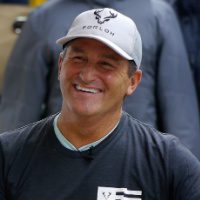
Robert Yturri, With over three decades of experience, Robert is a seasoned professional that has been instrumental in driving exponential growth for companies operating in the specialty outdoor, hunting, winter, and action sports industries. Robert’s strategic focus encompasses various areas, including top-tier product development and merchandising. He has a keen eye for identifying market opportunities and excels in launching brands and products, implementing effective roll-out strategies, and establishing strong brand positioning and marketing campaigns. He now serves as Chief Product Officer at FORLOH, Robert was the first employee at FORLOH and was in charge of taking an 100% made and sourced in the USA technical outerwear, apparel, gear, and accessory brand from “idea-to-reality”, redesigning and implementing an entirely new supply chain to make it happen. Connect with Robert on LinkedIn.
